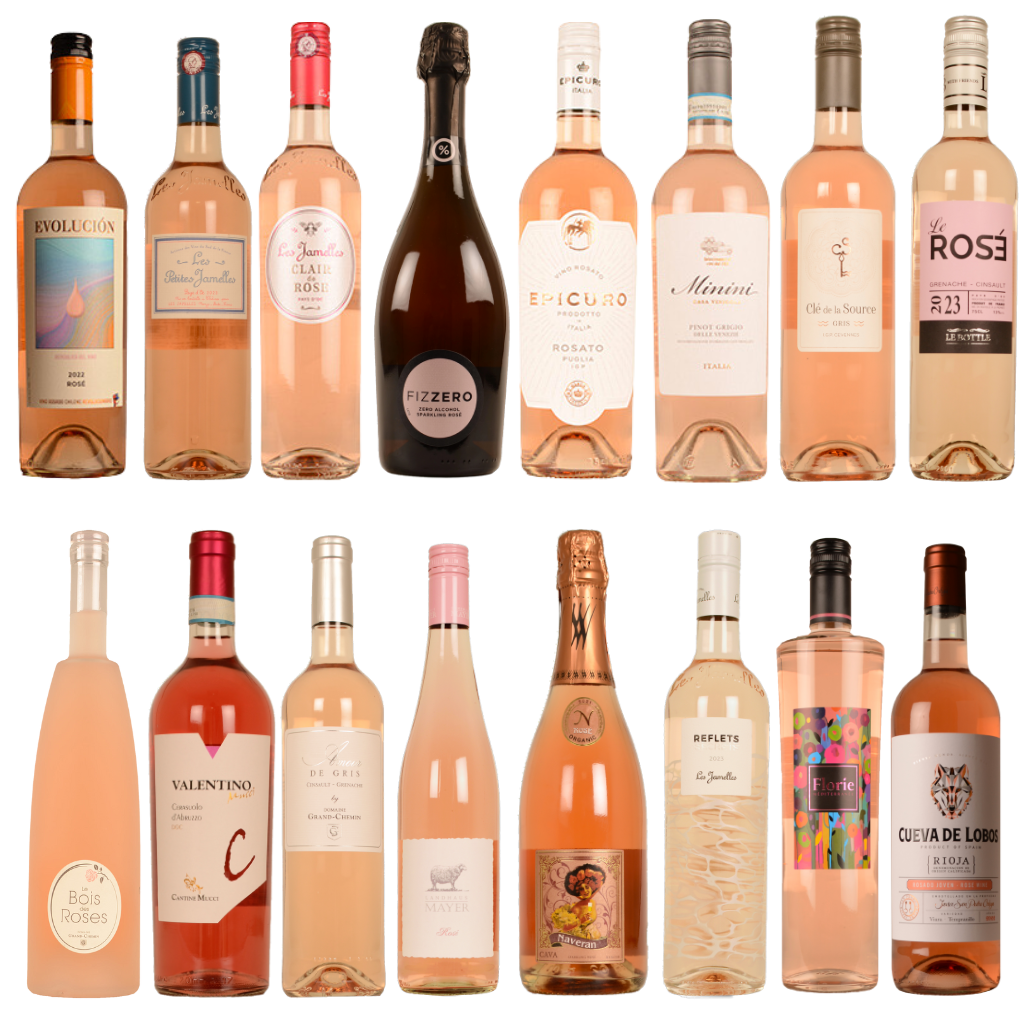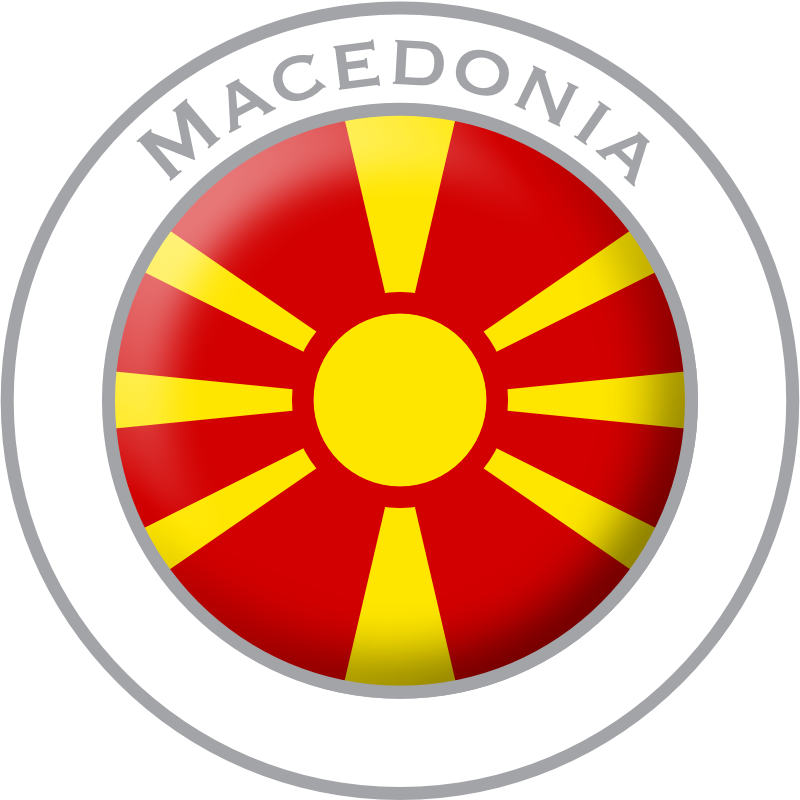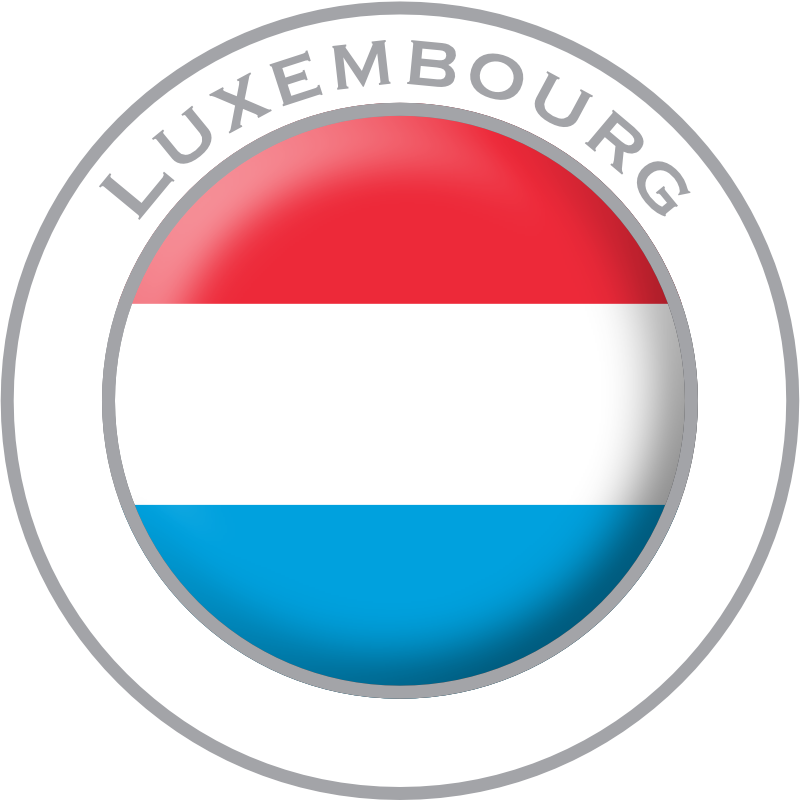The newest additions to our portfolio
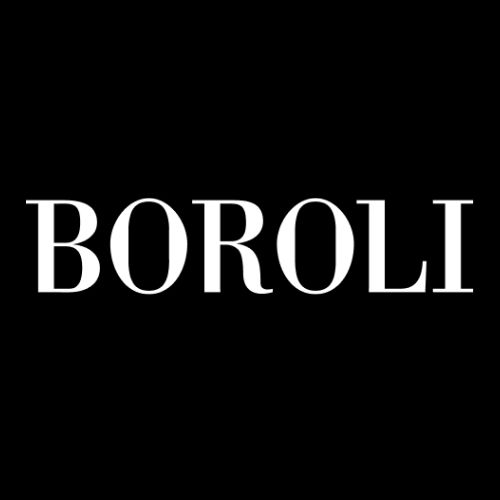
Boroli - Piemonte - Italy
The Boroli family has its roots in Piedmont since 1831, but only began winemaking in 1997. Silvano and Elena Boroli sought to escape the bustle of their publishing business and reconnect with nature. Their son, Achille Boroli, took the reins in 2012 and elevated the winery by focusing production on quality, low yields, and sustainable practices. From terroir to bottle, we strive for the highest quality in crafting our unique Barolo wines.
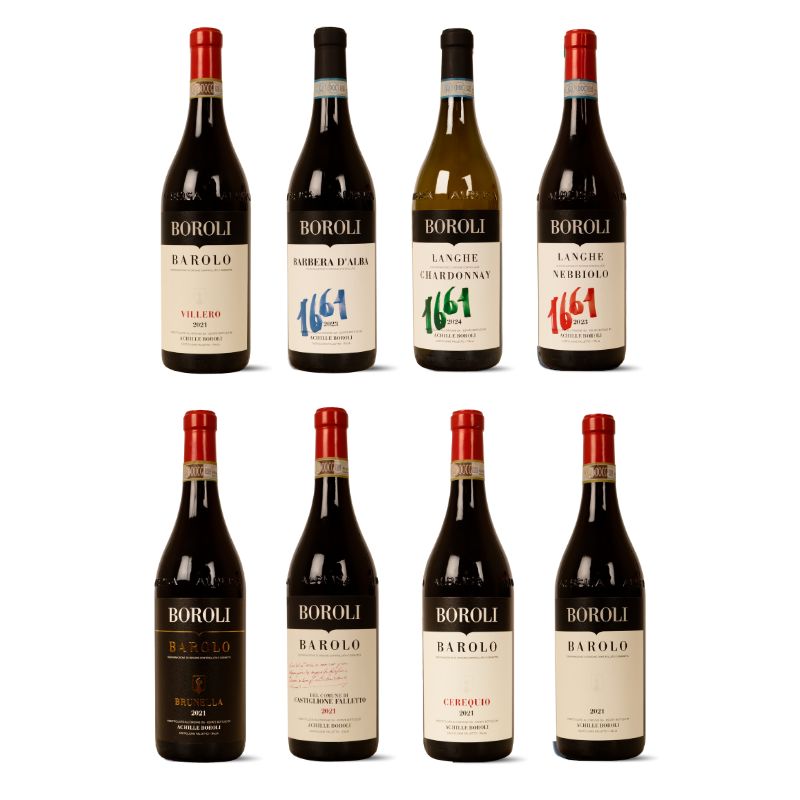
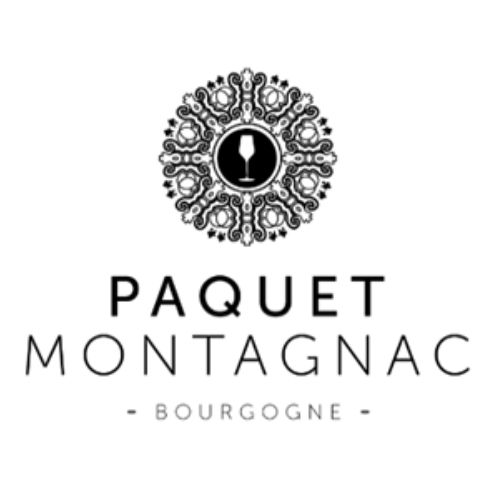
Paquet Montagnac - France - Burgundy
Mathieu Paquet, born in Burgundy and coming from a winemaking family, founded Paquet Montagnac Burgundy in 2015, specializing in the distribution of wines to export markets. In collaboration with the Bordeaux company Montagnac, he aimed to strengthen the synergy between the famous wine regions of Burgundy and Bordeaux. Mathieu built a network of independent wine producers and developed a range of carefully selected wines, tailored to customer preferences. The goal was to promote the diversity of French terroirs worldwide. In 2019, the company moved to Charnay-Lès-Mâcon and expanded with a storage warehouse and labeling line. In 2022, Paquet Montagnac opened a wine stock in New Jersey, USA, and acquired new packaging equipment. The company now maintains long-term collaborations with top wine producers, offering a wide range of high-quality wines and services, with a focus on innovation and changing market demands.
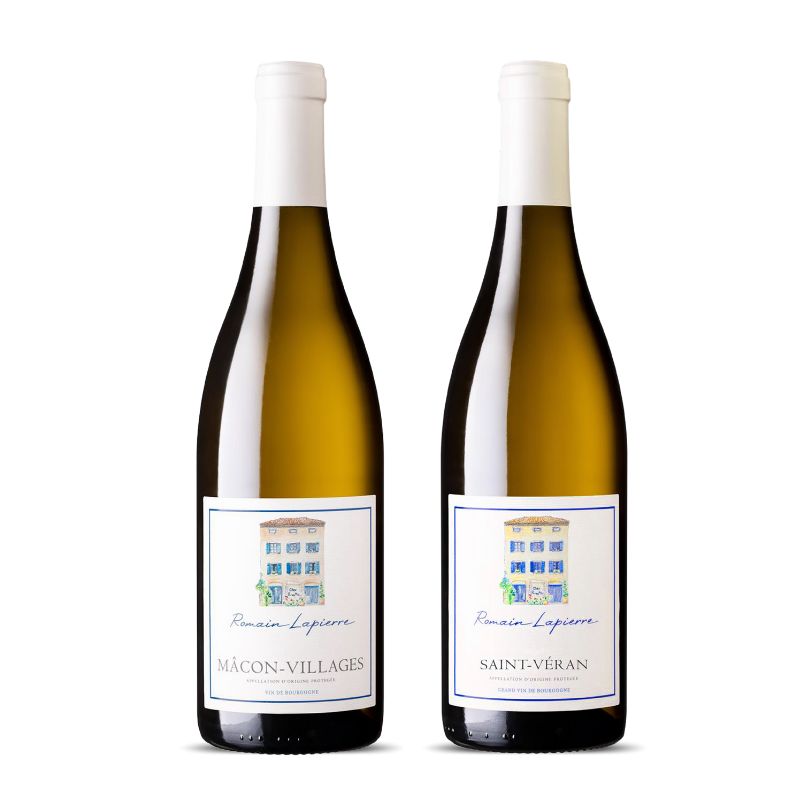
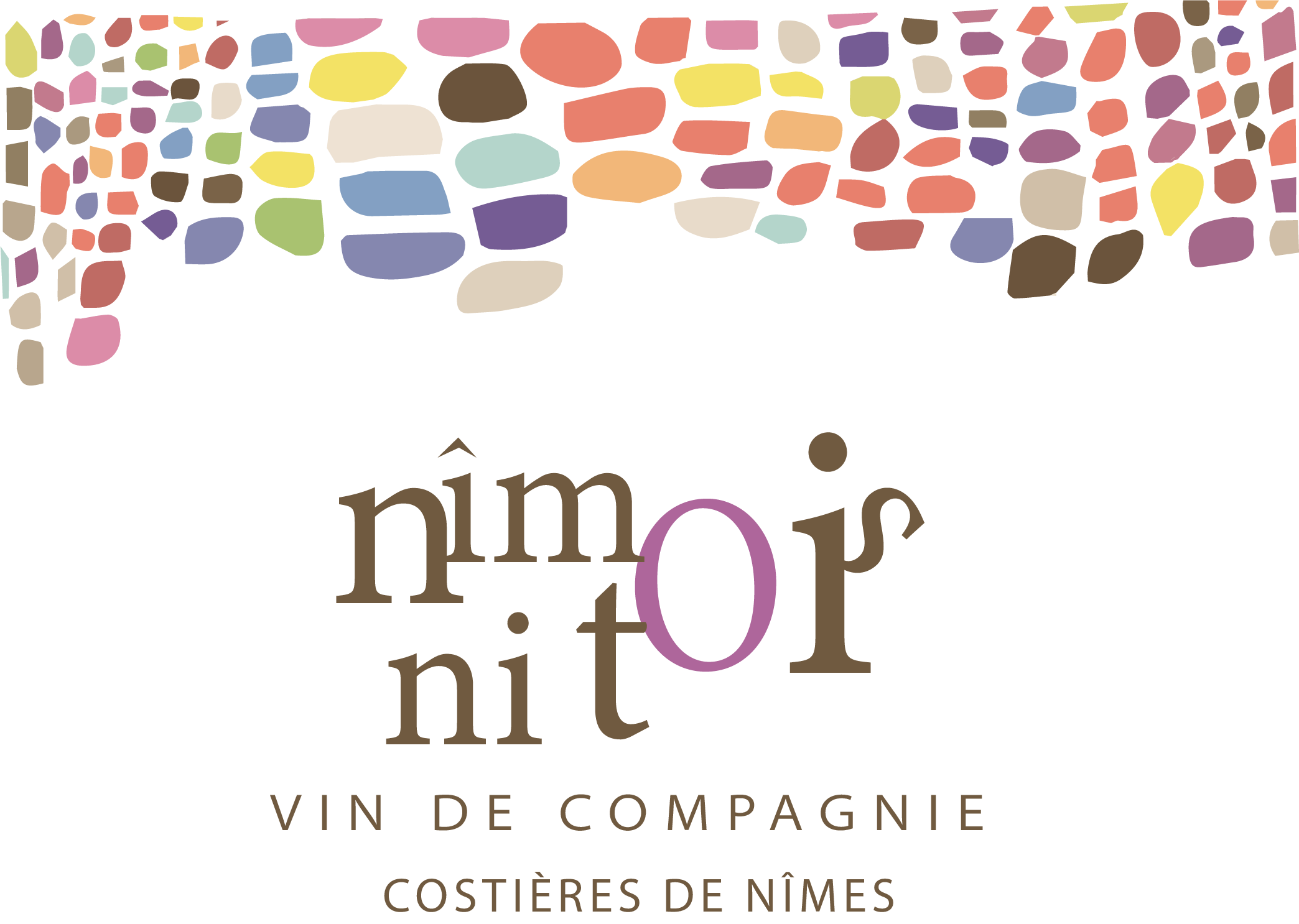
Nîmois Nitoi - France - Costières de Nîmes
In 1976, Château Guiot was purchased by François and Sylvia Cornut. A thorough renovation of the cellar was immediately undertaken, and in the vineyards, the local grape varieties were replaced with high-quality grapes such as Roussanne, Marsanne, Syrah, Grenache, and Cinsault. Gradually, the wines evolved to an extraordinary level. Soon they were discovered by the president of the Languedoc Sommeliers, who in turn convinced a Gault-Millau critic, and from there the momentum never stopped. Robert Parker also quickly became a fan, and today Guiot is widely regarded as one of the top references in the Southern Rhône. Meanwhile, Alexis and Numa (the twin sons) continue their father’s work with conviction and great confidence in the future.
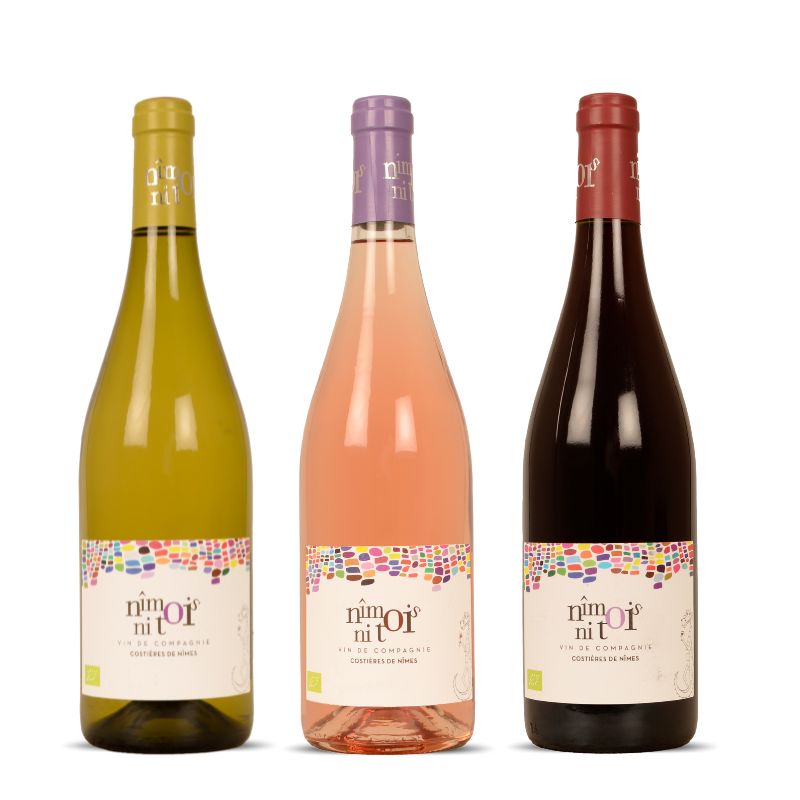
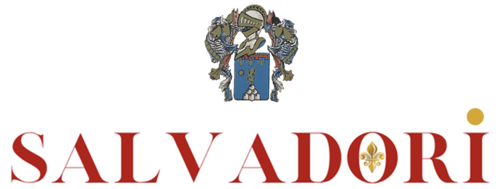
Villa Silvia - Italy - Chianti
The family estate, Villa Silvia, is located in the heart of the Chianti appellation. The vineyards themselves are spread across the beautiful hills surrounding Florence. Thanks to Villa Silvia’s strategic location, they are able to offer a wide range of Chiantis, each with its own character and local distinctions. The Salvadori family has been involved in the wine industry since 1930. After World War II, the founder Cesari Salvadori decided to dedicate his life entirely to wine and purchased the family estate. Today, the third generation has taken over, modernizing all aspects of the estate. Traditional techniques are combined with the latest equipment. Villa Silvia’s Chianti is also presented in the classic “fiasco di paglia,” as a Chianti in the iconic rounded bottle wrapped in straw is, of course, a must with authentic Tuscan cuisine!
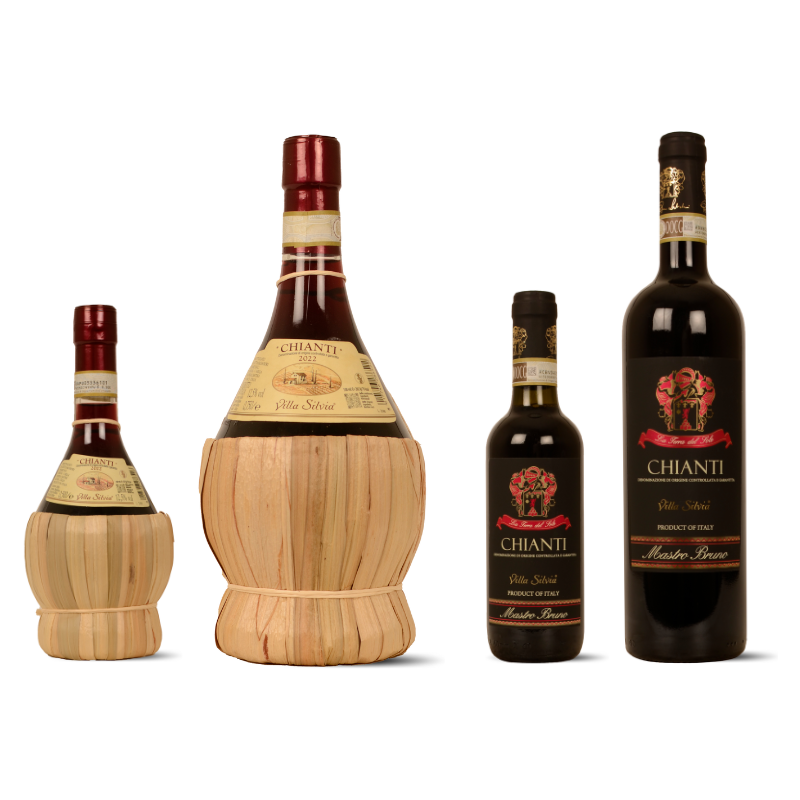
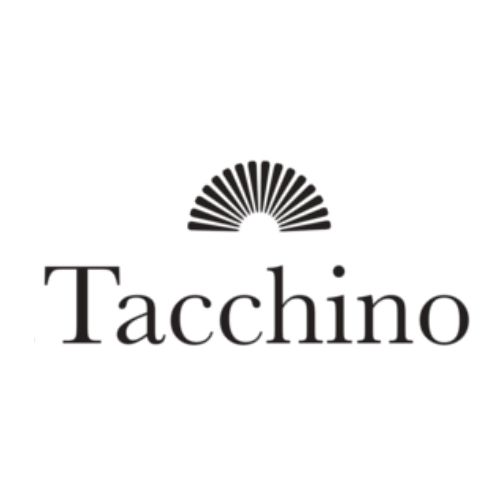
Tacchino Luigi - Italy - Piemonte
Castelletto d’Orba is located west of Gavi. Here, some of Piemonte’s finest Barberas and Dolcettos are produced. The Tacchino estate lies on the border of the Monferrato and Gavi appellations. While Nebbiolo reigns supreme in Alba (Barolo and Barbaresco), grapes like Barbera and Dolcetto here receive the same royal treatment, especially in the best vineyards, which often makes them superior to their counterparts from the Alba region. For more than three generations, the Tacchino family has been producing wines of the highest quality. Today, Alessio and Romina lead the estate, which they inherited from their father Luigi. In the prestigious Monferrato vineyards, they craft top wines under the Dolcetto d’Ovada, Barbera del Monferrato, and Gavi di Gavi appellations. The two main vineyards form a natural amphitheater, protecting the vines from harsh northern winds and creating a ‘climat’ of their own. Their loving and expert craftsmanship can be tasted in every bottle that leaves the estate.
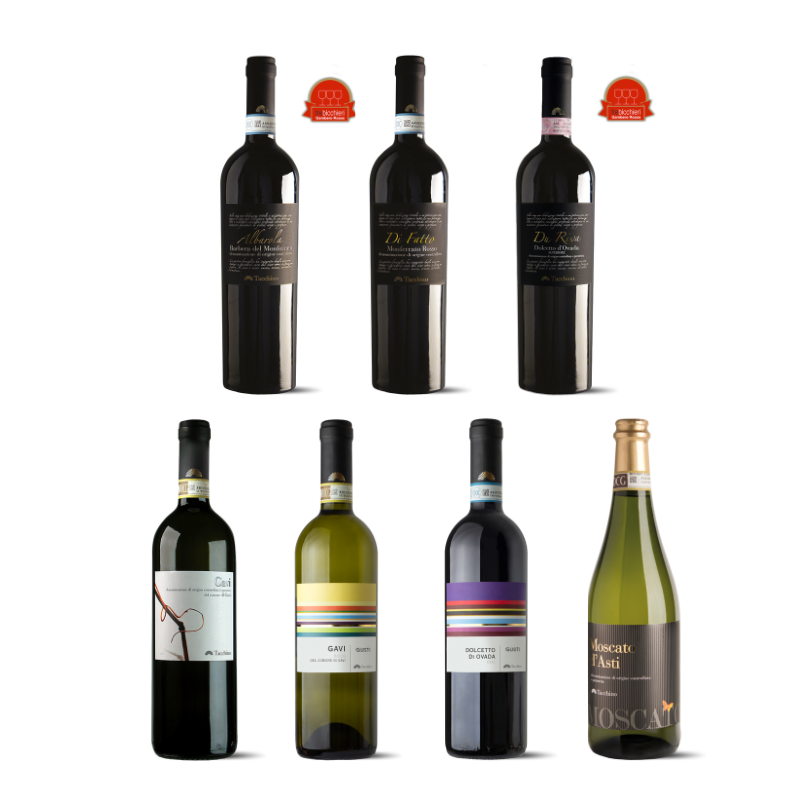
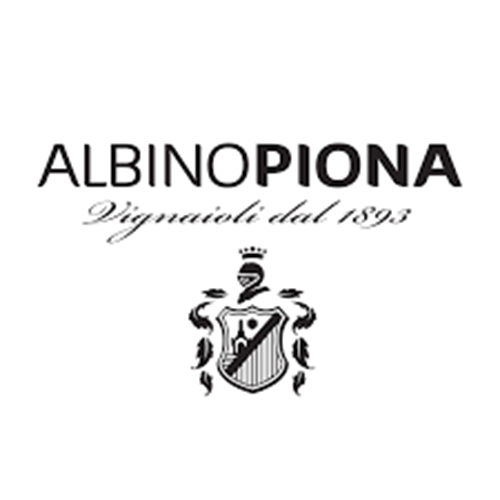
Albino Piona – Italy – Verona
The estate was founded in 1893 and has been producing and selling wine for four generations. The vineyards are situated in the hills surrounding the Custoza region and include the appellations Custoza DOC, Chiaretto DOC, and Bardolino DOC. Thanks to its ideal location and climate, winemaking has been practiced here for centuries. The land is steeped in history, not far from Lake Garda and just a few kilometers from Verona. Brothers Alessandro and Massimo took over the estate from their father Albino and have spent years modernizing the operations and restyling the wines to meet contemporary standards and expectations, all while maintaining deep respect for the environment and climate. This has resulted in a style and quality far removed from the often old-fashioned, thin, and quite acidic wines of decades past. The wines combine remarkable richness with meticulous balance, offering a delightful experience for any wine lover seeking to broaden their horizons.
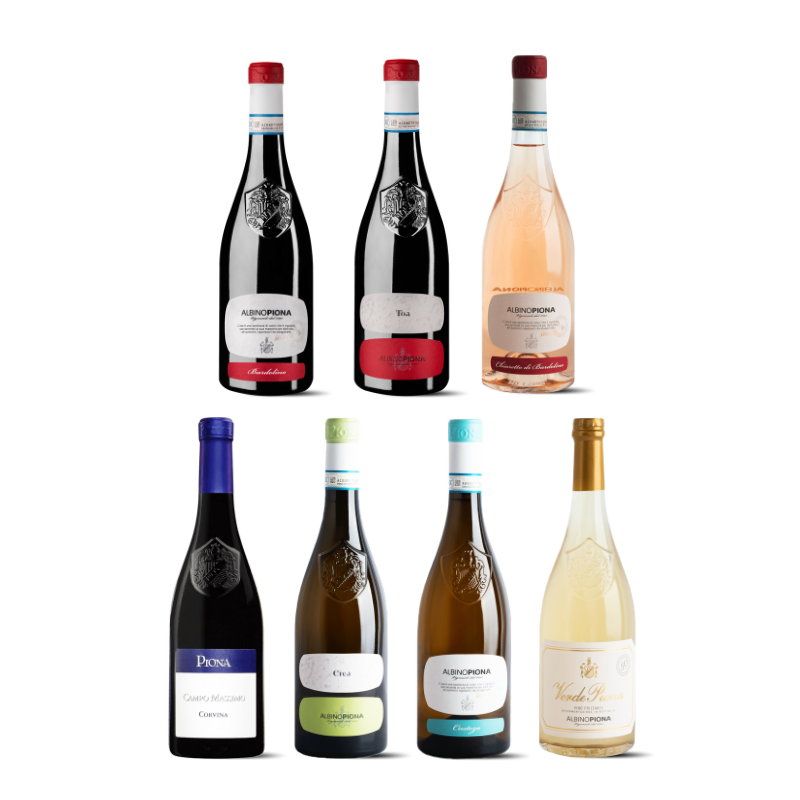
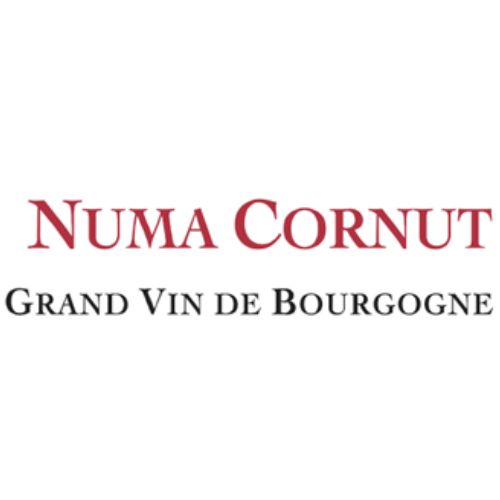
Numa Cornut – France – Burgundy
The Cornut family can look back on a rich and long history in the wine world, spanning nine generations. Numa himself developed his winemaking skills in various regions across the globe: Bordeaux, Châteauneuf-du-Pape, Australia, and Switzerland. Together with his twin brother, he also manages the family estate in Costières de Nîmes, Château Guiot.As a passionate lover of Burgundy, however, his dream was to produce high-quality wines in France’s most renowned wine region. In 2010, he began there as a wine consultant and met a young winemaker. Their friendship proved long-lasting and developed into a joint venture, allowing him to ferment and bottle the estate’s 3.5-hectare vineyard on-site.The small batches and patiently crafted wines ensure top quality, and his name and reputation in the region quickly became established. His wines are true gems, embodying purity and elegance. In the vineyard, minimal intervention is practiced, with great respect for sustainable and ecologically responsible viticulture. An absolute must for any devoted Burgundy enthusiast!

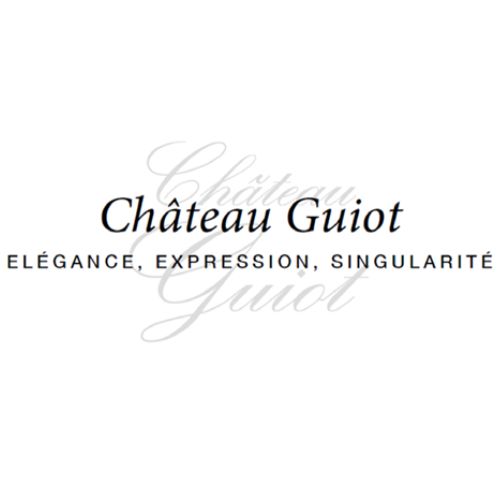
Château Guiot - France - Costières de Nîmes
In 1976, Château Guiot was purchased by François and Sylvia Cornut. A thorough renovation of the cellar was immediately undertaken, and the local grape varieties in the vineyards were replaced with high-quality grapes such as Roussanne, Marsanne, Syrah, Grenache, and Cinsault. Gradually, the wines evolved to an extraordinary level.Soon they were discovered by the president of the Sommeliers of Languedoc, who in turn convinced a Gault-Millau critic, and from there, recognition grew rapidly. Robert Parker quickly became a fan as well, and today Guiot is widely regarded as one of the top references of the Southern Rhône. Meanwhile, Alexis and Numa, the twin sons, continue their father’s work with dedication and a strong confidence in the future.
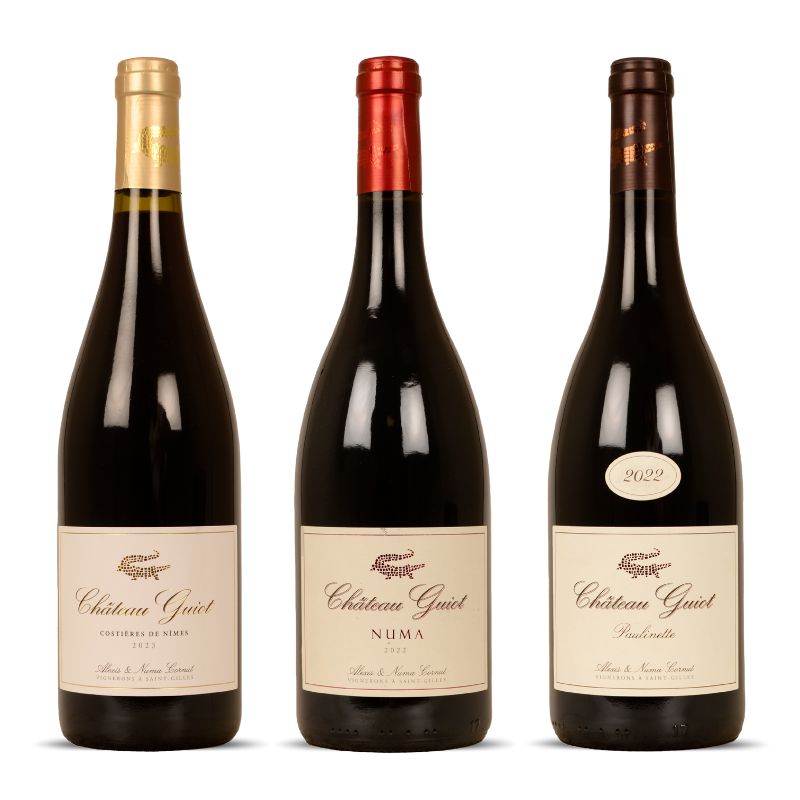
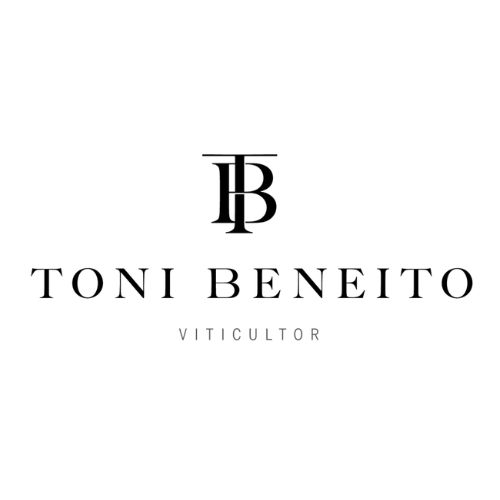
Toni Beneito - Spain - Valencia
The story of Toni Beneito is nothing short of extraordinary. As a successful textile magnate, he managed to completely reinvent himself as a certified winemaker, channeling his passion into what is perhaps one of Spain’s most fascinating wineries. The current bodega is equipped with the most modern facilities, yet deeply rooted in history. The original, restored wine cellar (El Cabeço Winery) dates back to the illustrious year 1880. Here, signature wines are crafted from old, forgotten grape varieties. These are unmistakably unique gems, just waiting to be discovered—a true oasis of rare delicacies that will astonish any devoted oenophile.The extreme climate conditions and high altitude (approximately 800 meters) ensure wines of exceptional style and character. An absolute must for wine enthusiasts and adventurous discoverers alike.
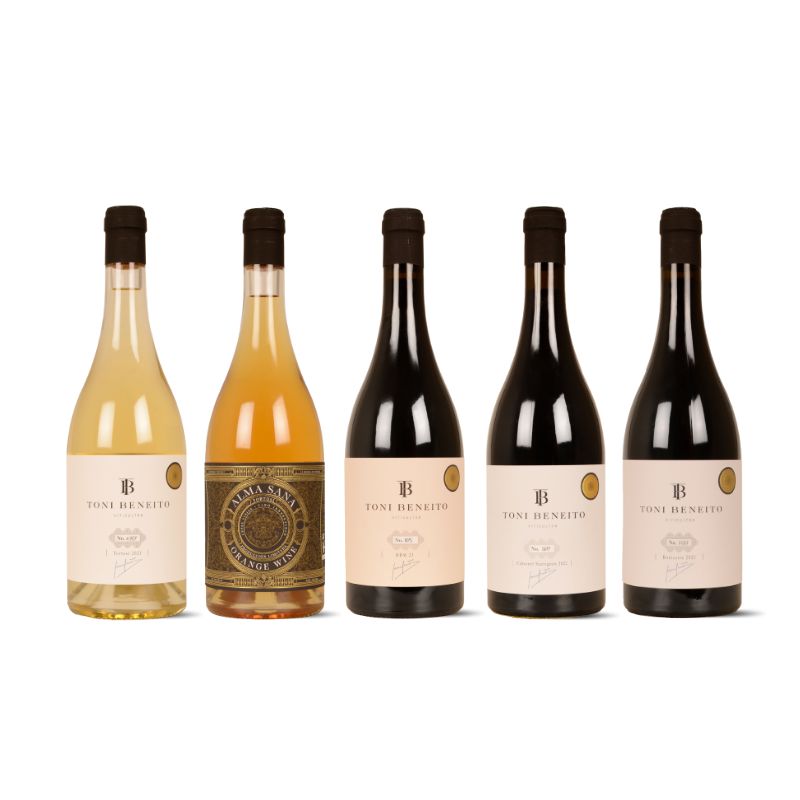
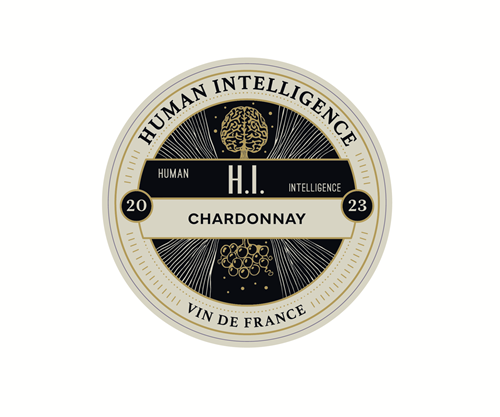
Human Intelligence - France - Vin de France
In an age of rapid data and smart algorithms, we choose a different path: intuition, craftsmanship, and human taste. Not artificial intelligence, but Human Intelligence.Our wines are guided not by trends or technology, but by feeling. By hands that know the grapes. By noses that remember scents. By people who make wine like music—with balance, rhythm, and expression. For us, wine is not a product. It is a meeting. Between humans and nature. Between maker and drinker. Simply wine that speaks. Full of flavor, full of character, and surprisingly approachable. Made by humans. For humans.
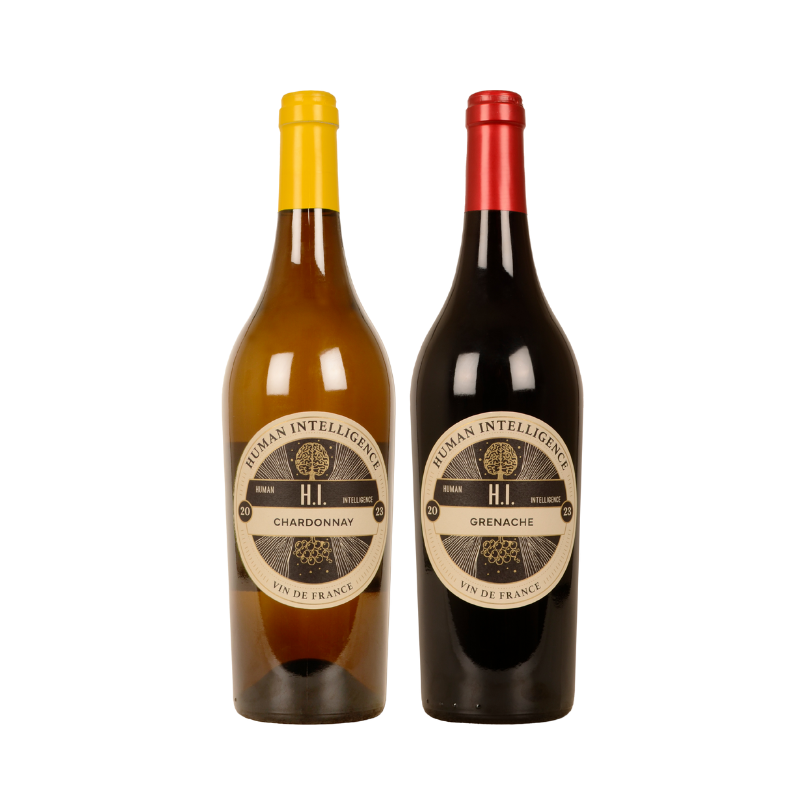
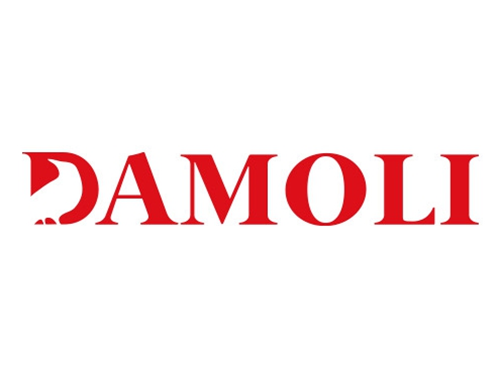
Damoli - Italy - Valpolicella
The small estate of Bruno Damoli is nestled in the heart of the Valpolicella region and is a family-run winery. The family has lived here for generations, all of whom were also winemakers. Thanks to its small size and ideal location, quality is the only goal. Bruno Damoli and his two children now run the estate. With his decades of experience, Bruno is invaluable for the vineyard management and overall operations. His son, Daniele, is the winemaker—having helped and observed his father and grandfather from a young age, he knows exactly what it takes to produce top-tier Valpolicellas. His daughter, Lara, manages the commercial side, bringing warmth and enthusiasm to the family’s public relations. History, innovation, tradition, and quality are their guiding principles. Their philosophy: “Never forget the past, always look forward to the future.” The vineyards lie on fairly steep slopes between 200 and 500 meters, set in a stunning landscape. Their Amarones, Ripassos, and classic Valpolicellas are consistently among the very best the region has to offer.
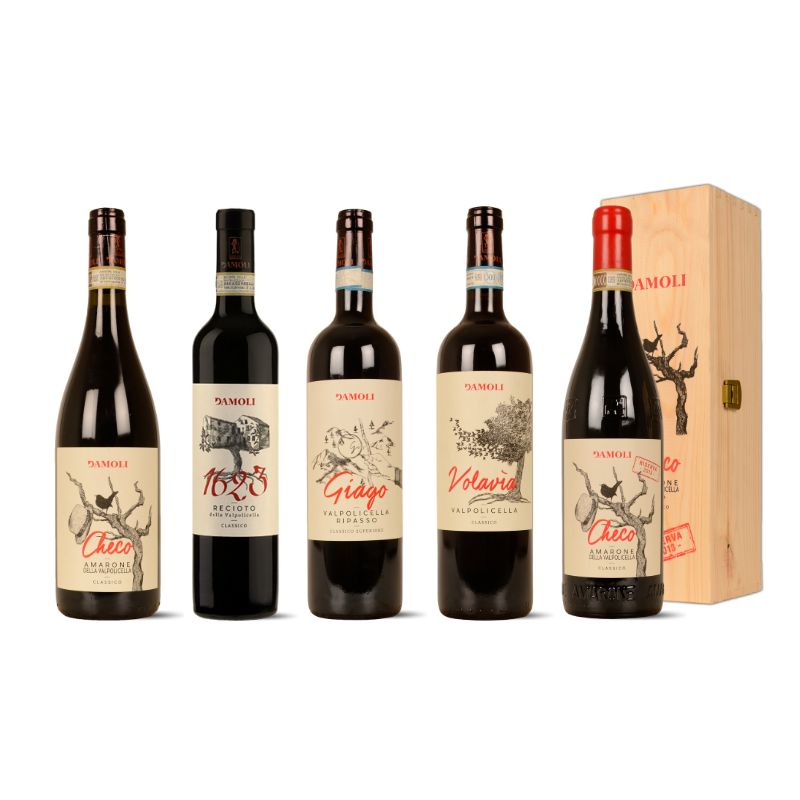

Domaine de la Mavette - France - Gigondas / Sablet
Domaine de la Mavette is a renowned winery in Gigondas, in the Southern Rhône. The estate is celebrated for its elegant yet powerful wines, crafted from Grenache, Syrah, and Mourvèdre. Thanks to an exceptional terroir of limestone and pebble soils, combined with a Mediterranean climate, the wines display rich aromas of red fruit, herbs, and subtle hints of oak. With a focus on tradition and craftsmanship, Domaine de la Mavette remains an authentic expression of Gigondas.
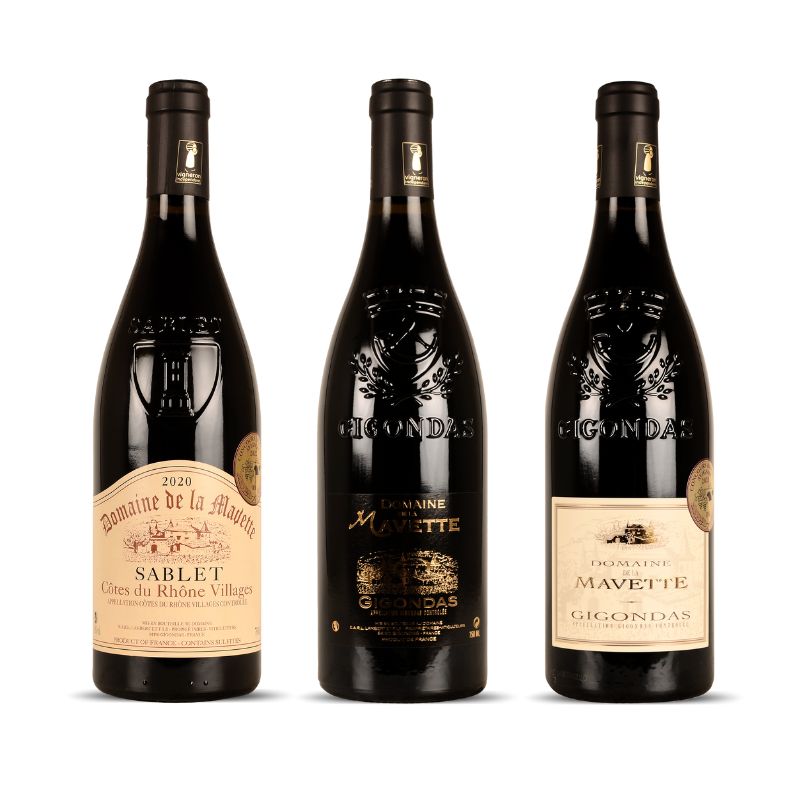
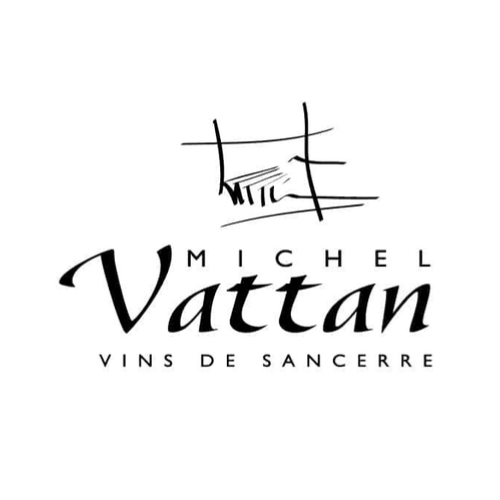
Michel Vattan - France - Super Sancerre
Our estate is located in Maimbray, in the commune of Sury-en-Vaux, 7 km northwest of Sancerre and 200 km south of Paris. It has been family-owned for three generations. Founded in 1930 as a family business, it gradually grew from 2 hectares of vineyards, alongside general farming and livestock, to the current 9.10 hectares of dedicated vineyards. Originally owned by the Vattan family, it was established by Roger and his wife Andrée, then passed on to their son Michel, and in 2008 taken over by Nathalie and Pascal Joulin, who had been working on the estate since 2002. Three years ago, our daughter Léa joined us; she is now 25 years old.
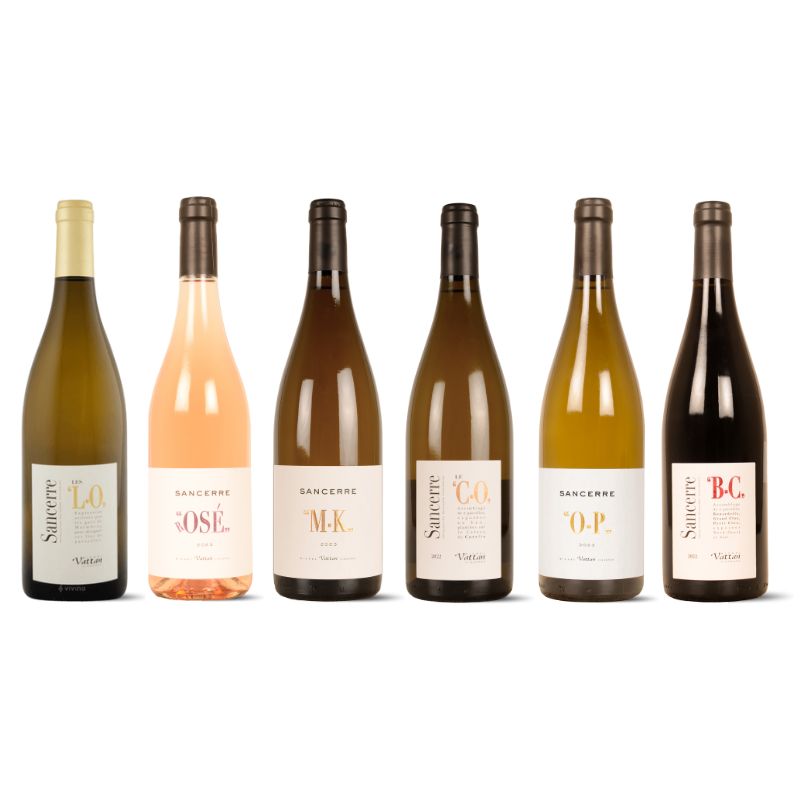
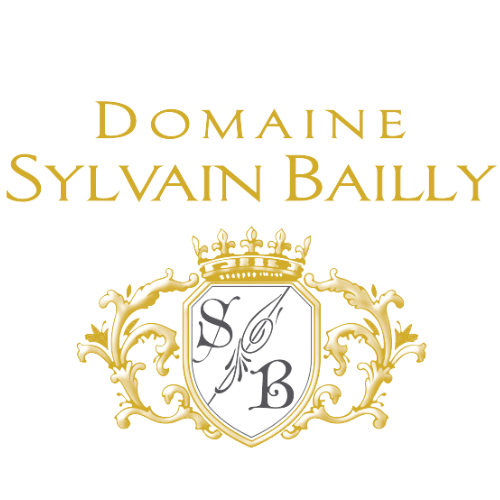
Domaine Sylvain Bailly - France - Quincy / Sancerre
The family estate of Sylvain Bailly is located in Bué, in the heart of the Sancerre appellation. The first generation of winemakers dates back to the 18th century. The vineyards stretch across the communes of Sancerre, Bué, Crézancy, and Montigny. About 80% of the vineyard area is planted with Sauvignon Blanc on two distinct soil types. The “Caillottes”, a hard, stony limestone, lend the wines fruitiness and finesse, while the “Terres Blanches”, millions of years old Kimmeridgian limestone layers containing a significant amount of clay, provide structure and richness. In 1955, the estate expanded to the Quincy appellation. The vast Quincy plateau has a unique character, composed of limestone deposits from an ancient local lake. The soil is a mixture of shells and clay, topped with a layer of sand and gravel carried by the Cher river. The vineyards are cultivated with great respect for nature. Sustainability and efficiency are crucial to the Bailly family, ensuring minimal environmental impact.
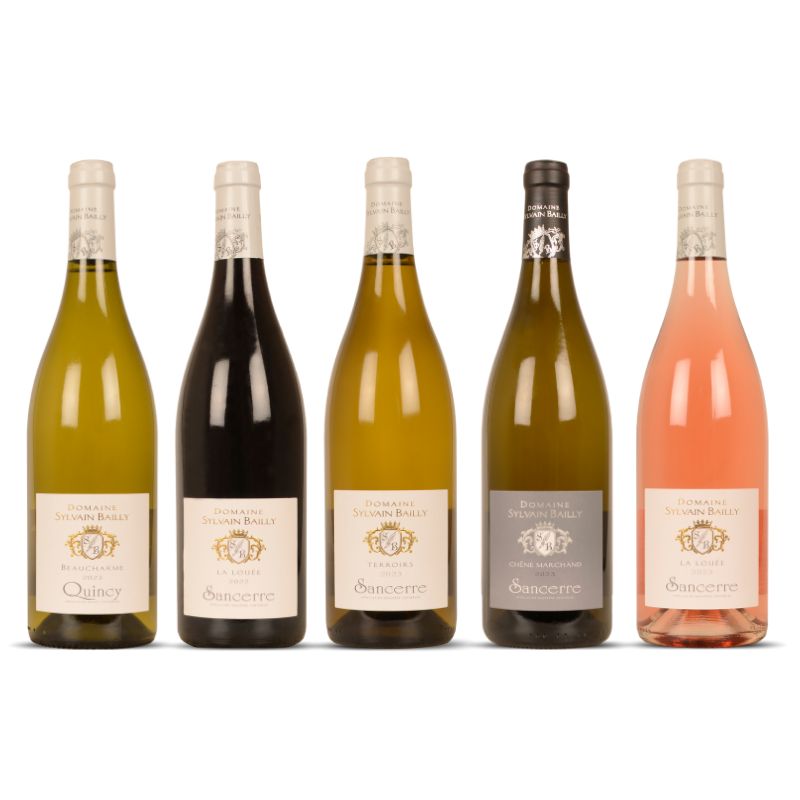
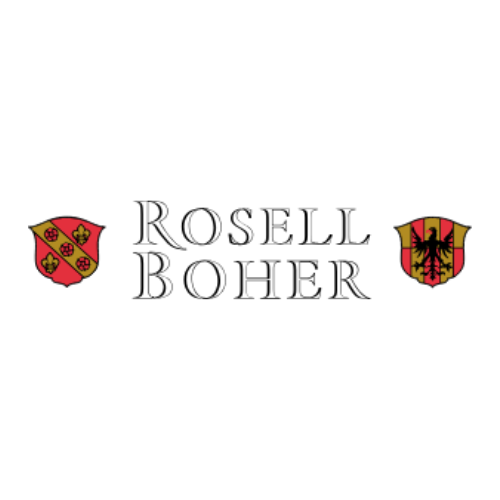
Casa Boher - Argentina - Mendoza
The story of Casa Boher dates back to the late 19th century, when the great-grandfather of the current owners emigrated from Spain to Mendoza and established a vineyard there. In 1900, the estate was built on the site where Cavas Rosell Boher still stands today. The vineyards are located at 1,300 meters altitude (Los Arboles/Tupungato), where the grapes benefit from exceptional acidity—ideal for producing high-quality sparkling wines. These wines are considered among the finest in Argentina, with the aim of matching the quality of top Champagnes. Later, the vineyard in Alto Agrelo/Luján de Cuyo was added. Situated at 1,200 meters, this location is renowned as perhaps the best terroir for producing Malbec. The still wines are bottled under the Casa Boher label. Here, too, only top quality is pursued. Stocks are very limited, making these wines an exclusive opportunity for true wine enthusiasts.
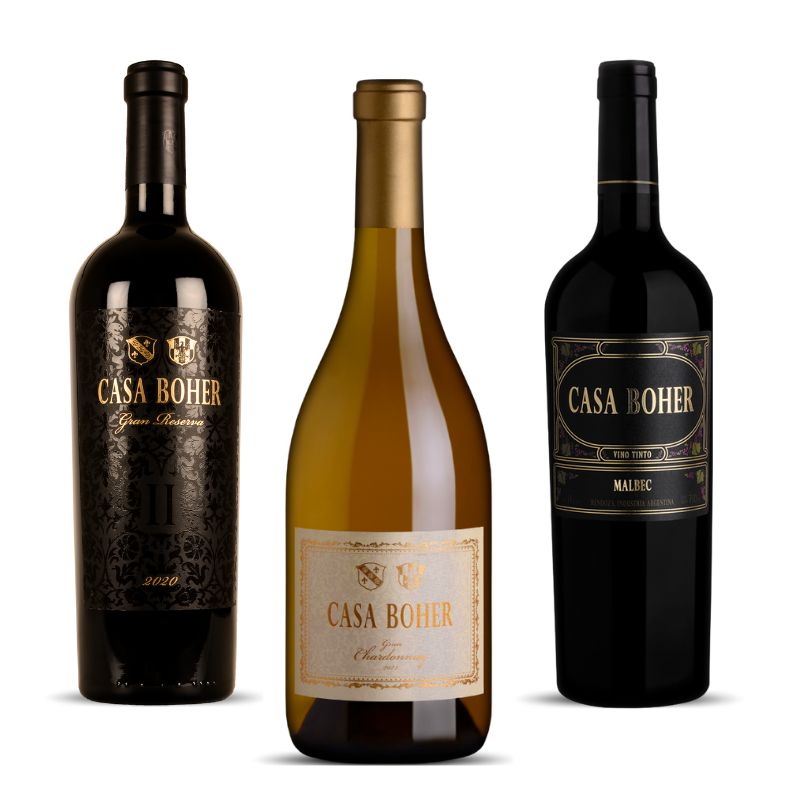
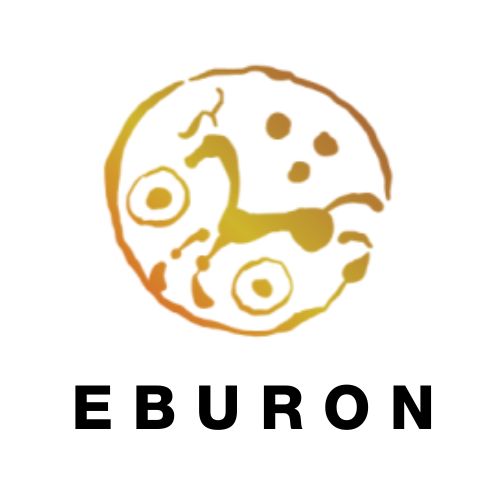
Eburon - Belgium - Haspengouw
After a long career in the international wine industry in Australia, California, and Eastern Europe, a dream became reality. Some years later, Paul Molleman and Marco Tiggelman established their own wine estate in Tongeren, the oldest city in Belgium. Two thousand years ago, it was the only Roman administrative capital within our current borders. The first vineyards were carefully selected for their location and soil structure and planted with Pinot Noir and Chardonnay. Additional vineyards followed, and by 2025, the estate is expected to encompass around 3 hectares. The soil is primarily composed of flint, a mixture of clay, limestone, and silica, which imparts exceptional minerality to the wines. At Eburon Estate, top-quality wines are crafted from grapes such as Pinot Noir, Chardonnay, and Auxerrois. While the estate firmly believes that wine quality is primarily determined by grape quality, the winery itself uses only the best equipment and facilities. The sole goal is to produce the best possible wine that its terroir allows.
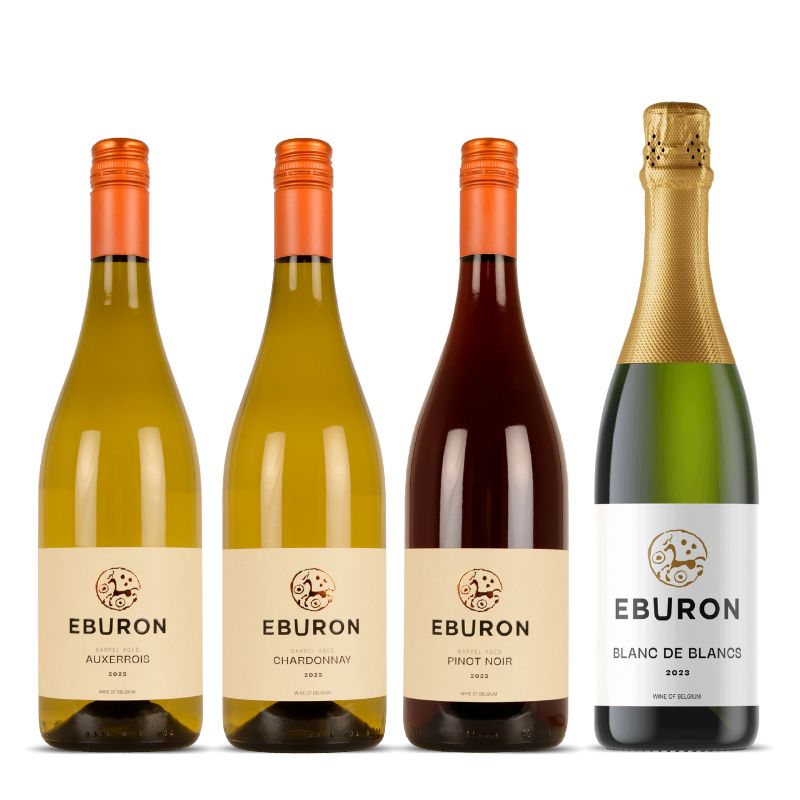
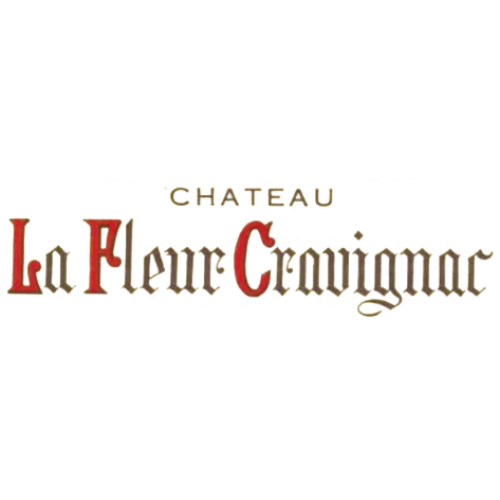
Château La Fleur Gravignac - France - Saint-Emillion Grand Cru
This 18th-century château owes its name to the illustrious owner Jean-Baptiste Lavau de Cravignac, a parliamentary lawyer. The estate was passed down through generations, and in the early 20th century, its name changed to La Fleur Cravignac, becoming the official name recognized by the National Assembly. In 2021, the estate was acquired by Karine and Jean de Colbert, who were already no strangers to excellence with Château de Brézé and Château de la Commanderie. The cellars were immediately modernized, and a strict quality control system was implemented. All vineyards are worked with the utmost respect for nature and are officially certified organic. The concrete fermentation vats are fully temperature-regulated, and the wines are partially aged in new oak barrels and partially in amphora, where tradition and modern innovation go hand in hand. The resulting wines are pure in character, displaying remarkable balance and finesse.
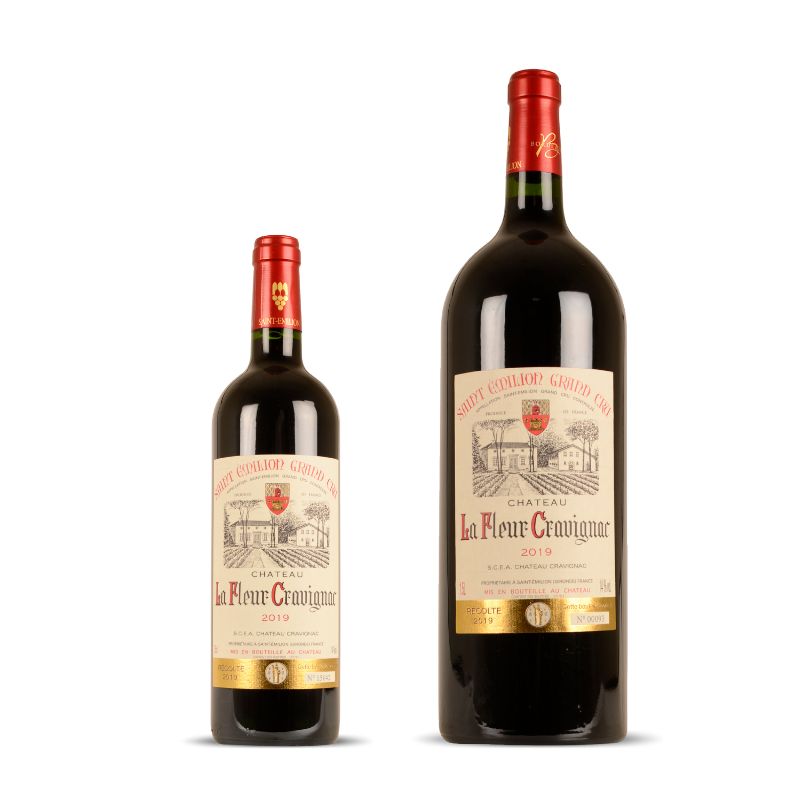
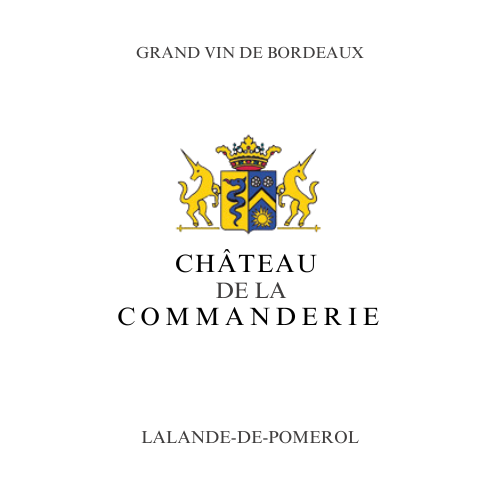
Château de La Commanderie - France - Lalande de Pomerol
Château de la Commanderie was built in the 12th century by the Knights of St. John of Jerusalem, who provided shelter to pilgrims traveling to Santiago de Compostela, protecting them from thieves and other dangers. In 2019, Karine and Jean de Colbert of Château de Brézé acquired the estate from the renowned Moueix family, located in the Lalande-de-Pomerol appellation. The estate’s popular style was preserved, while quality standards were further tightened. For years, Château de la Commanderie has been considered one of the benchmarks of Lalande-de-Pomerol. The estate spans approximately 40 hectares, with 4.5 hectares of the finest vineyards bottled separately under the prestigious “Cuvée Rubis” label. Commanderie represents quality, consistency, and reliability, and is likely one of the best introductions to Bordeaux wines in the Libourne region.
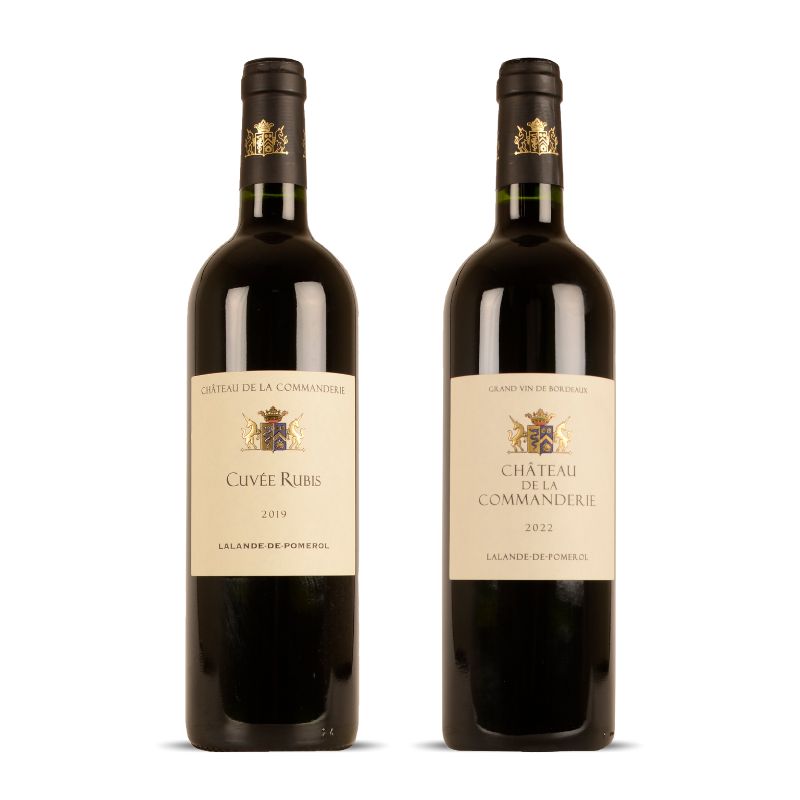
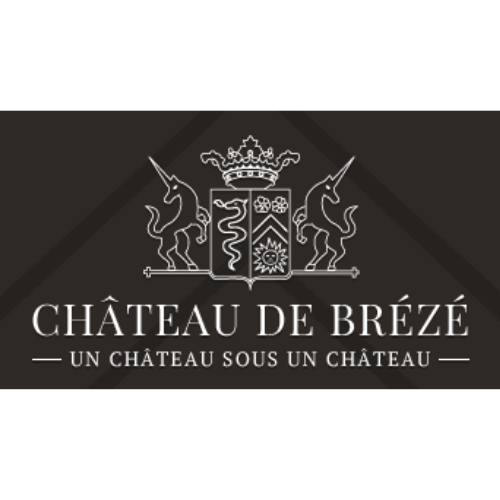
Château de Brézé - France - Saumur / Loire
Château de Brézé is a unique historical monument, believed to have been built around 1063. Beneath the castle itself lies a fully excavated fort carved into the rocks, originally designed to protect against invasions such as those by the Vikings. It boasts one of the deepest dry moats in Europe. Beneath the castle run 3 kilometers of tunnels and chambers, among the earliest known protective bunkers in history. These underground spaces house historic bakeries, stables, sleeping quarters, kitchens, a wine barrel room, and even a silkworm farm—alone making it worth a visit. The above-ground castle is built in a stunning Neo-Gothic style. The current owners, the Count and Countess de Colbert, continue to restore it meticulously. Under Vignobles Colbert, they produce a range of equally remarkable wines in the Saumur Champigny appellation. The surrounding vineyards are among the finest in Saumur, making Château de Brézé one of the region’s premier attractions.
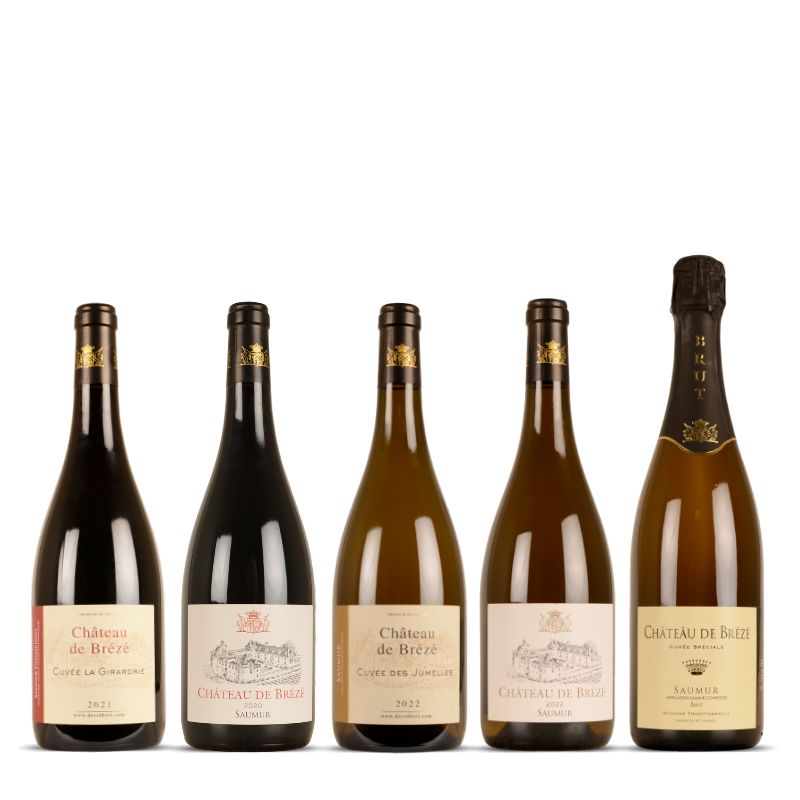

Domaine-Naturabilis - France - Bourgogne / Beaugolais
Thomas Collogne is the 7th generation of a winemaking family and the owner of Domaine Colonat in Morgon (Beaujolais). Colonat has a long-standing reputation as a top estate and is considered one of the benchmarks of the region. In 2017, Thomas decided to create his own estate, a place where he could fully express his personal vision. His goal is to produce high-end wines in limited quantities, made in complete harmony with nature and with minimal external influence. The vineyards are fully organically cultivated, and the wines are virtually classified as natural wines. Sulfites are barely used, fermentation takes place in stainless steel, and aging occurs in amphorae. The result is a delightfully fruity wine with playful structure and an enviably pure character. Moreover, the wines come in specially designed bottles that perfectly reflect their identity. The name Naturabilis, Latin for “in harmony with nature,” beautifully encapsulates the estate’s philosophy.
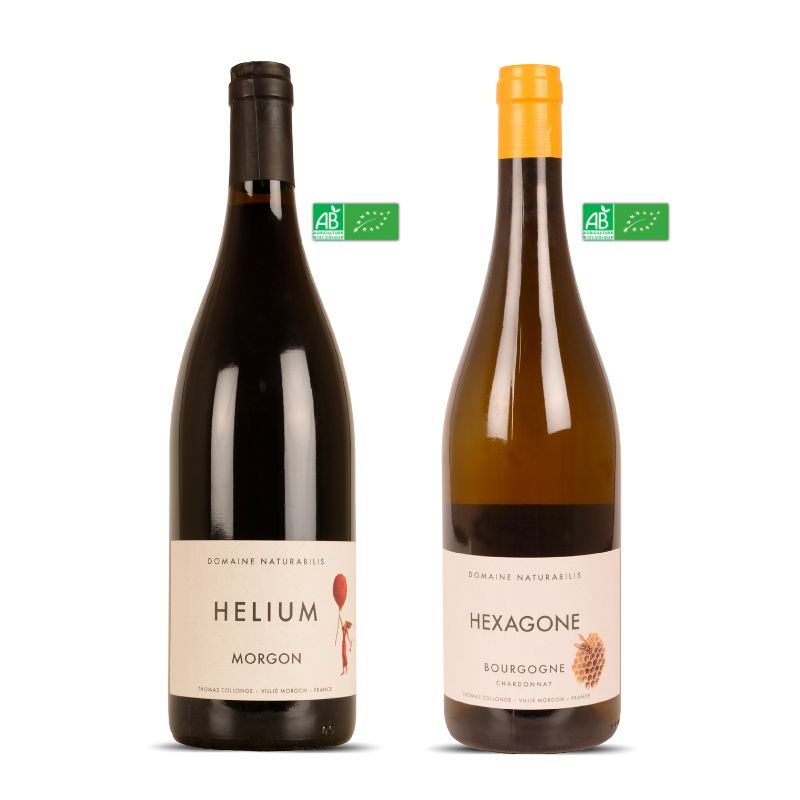
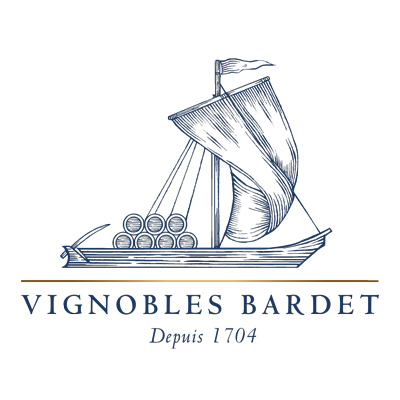
Vignobles Bardet - France - Bordeaux / Saint Emillion Grand Cru
The story of the Bardet family dates back to the 18th century, when one of their ancestors managed a boat used to transport wines to the port. The vineyards, located along the Garonne (from Bergerac to Bordeaux), could thus easily ship and export their products. Over time, the family even acquired several vineyards of their own. With the arrival of the railways, river transport quickly became obsolete, allowing them to focus more and more on the wine itself. The original boat was incorporated into the family crest and still appears on all bottles today. The current owner, Philippe Bardet, runs the various Châteaux with the help of his sons, bringing dedication and great care for the environment and ecosystems. Both in the vineyard and the cellar, no effort is spared to minimize the ecological footprint. It has truly become the family home, and the wines produced here are considered among the absolute top wines of Bordeaux.
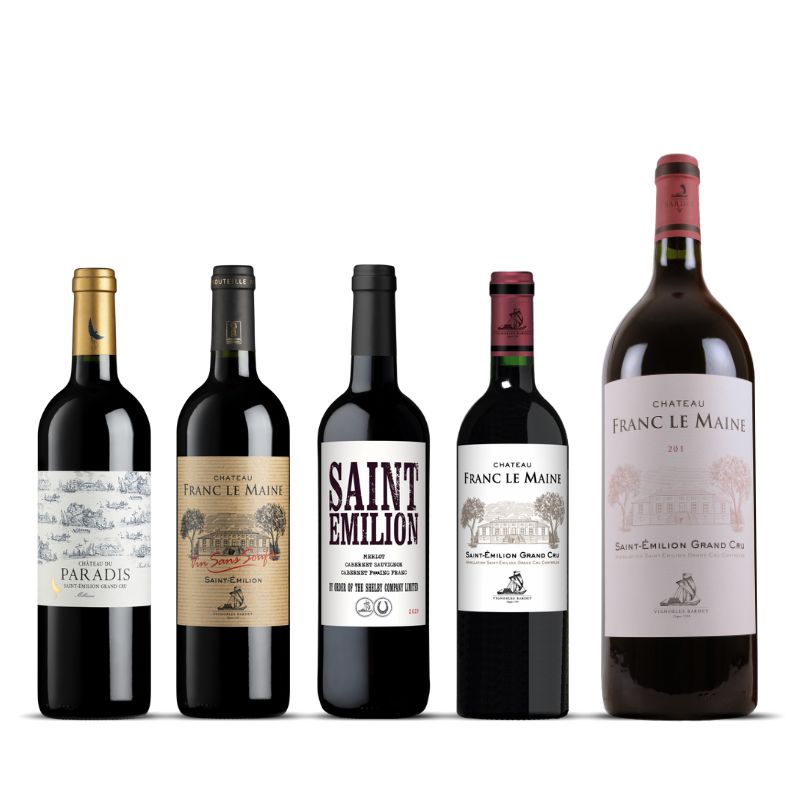
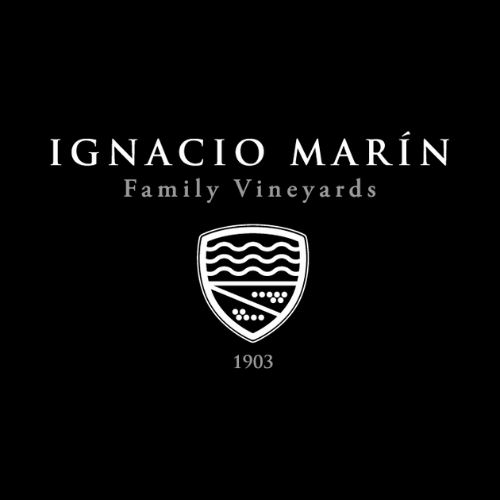
Campo Marin - Spain - Aragón
Bodegas Ignacio Marín is a family-owned winery with a long-standing tradition in the Cariñena region of Aragón. The bodega was founded in 1903 by Ignacio Marín, and over the generations, it has grown into one of the region’s most respected references. Today, their wines shine far beyond Spain. Continuous modernization—most recently in 2022—ensures wines that meet the highest international quality standards. In 2015, the bodega was recognized as the Best Winery of Aragón. Thanks to the elevation of their vineyards (600–850m) and their diverse locations, the estate benefits from multiple microclimates, resulting in wines that are pure, honest, and lively, all offered at an equally fair and authentic price.

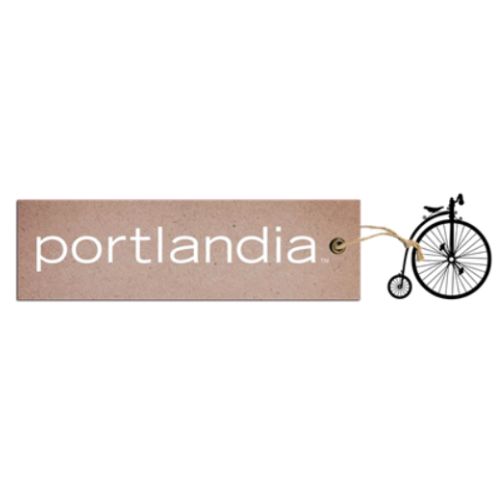
Portlandia - USA - Oregon
When you open Portlandia’s website, bold letters greet you: “PLAY HARD, WORK LATER!”—a piece of advice we certainly can’t ignore. It also says a lot about founder and winemaker Damian Davis, who in 1999 set out on a long road trip from Florida to the Pacific Northwest, seeking a career in the tech industry. When he arrived in Willamette Valley during harvest season, he instantly fell in love with what he describes as the most beautiful landscape he had ever seen. By the time he reached his final destination, his car was so packed with wine bottles that he barely made it. In 2008, Damian left his previous career behind to start anew in the wine world—and thus, Portlandia was born. In this relatively cool climate, Pinot Noir and Pinot Gris take center stage. Together with Adam LaZarre, Damian crafts a range of extraordinary wines that combine exceptional flavor with an approachable price.
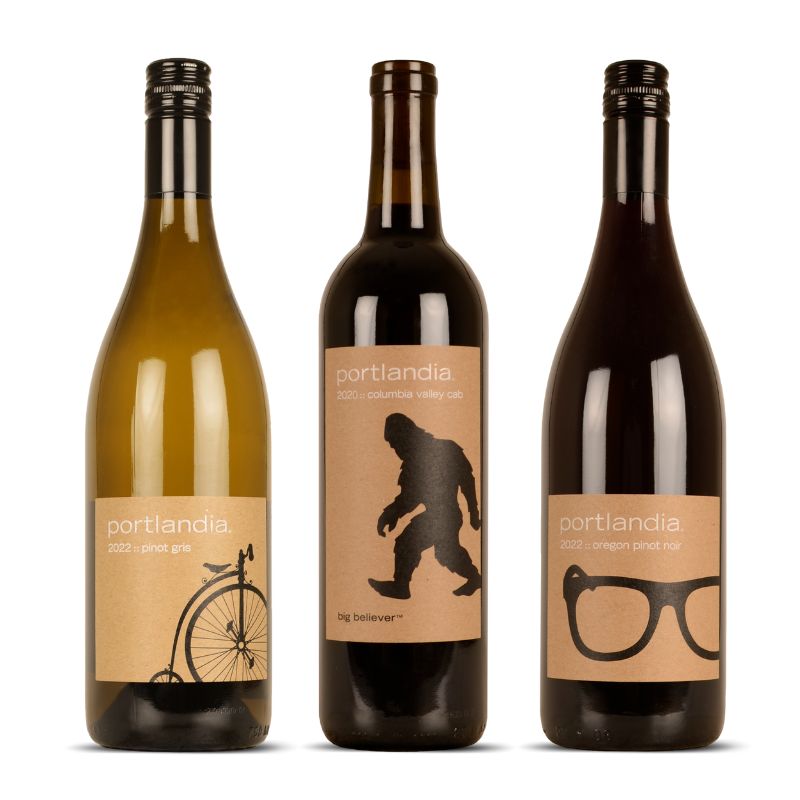
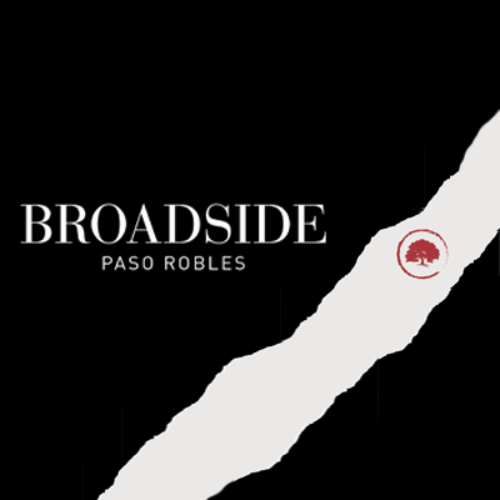
Broadside - USA - Paso Robles
Paso Robles literally translates to “Pass of the Oaks.” Vineyards and oak trees alternate across the rolling landscape, where Cabernet Sauvignon reigns supreme—King Cab! At Broadside, sustainability is a top priority. Their motto, “Share now, preserve the future,” reflects a commitment to both people and nature. This includes efficient energy policies, environmentally responsible farming, preserving and promoting local ecosystems with a focus on biodiversity, erosion control, water management, and smart irrigation systems. On the human side, employees benefit from competitive wages, ongoing education, and professional development. Adam LaZarre is at the helm here as well, crafting some of the finest Cabernet Sauvignons the region has to offer.

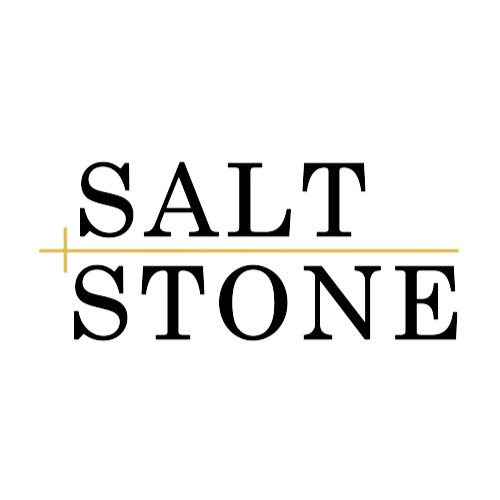
SALT+STONE - USA - California
The concept behind the latest brand from Wine Hooligans is rooted in the benefits of blending. This can involve either a different grape variety or the same grape treated differently—where potential shortcomings of a grape or a particular vintage are balanced by another grape, or by the same grape vinified or aged in a different way. The result becomes richer and more intriguing, without compromising the soul of the wine.In this case, however, the same grape is blended from two distinct vineyard sites. Vineyards near the coast, exposed to wind and temperature variations (Salt), are combined with vineyards further inland, where it is generally warmer and cooling is less pronounced (Stone). This gives the winemaker the opportunity to marry the structured, refined, and slightly saline character of the coastal vineyards with the warm, opulent, and deeper character of the inland sites. The outcome is a wine that is richer, more complex, and beautifully balanced, showcasing the best of both worlds.
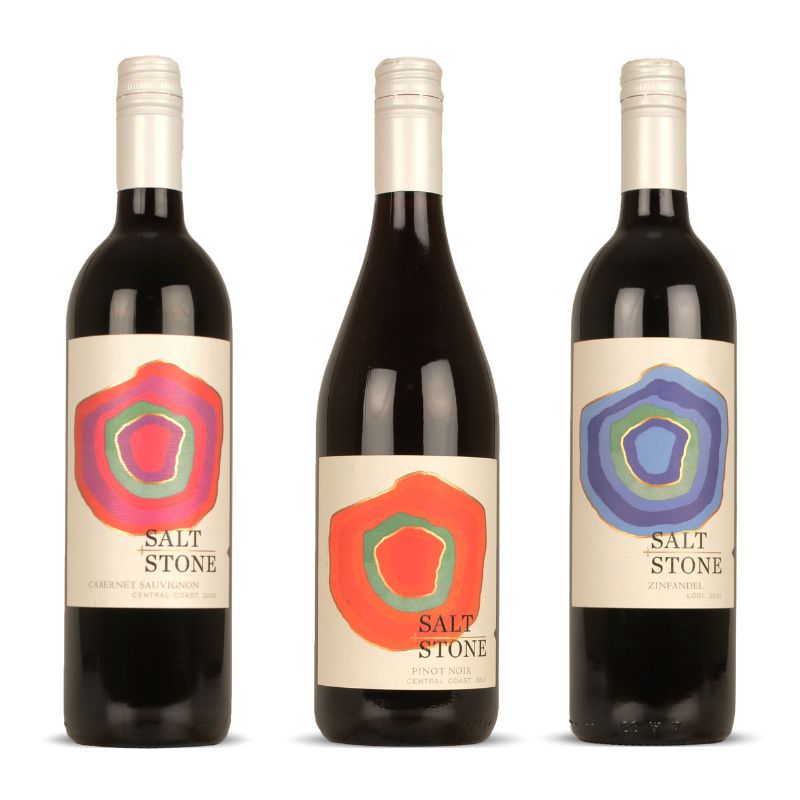

Cycles Gladiator - USA - California
The very first thing Dennis Carroll did was revive and take over the iconic wine label Cycles Gladiator. At the same time, he reinstated the original founder and exceptionally talented winemaker, Adam LaZarre, at the helm. After his departure, Cycles Gladiator had degenerated into a producer of mass-market wines, where quality had all but disappeared. Carroll restored the label to its former glory, both in style and reputation. The red-haired beauty on her bicycle, cutting through the sky, symbolizes women’s struggle for freedom and equality worldwide, a tribute to centuries of oppression and resistance. Adam LaZarre is one of the most skilled and experienced winemakers in the Paso Robles region. His wines are consistently featured on “Best Buy” lists across trade publications and showcase the most delicious expression of each grape variety used.
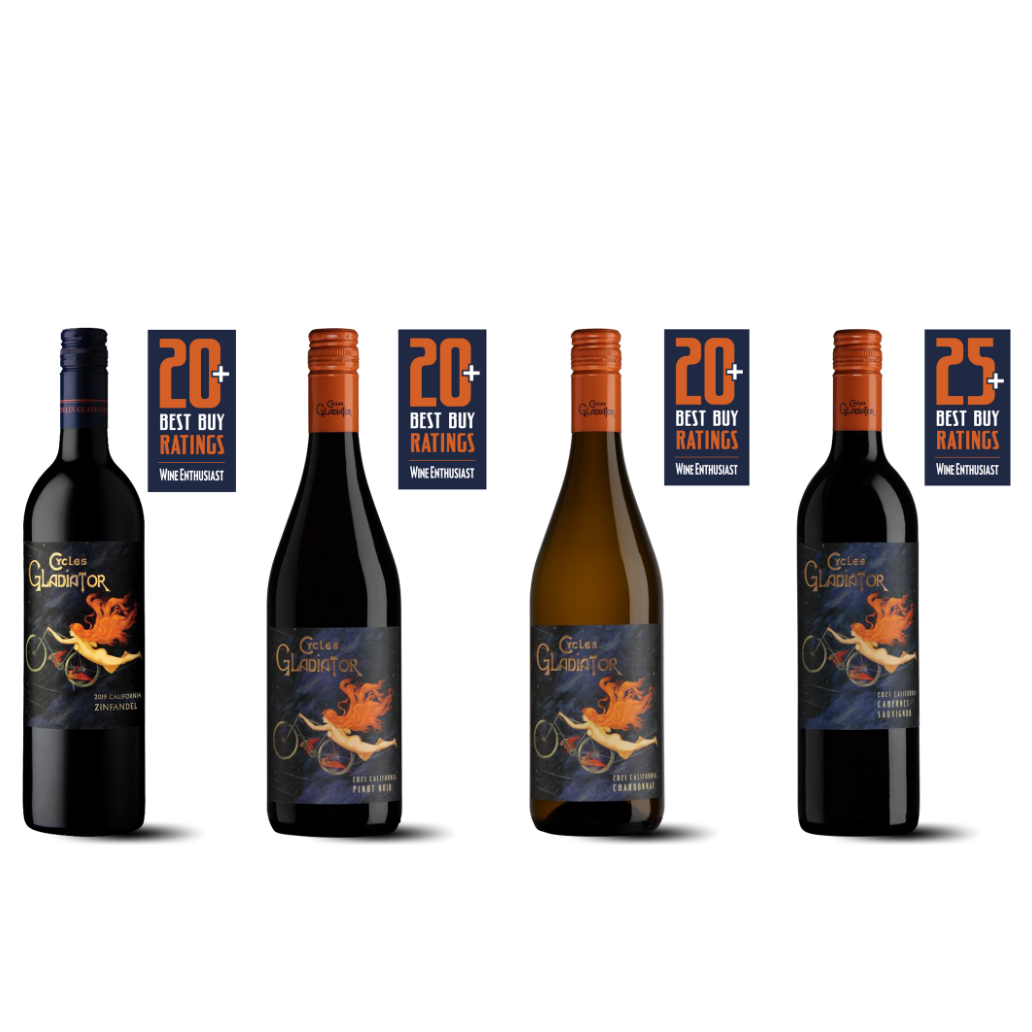

Shortbread - USA - Central-Coast
Shortbread is a type of cookie made from 1 part sugar, 2 parts butter, and 3 parts flour. The name of this Chardonnay playfully nods to this hugely popular British treat. It celebrates the finer things in life. In wine terms, whenever butter is mentioned, you almost always end up with Chardonnay. It’s California’s most beloved grape, perfectly combining the ever-present sun here with seductive exotic fruit, hints of vanilla and coconut, and its delightfully creamy, buttery character that is signature to this variety. A wine for any occasion! A Buttery Chardonnay!!
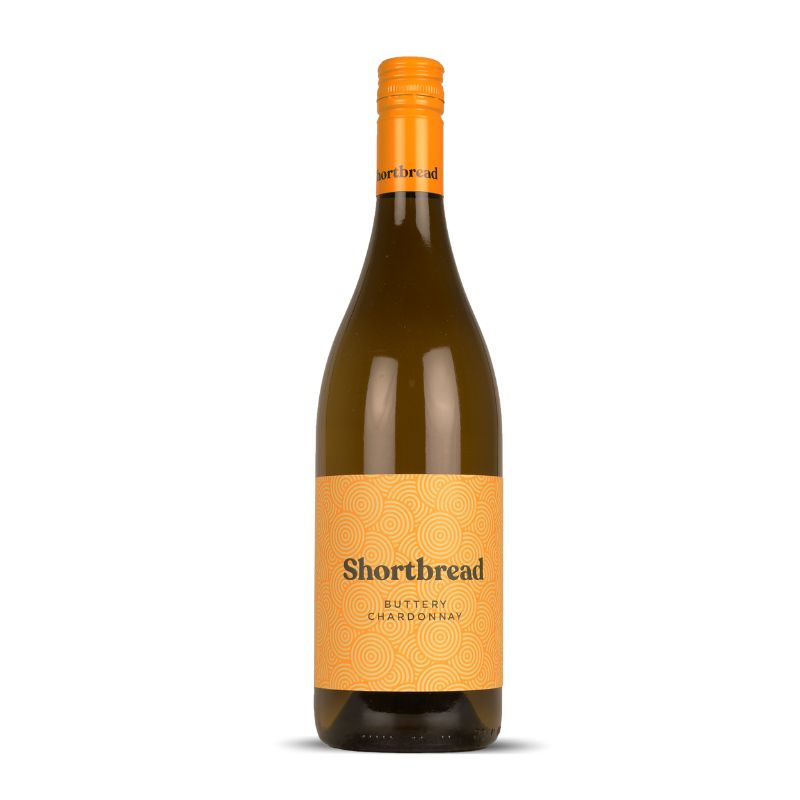
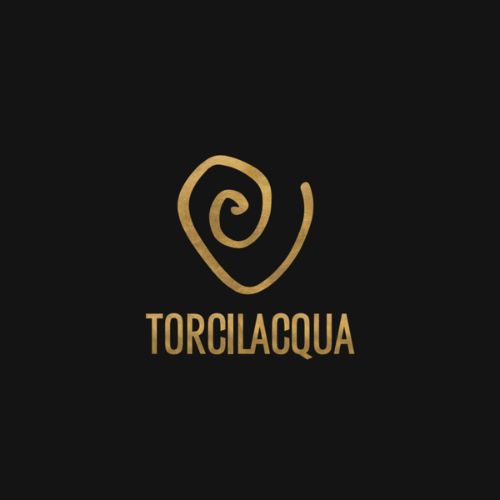
Torcilacqua - Italy - Toscane
In June 2018, Matteo Mariotti took over the leadership of Torcilacqua after many years working in the family business. Born in 1979, married, and with two daughters, he decided to pursue his lifelong dream of making wine—a passion that began in his youth and now finds its full expression in Torcilacqua’s wines. The estate is located in Badia a Passignano, in the heart of Chianti Classico, overlooking the surrounding vineyards and woodlands. The property stretches as a single block on the southern–southwestern side of the hill, opposite the historic abbey, at an average altitude of 350 meters above sea level. Its perfect exposure, the area’s microclimate, and the balanced soil texture allow the production of grapes of the highest quality, resulting in wines with remarkable structure.The vineyards have an average age of 20 years, trained in Guyot and Cordon de Royat systems, with an average planting density of 5,000 vines per hectare. Currently, the estate cultivates Sangiovese, Merlot, and Cabernet Sauvignon, producing three distinct wines from these varieties.
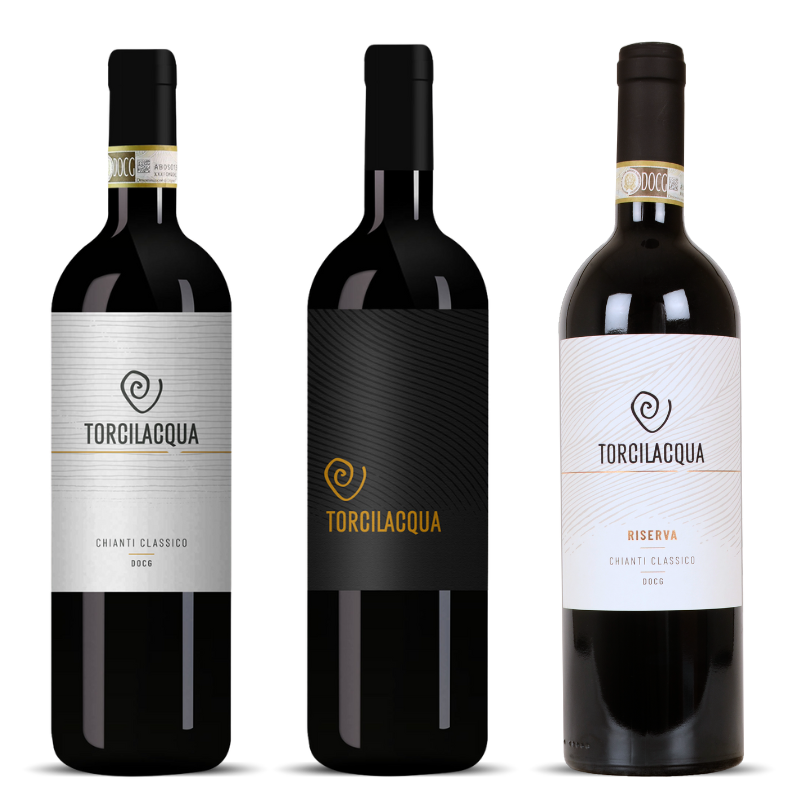
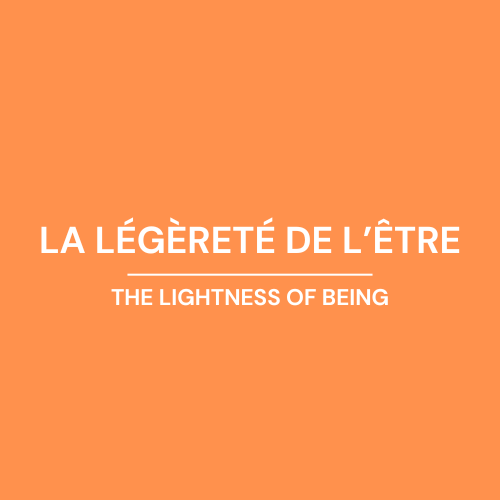
La Légèreté De L'Être - France - Languedoc
This forward-thinking project is a collaboration between Axel Wulfken and Allied Vintners. For some time now, there has been growing demand for low-alcohol or alcohol-free wines. Until now, however, the options available were rarely impressive in quality and seldom offered a truly enjoyable taste experience. Thanks to new innovations and creative approaches, that is finally changing. Axel and our team have assembled and crafted a range of wines with only half the usual alcohol content (7.5°), yet still exhibiting a seductive and thoroughly flavorful character. They aptly named the collection “La Légèreté de l’Être”, referencing not only the lower alcohol content but also the moment when these wines charm the most. These are truly summer-style wines, perfect for enjoying on a sunny terrace, at the beach, or alongside a light (possibly Mediterranean) meal. But make no mistake—“light” does not mean light in taste!

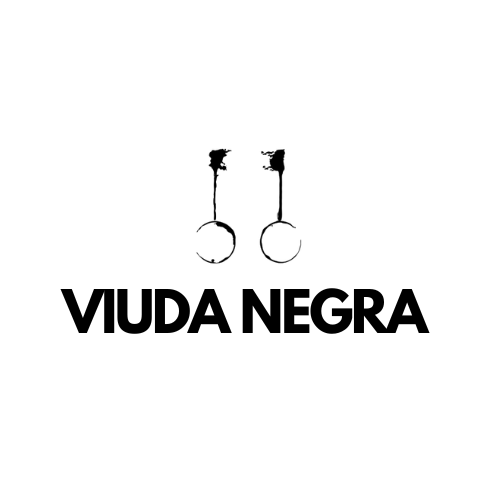
Viuda Negra - Spain - Rioja Alavesa
Javier is the fifth generation of a winemaking family from Laguardia, one of the most privileged locations in Rioja Alavesa. He was just 17 when he produced his first wine in his father’s cellars. In 2013, he decided to launch his own project: Bodegas Javier San Pedro Ortega. His wines are organized into three distinct families. The Viuda Negra (Black Widow) wines come from old vineyards in Rioja Alavesa, where the strictest standards are applied and the highest quality is pursued. With a focus solely on modern, high-quality wines, Javier has freed himself entirely from the traditional aged Rioja style. His wines are true gems, offering exceptional class and sheer drinking pleasure. A rising star in the world of top-tier wines!


Cueva de Lobos - Spain - Rioja
Cuevas de Lobos uses carefully selected grapes from old vines, with a particular focus on the indigenous Tempranillo variety. The winery places great emphasis on sustainability and follows traditional viticultural practices to highlight the unique characteristics of its terroir. Their wines are known for their deep color, rich aromas, and complex flavors. Cuevas de Lobos aims for balance and elegance, integrating the influence of oak in a subtle and harmonious way. The red wines are often robust and powerful, with ripe fruit notes, spicy nuances, and silky tannins. Meanwhile, the white and rosé wines are elegant and delightful to drink. Cuevas de Lobos has earned a growing reputation among wine enthusiasts and experts for its dedication to quality and craftsmanship. Their wines embody the passion and potential of the Rioja region, making them a true pleasure to explore and taste.

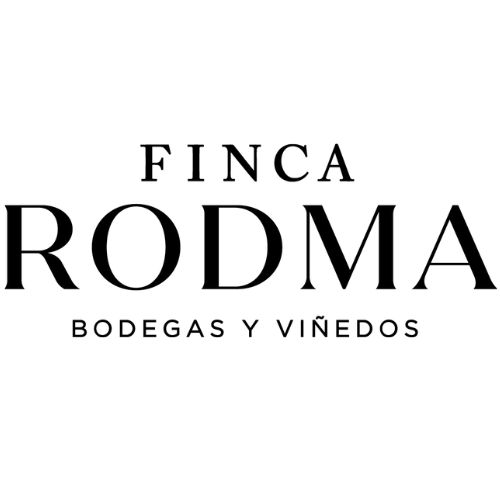
Finca Rodma - Spain - Ribera del Duero
Finca Rodma is a young (founded in 2019) and ambitious family project by the Martín Rodríguez family, committed to the highest quality standards of the region. With an iconic neighbor like Vega Sicilia, whose vineyards it borders, Finca Rodma benefits from one of the finest terroirs in the area. A variation of soils situated between 650 and 900 meters in altitude provides the ideal conditions to produce some of the very best wines not only in the region but in all of Spain.The vineyards are part of what is known in Ribera as “The Golden Mile,” home to the appellation’s most exceptional soils. The modern winery is located in the heart of the vineyards and has been built and designed to meet the latest standards, with minimal impact on the environment and climate. Production relies on gravity, and all energy used is entirely self-sufficient.Finca Rodma represents a modern and contemporary style, where the fruit and the wine itself take center stage. Noble oak aging provides structure and elegance but always remains subordinate to the wine itself. Winemaker Antonio Nieto is dedicated exclusively to achieving the highest possible quality.
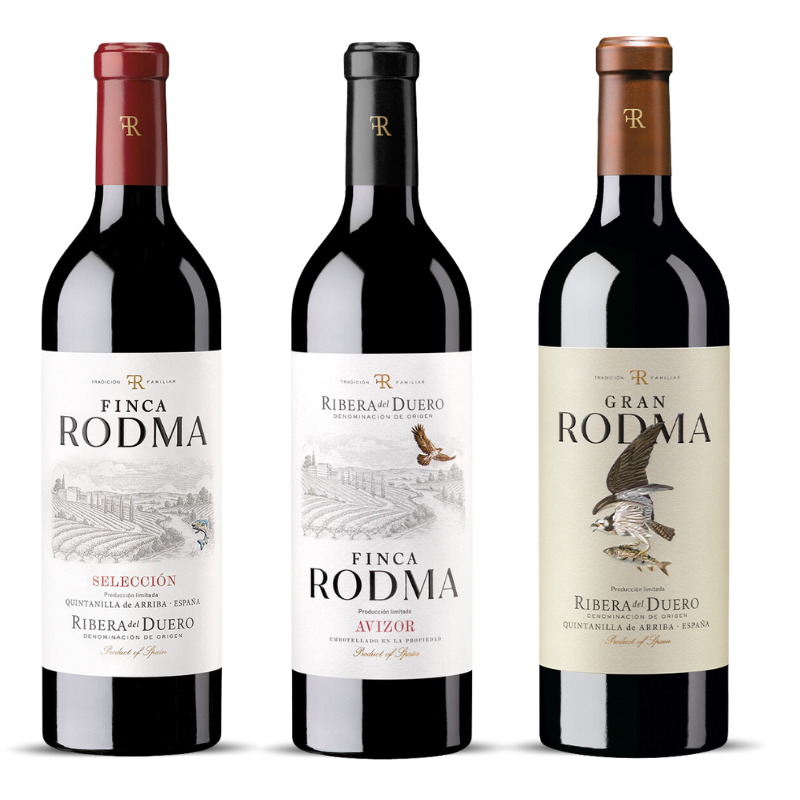

2 Kisses - Spain - Rioja
Just as in Belgium three kisses are customary, in Spain friends and valued acquaintances greet each other with only two. 2 Kisses is a direct welcome with an exceptional Rioja. These are two top wines from Viñedos Real Rubio. After more than a century of winemaking experience, the current generation decided in 2004 to take not only grape cultivation but the entire production process into their own hands. From the start, their ambition was more than forward-thinking: a creative, unique, and innovative image in a traditional appellation like Rioja… Different, yet absolutely top-tier! The approach meets all contemporary standards, focusing on the most natural methods and minimal intervention. The vineyards, situated over 350 meters above sea level, are among the best in Rioja, planted on the region’s finest soils. The winemaking team shares the same philosophy: presenting maximum quality with minimalist expression. 2 Kisses embodies a warm greeting—a heartfelt welcome with a new and innovative Rioja.
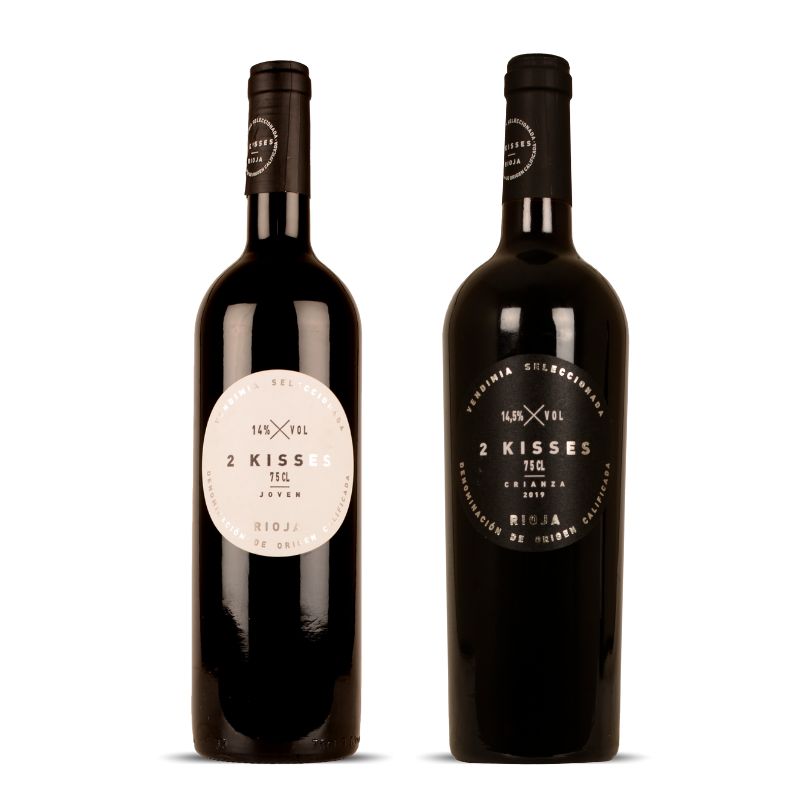

Groote Post – South Africa – Darling Valley
The Groote Post building was established in 1808 as a guard post—serving, as the name suggests, to protect livestock from theft by Hottentots and other local tribes. After a long history, Mr. Pentz decided to purchase the building and give it a new purpose. The hills of Darling proved ideal for cultivating grapevines. Situated just 7 km from the sea, the vineyards benefit from the cooling and moderating influence of the ocean. Today, this “cool climate” is a major advantage for the future. In the meantime, brothers Peter and Nick Pentz have taken over the estate with great ambition. They have continued to modernize while blending tradition with innovative techniques. The “Salt” range is a brilliant example of this philosophy, where the local environment and climatic conditions are used to create new, modern styles and techniques. Groote Post—a place with a rich past and an even greater future.
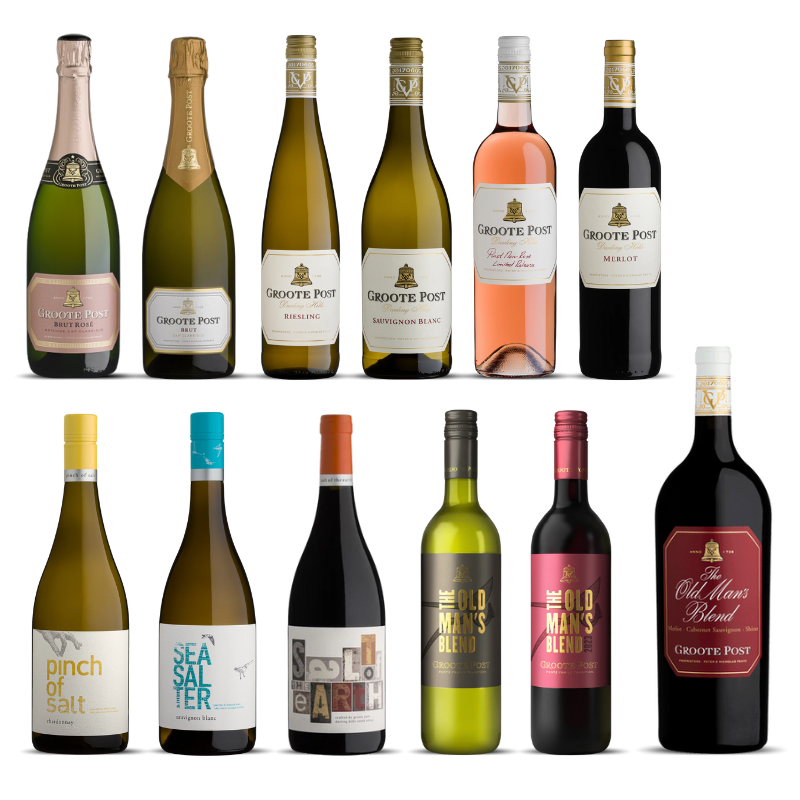
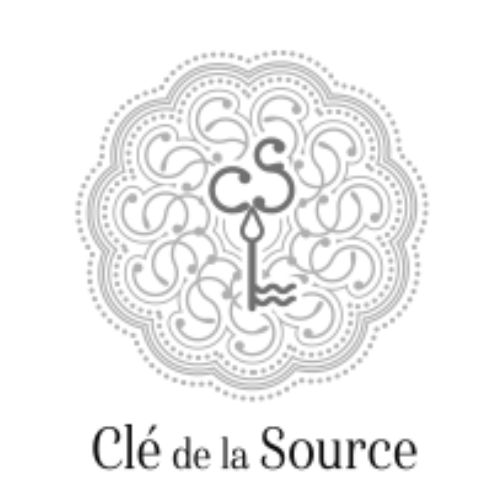
Clé de la Source - France - Languedoc
A ‘Capitelle’ is a small stone hut built without cement, traditionally found among the vineyards of the Languedoc. These structures provided field workers with a place to store tools or catch a quick nap between tasks. They are typical of the Cévennes region and contribute to the character of the landscape. Originally, Les Vignerons des Capitelles were five separate cooperative wineries in the Gard. In 2016, they decided to unite under a single company, controlling the entire winemaking process from start to finish, with quality as a central focus. Most of the winemakers are young and ambitious, already working in accordance with organic regulations, while others are in th process of transitioning to organic viticulture. The wines are simple yet flavorful, crafted with skill and expertise. They offer exceptional drinking pleasure at a modest price, allowing consumers to enjoy the wine without unnecessary fuss or frills.
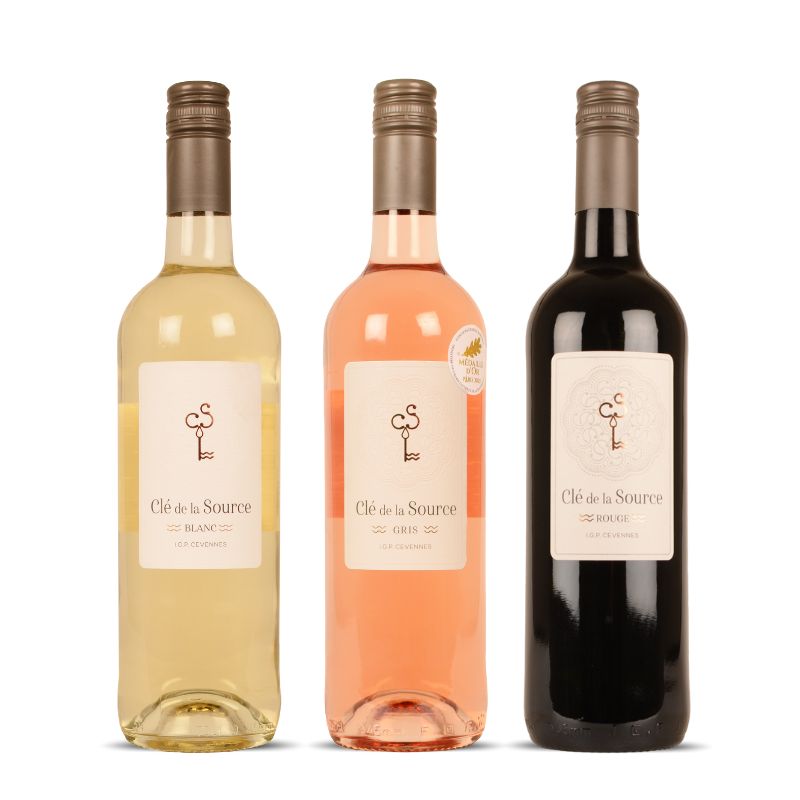
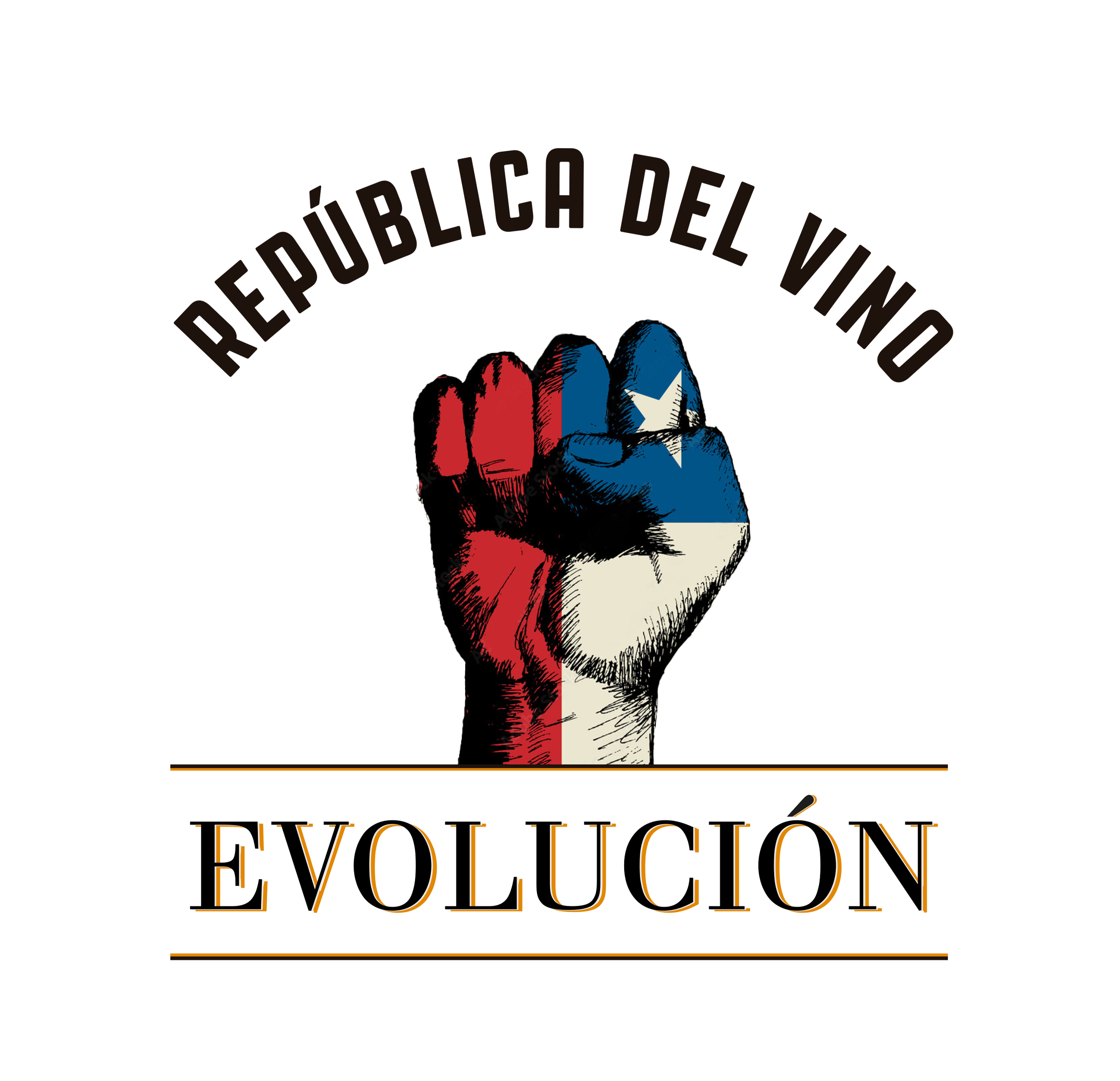
Republica del Vino - Chile - Maule Valley
Evolución wines are crafted for anyone seeking pure balance at an incredible value. We select the best grapes from carefully chosen terroirs across Chile’s valleys. The grapes are vinified in the most natural way possible, using our years of experience, controlled temperatures, and careful maceration. The result is a magical blend that adds a divine touch to Republica del Vino’s Evolución wines. These wines are sure to positively transform the way you experience wine!
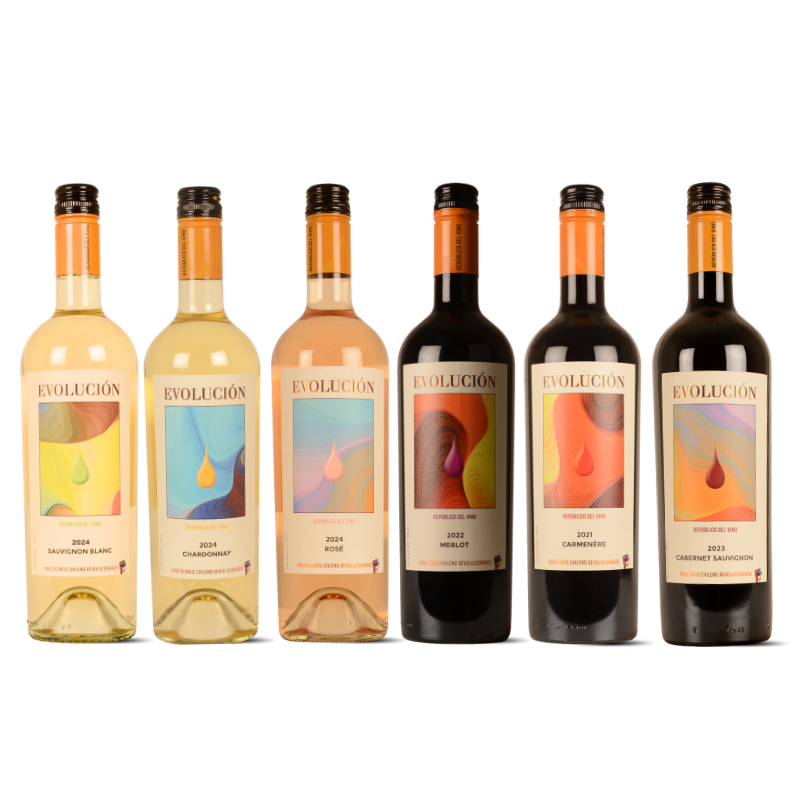
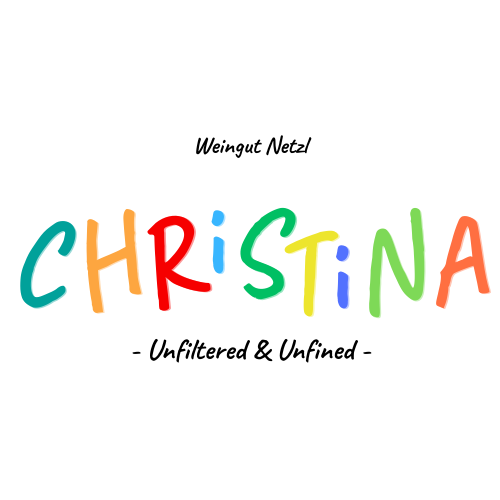
Christina - Austria - Carnuntum / Natural Wine
Franz and Christine Netzl, together with their two daughters, Christina and Annemarie, produce wines in southeastern Austria (Göttlesbrünn, in the Carnuntum region). The combination of clay, sand, gravel, and pebble soils, the indigenous grape varieties, and the family’s expertise make these wines a key reference in the region. Since the 2021 vintage, all wines from Weingut Netzl carry a certified organic label.
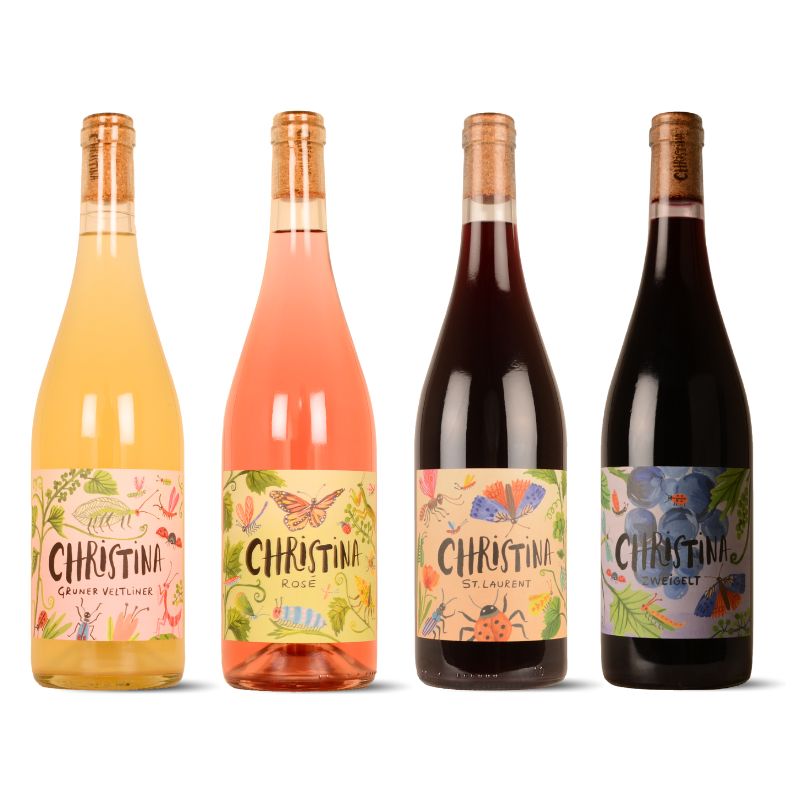
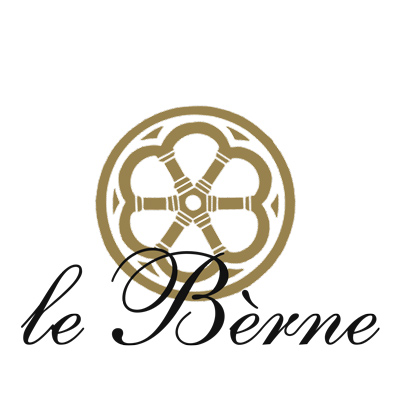
Podere Le Berne - Italy - Montepulciano / Toscany
Podere Le Berne spans 21 hectares of agricultural land, 10 of which are dedicated to vineyards. The estate was founded in the late 1960s by the Natalini family. Prior to that, their grapes were supplied to one of the many local cooperatives. Over the years, the estate has undergone intensive modernization, with an increasing focus on quality. The vineyards are located in Cervognano, the heart of Vino Nobile production. The land is hilly, with perfectly south-facing slopes. The name “Le Berne” originates from the Etruscan “Verna” or “Verena”, meaning “enclosed by hills.” Here, some of Tuscany’s most iconic wines are crafted. Their Riserva 2015 once again confirms Le Berne’s outstanding reputation and the exceptional quality of this privileged vintage!
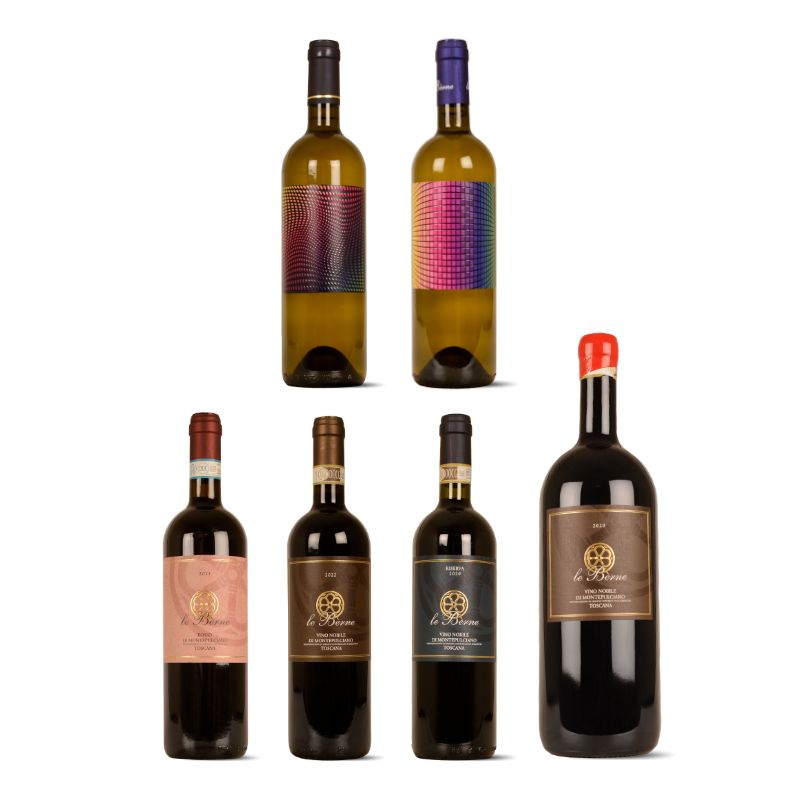

L'atelier Arthur & Jules - France - Languedoc
There are probably only two things that awaken our senses like wine and perfume. Jules Andrieu and Arthur Dupuy are childhood friends, a winemaker at Château La Gravade and a perfume developer, respectively. Masters in defining and creating aromas, they decided to transform their long-standing friendship and shared passion into a unique and captivating concept. Using three wines—white, rosé, and red—they created three corresponding perfumes, each reflecting the same aromatic characteristics. Each perfume represents a wine, and each wine embodies a perfume. The fragrance is infused into the glass stopper, allowing you to enjoy the aromas even before opening the bottle. The wines are bottled in specially designed bottles that exude the elegance of a perfume bottle. The wines themselves are of the highest quality, emphasizing pure and fresh fruit aromas.
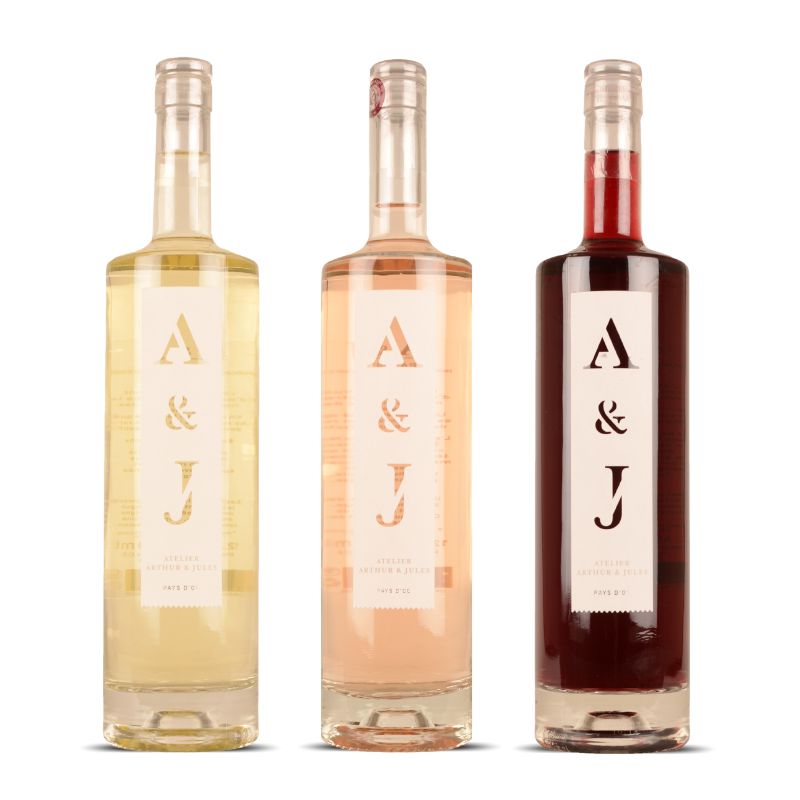
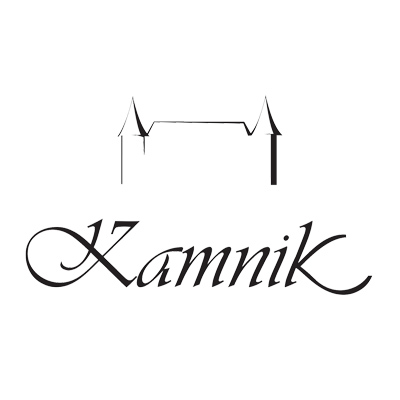
Chateau Kamnik - Macedonia - Skopje
The most awarded winery in Macedonia. Winners of the Gold Medal and Regional Trophy for Best Red Wine in Central and Eastern Europe at the Decanter World Wine Awards 2013. Founded in 2004, Kamnik planted its first vines the same year, harvested its first vintage in 2008, and received its first awards in 2009. By 2014, production capacity had increased to 120,000 liters. Kamnik expresses the grandeur of ancient Macedonian traditions, culture, and terroir in a truly contemporary style. By blending past and future, tradition and refined state-of-the-art techniques, nature and science, they craft some of the most compelling wine experiences. The winery’s mission is to preserve historical and traditional values while adapting to the demands of the modern fine wine market, all while continuously exploring new possibilities to elevate Macedonian winemaking.


Capitelles - France - Languedoc
A ‘Capitelle’ is a small stone hut built by stacking stones without the use of cement. Found among the vineyards of the Languedoc, these huts were used by field workers to store tools or take a short rest during the workday. They are typical of the Cévennes region and contribute to the character of the landscape. Originally, Les Vignerons des Capitelles were five separate cooperative wineries in the Gard. In 2016, they decided to unite under a single company, controlling the entire winemaking process from start to finish, with quality as a central focus. Most of the winemakers are young and ambitious, already working according to organic regulations, while others are in the process of transitioning to organic viticulture.The wines are simple yet flavorful, produced with great skill and know-how. They offer exceptional drinking pleasure at a modest price, allowing consumers to enjoy the wine without unnecessary fuss or frills.
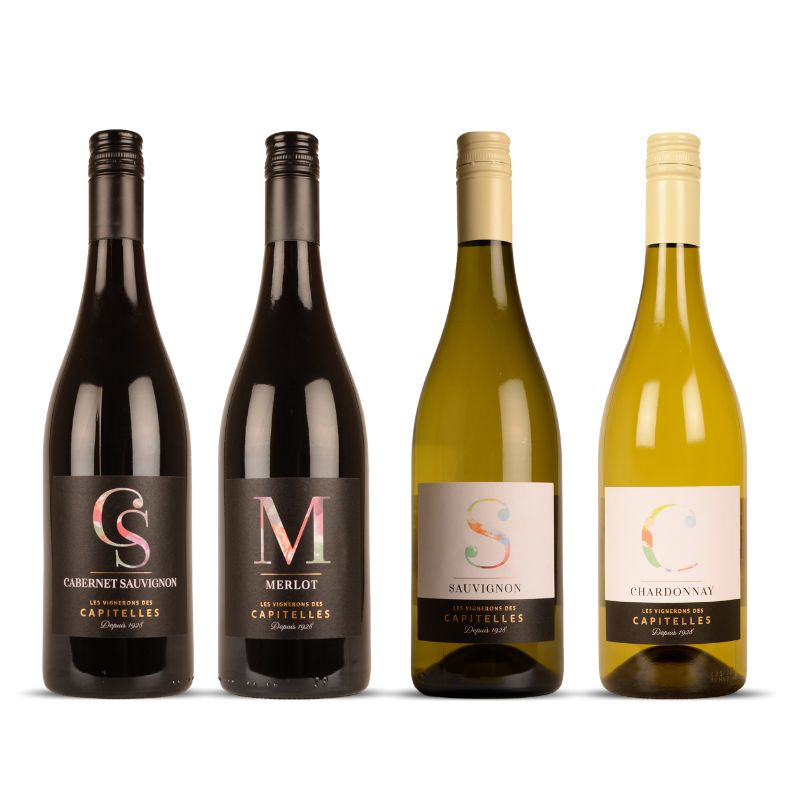
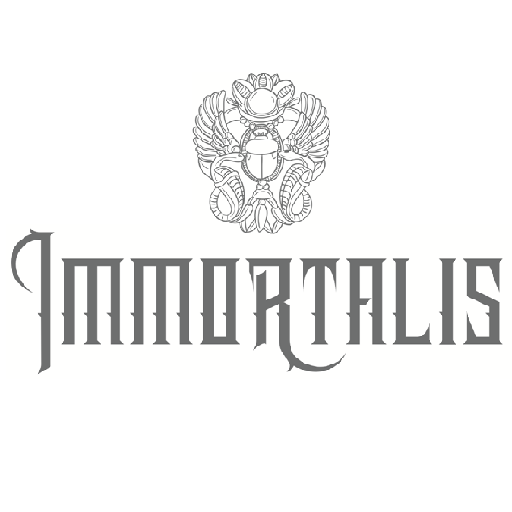
Immortalis - Spain - Ribera del Jiloca
The Reula family owns one of the most promising estates in Cariñena, Aragon. In both winemaking techniques and overall ambition, they aim for nothing less than the very pinnacle of the wine pyramid. Their wines are essential treasures for any wine lover. EL CHIQUER is a journey of discovery, a revival of the valleys of Ribera del Jiloca—one of Spain’s oldest wine regions, dating back to Roman times. It is a dream realized: restoring these ancient, forgotten vineyards before they vanish. Their Macabeo from century-old vines is simply breathtaking. With IMMORTALIS, they venture beyond the safe boundaries of their appellation, producing a range of wines from different corners of Spain. In regions such as Priorat, Terra Alta, Rías Baixas, Calatayud, and Bullas, the best vineyards have been selected and meticulously worked, applying their full expertise to create top-tier wines from each area. The name IMMORTALIS may seem bold, but it perfectly reflects their ambition: these regions deserve nothing less than worthy representatives—wines that rank among the very best in Spain.
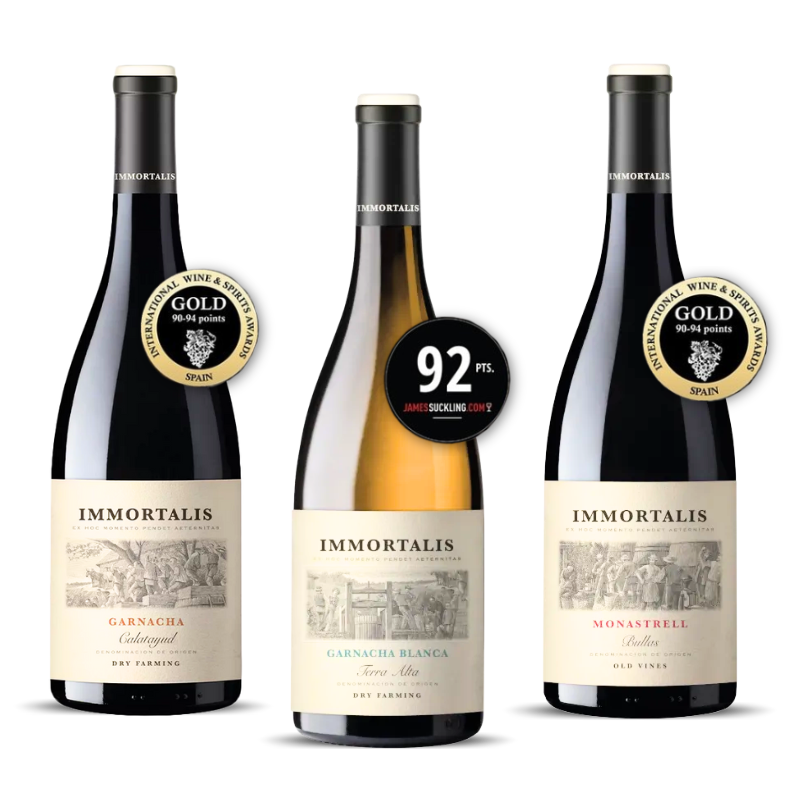
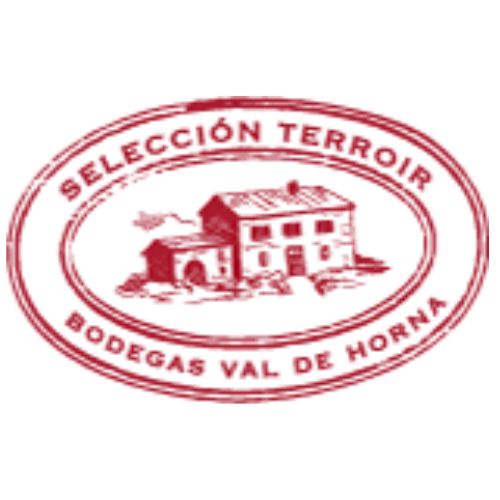
Bodegas Val de Hornas - Spain - Zaragoza
Fifteen years ago, only three winemakers were active in Ribera del Jiloca. Yet this high-altitude wine valley holds enormous potential for producing top-quality wines. Straddling the provinces of Teruel and Zaragoza, it caught the attention of Aylés’s Ramon Reula, who, as a specialist in the Garnacha grape, committed fully to demonstrating what this variety can achieve at altitude.The vineyards are now nearly 40 years old on average, planted at 800 meters above sea level. The wines are aged in two-meter-high concrete eggs, yielding spectacular results. It is yet another crown on the work of the Aylés team, specialists in rediscovering and revitalizing forgotten or nearly lost wine regions.Even with a seemingly “ordinary” grape like Macabeo, they manage to produce extraordinary wines. Yields are kept low, irrigation is absent, and the wines are crafted using the latest techniques. It is no surprise that Val de Hornas has become an undeniable gem in Spain’s already diverse wine landscape.
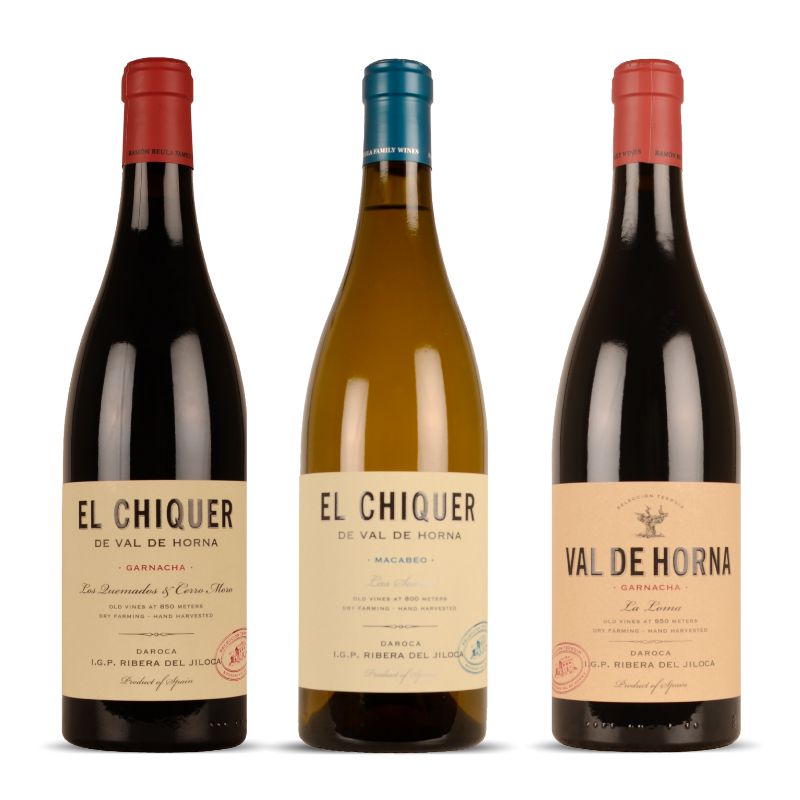
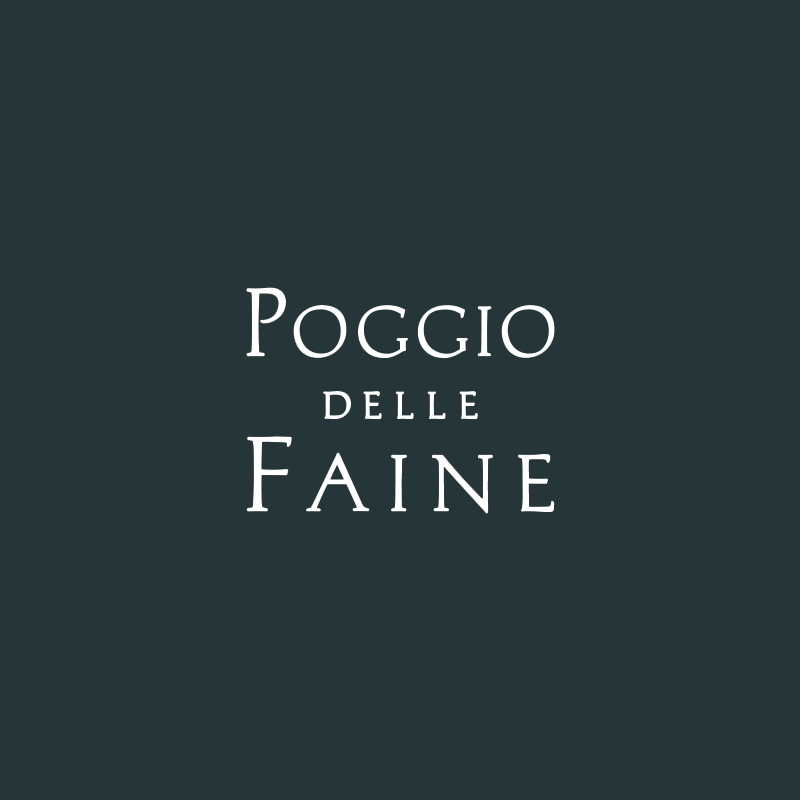
Poggio delle Faine - Italy - Toscany
The vineyards of Poggio delle Faine are located near Siena, in one of the world’s top wine regions. Sangiovese takes center stage here, complemented beautifully by Cabernet Sauvignon. On the white side, Chardonnay shines—delightful and elegant.
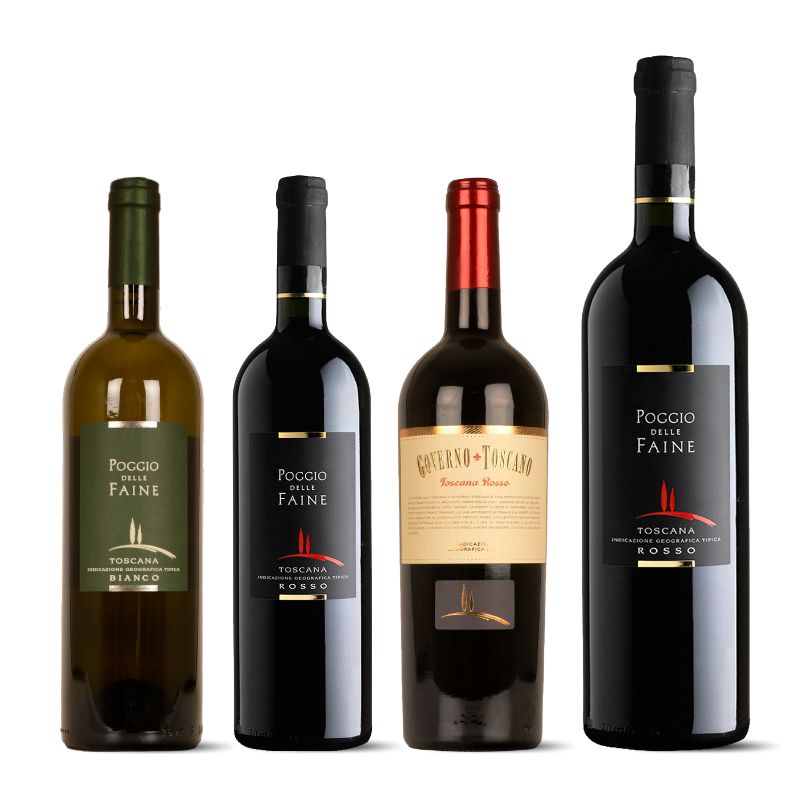
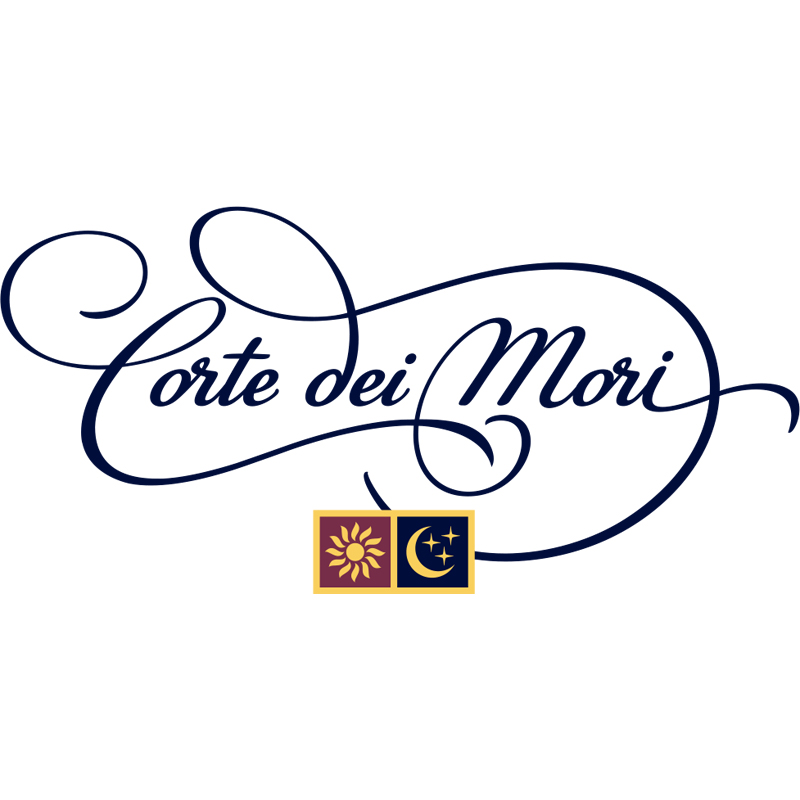
Corte dei Mori - Italy - Puglia
Cantine Minini was founded in 1920 in Verolanuova, where Francesco Minini, a young soldier who had just returned from the First World War, began his ambitious wine venture. With limited funds but boundless determination, he set out to create a vineyard of excellence. This ambition was soon challenged by the outbreak of the Second World War, yet even after this tragedy, he pressed on with renewed enthusiasm and dedication.In the early 1960s, the estate was completely rebuilt at a new location, which remains today the headquarters for the many other sites the company now operates. During these years, the estate experienced its greatest growth, initiating collaborations with winemakers across Italy, representing nearly all of the country’s key wine regions. This enabled the Minini family to offer a portfolio that reflects almost the entirety of Italian winemaking, rather than focusing solely on the Veneto region.
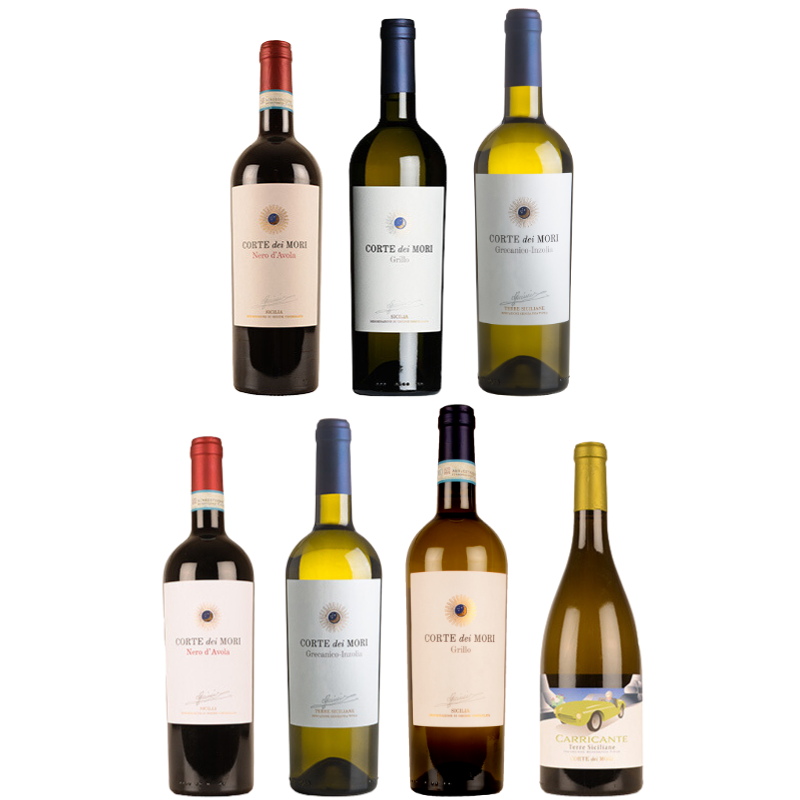
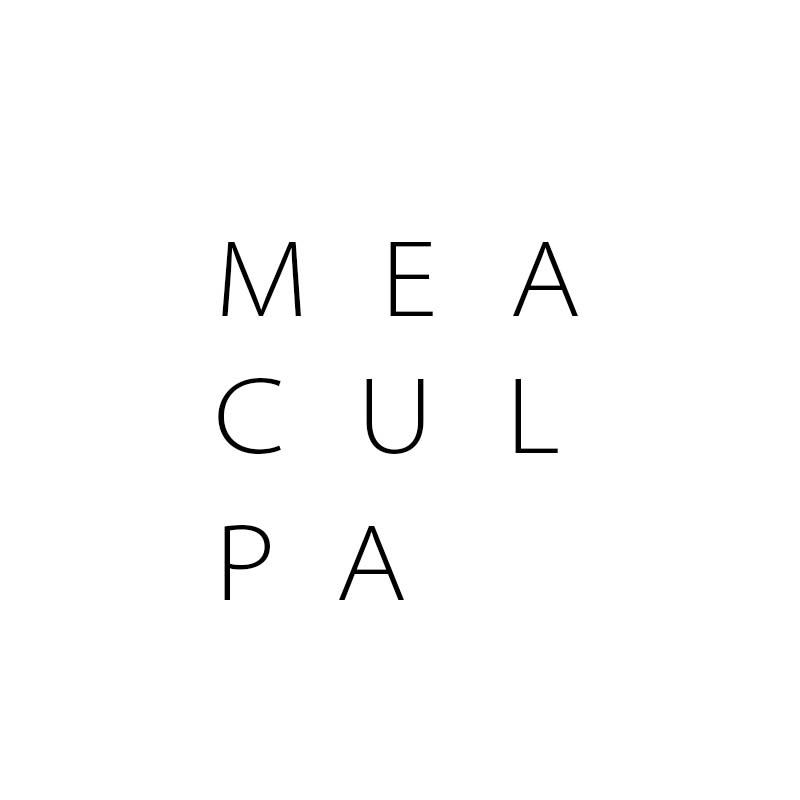
Mea Culpa - Italy - Puglia / Sicily
60% of this blend comes from Puglia: Primitivo del Salento, grown on 50-year-old vines with very low yields, resulting in an intense concentration of color and flavor. Half of the harvest is slightly dried to further enhance this concentration. The remaining 40% comes from Sicily, comprising Syrah from higher-altitude vineyards and a generous portion of Merlot, creating a rich and full-bodied composition.
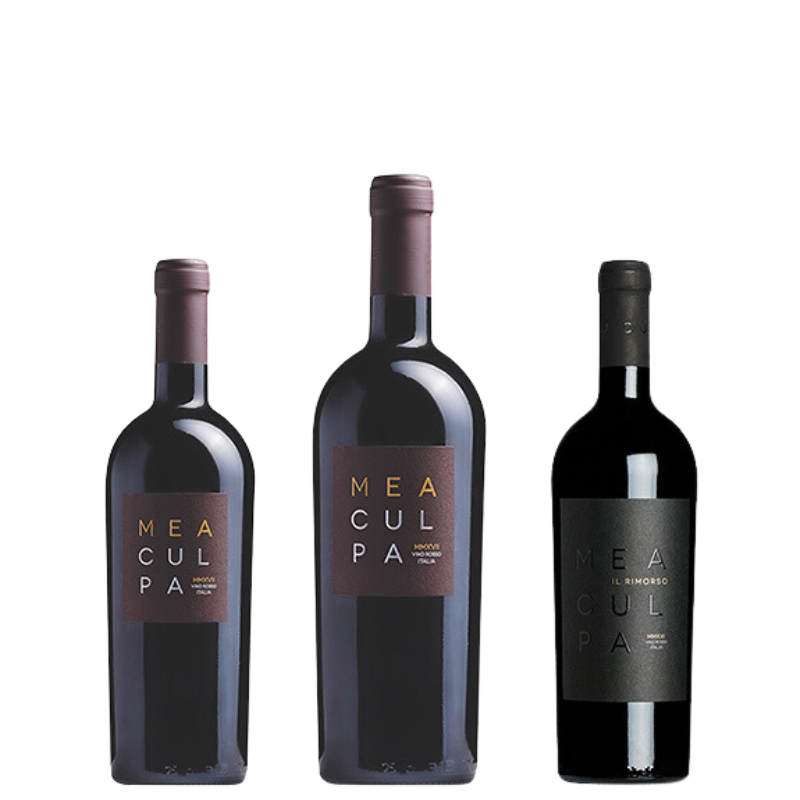

Monmousseau - France - Cremant de Loire
What’s in a name? In 1886, Alcide Monmousseau founded a winery entirely dedicated to crafting and aging sparkling wines using the traditional method, just like in Champagne, where the wine develops its bubbles in the bottle. In the shadow of the famous Château de Chenonceau, vast cellars were dug into one of France’s largest tuffeau layers. This white limestone was not only used to build castles and abbeys, but also serves as an ideal thermoregulating material for the storage and aging of sparkling wines.Monmousseau’s wines undergo extended aging on the lees, making them among the finest and most balanced in the region. They also pride themselves on exceptional blending expertise: their Crémant de Loire is crafted from six different grape varieties, each contributing its part to achieve the perfect assemblage.
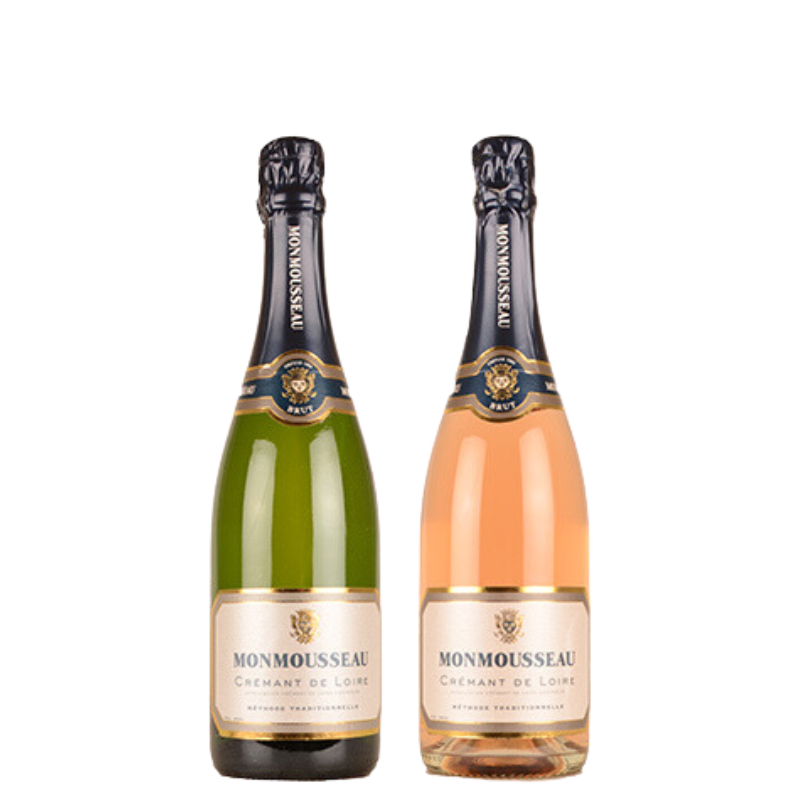
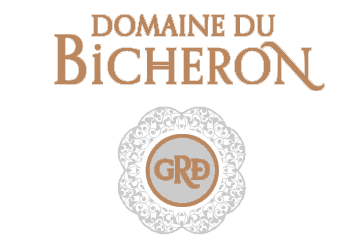
Domaine du Bicheron - France - Burgundy
Here in southern Burgundy, the vines benefit from more sunshine and Mediterranean influences, resulting in wines that are riper and rounder. The estate was founded in 1889, and today the fifth generation has taken up the torch. Domaine du Bicheron can therefore rely on a long tradition and experience, while the newer generations have also introduced the latest techniques and installations.Like any conscientious modern estate, a deep respect for the environment and climate is central to their approach. They have long practiced Lutte Raisonnée, and since 2018 they have also obtained a full organic certification as well as HVE (Haute Valeur Environnementale). Moreover, a region like Burgundy naturally comes with a price — and nowadays that price has evolved beyond all proportion. In this context, Domaine du Bicheron offers beautiful and honest wines that provide an affordable and flavorful alternative to the top Côte d’Or wines, which today remain accessible only to a select few.
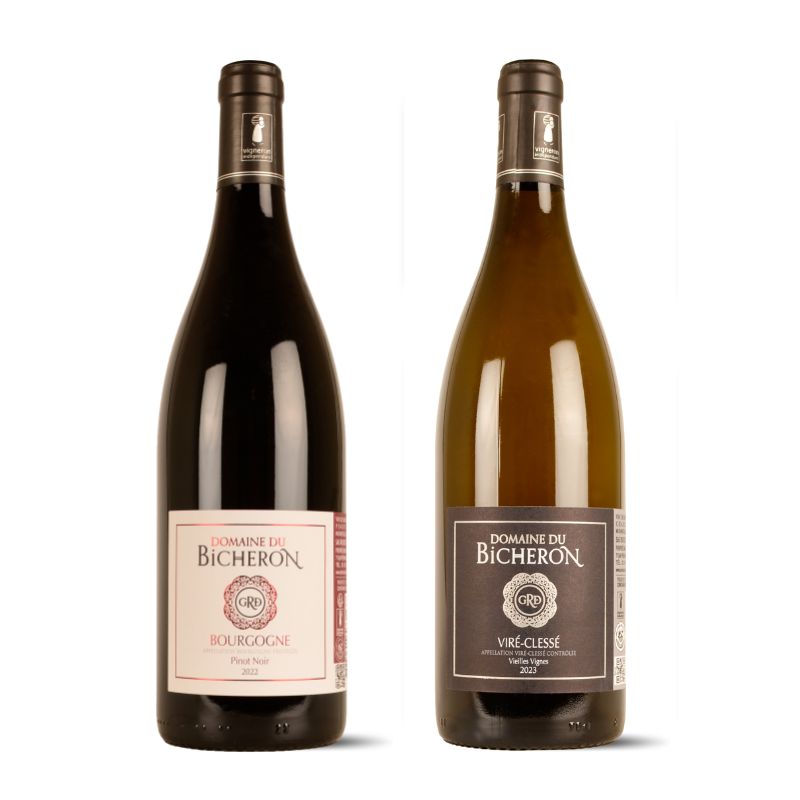
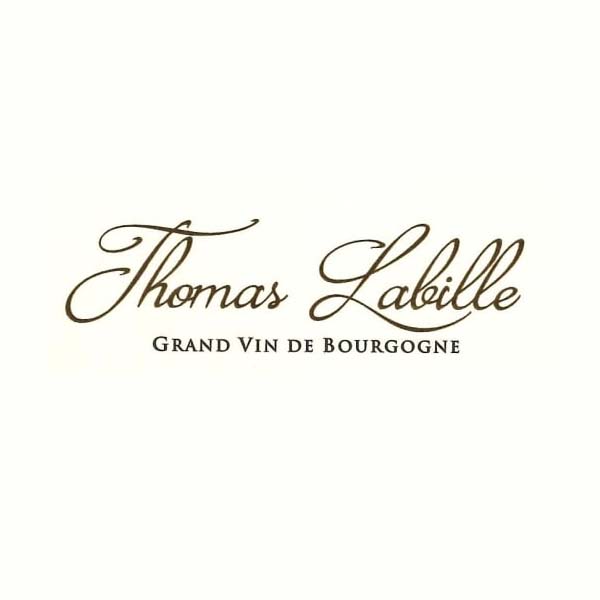
Chablis Thomas Labille - France - Burgundy
In 1987, Etienne Boileau, Christian Simon, and William Nahan combined their available vineyards, creating 11 hectares to secure the launch of their estate. Another 80 hectares were still used for grain cultivation. Just a year later, the vineyard area was already doubled. After a few challenging early years, the decision was made to stop growing grain entirely, leaving only one focus: wine. In 1993, significant investments were made in the cellars to ensure autonomous and high-quality vinification, which immediately earned the estate its first gold medal at the Concours Agricole in Paris. Over the years, further modernizations, awards, and medals followed.By the early 2000s, the estate had established itself as one of the consistent and top producers in Chablis. In 2019, the three original partners retired, and the succession was taken over by Arnaud Nahan and Thomas Labille. With their recent vintages, they demonstrate that quality continues to improve. The original name was simplified to ‘Thomas Labille’, but the wines remain Chablis and Chardonnay with a capital C… Let the oysters come!
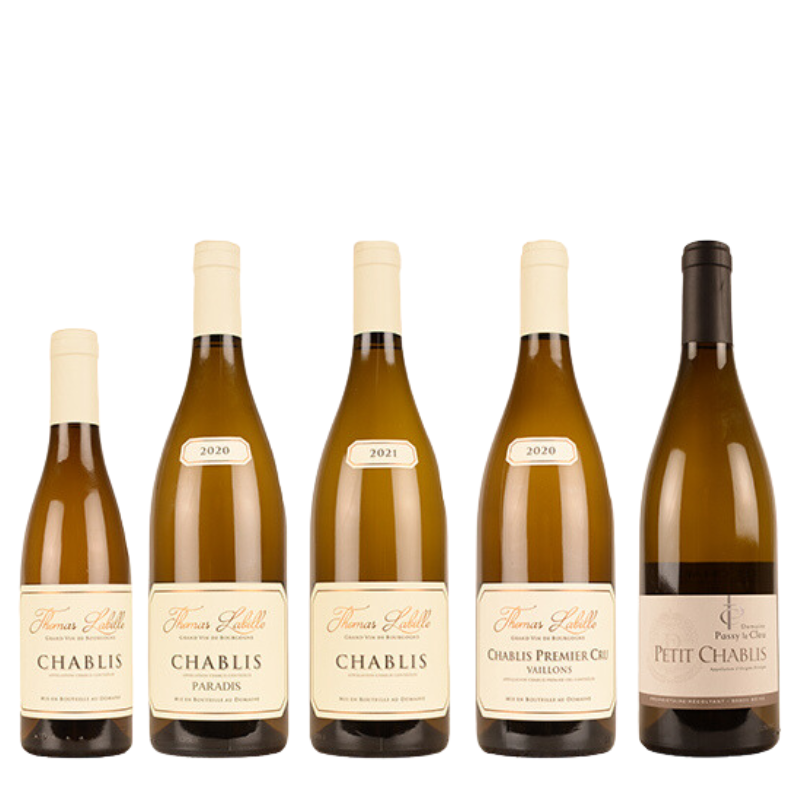
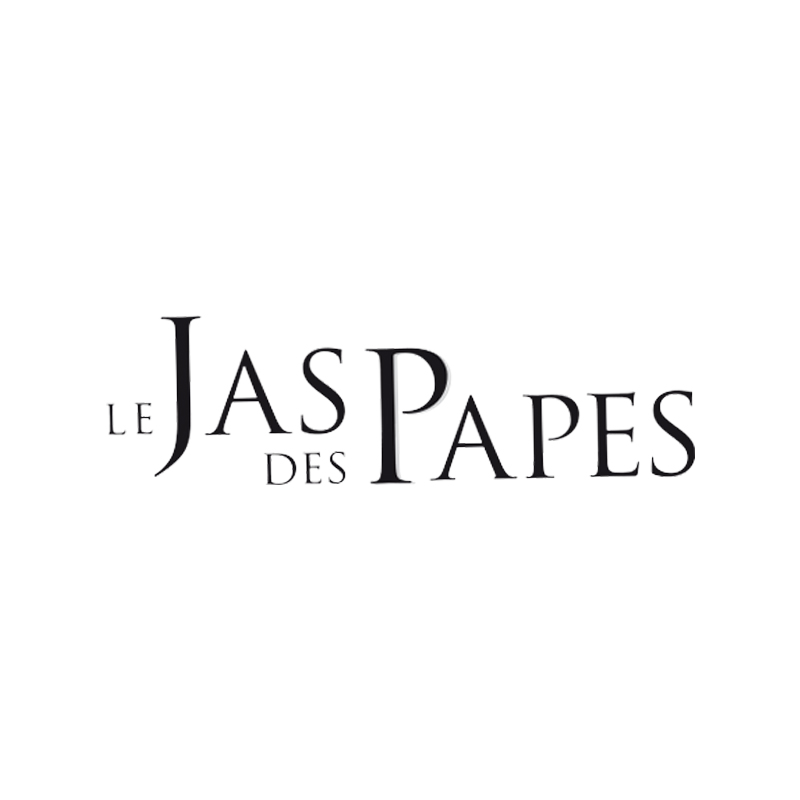
Le Jas Des Papes - France - Châteauneuf du Pape
The vineyards of Le Jas des Papes have a history dating back to 1890. At that time, the estate belonged to the Granget family and was known as “Château de Husson”. From 1973 to 2006, wines were still bottled under this name. In 2007, the vineyards and the rights to the name “Château de Husson” were sold to a family from the Luberon, while Bernard and Jérôme Granget retained 7.5 hectares of vineyards for themselves. New cellars and facilities were built, and the estate was renamed “Le Jas des Papes”. The first vintage under this name was bottled in 2008. In 2014, Jérôme Granget sold the estate to Michel Audibert, who appointed Sébastien Philibert as winemaker and operator. He continues to be responsible for the beautiful wines of this still young estate. In 2017, Le Jas des Papes received organic certification, meeting current environmental and climate standards. The wines are both subtle and generous, with a pure, elegant character, making them a true highlight in this world-renowned appellation. The Pope’s wine reserve is certainly in safe hands!
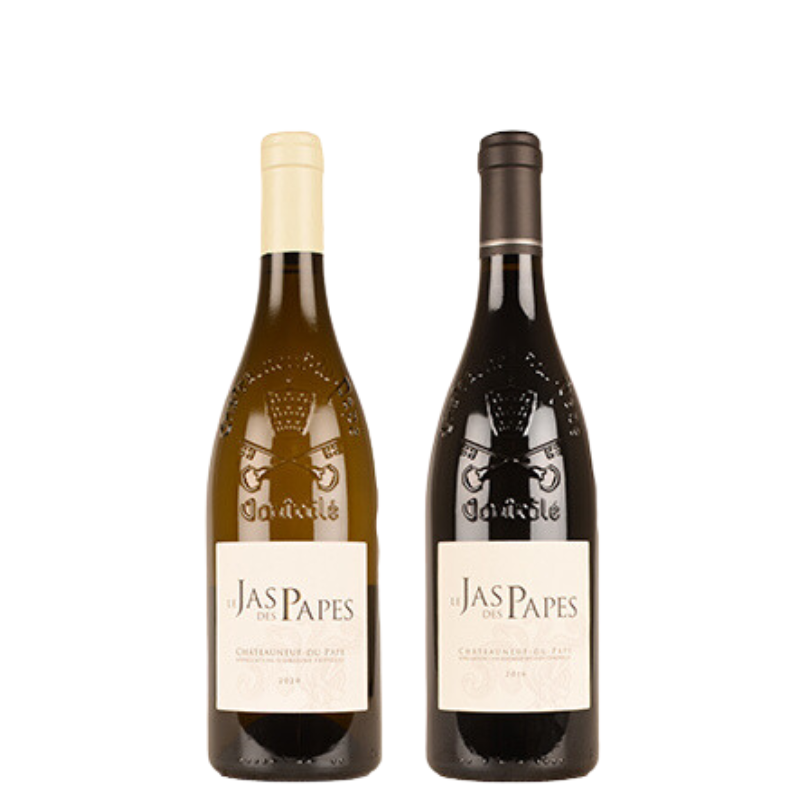
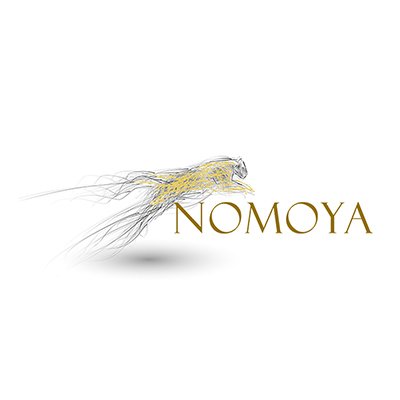
Nomoya - South Africa - Swartland
The name Nomoya literally means “With Spirit” or “Full of Zeal,” a fitting reflection of the young team behind this ambitious wine project. Talia Engelbrecht, the winemaker, embodies joy, enthusiasm, and the pursuit of perfection. She brings a fresh, innovative, and experimental energy to the Nomoya team. Together with the more experienced winemaker and marketing expert Michela Sfiligoi and agronomist Atilio Dalpiaz, they form the perfect team that has made Nomoya one of the most promising estates in the Swartland region. They exemplify one of Nelson Mandela’s many pearls of wisdom: “A winner is a dreamer who never gives up.” From the very first vintages, Nomoya’s wines made an immediate impression. They are produced from single-variety grapes, both South African and European, each fermented separately in tanks made of different materials – concrete, stainless steel, and wood – allowing each wine to express its own unique character and style.
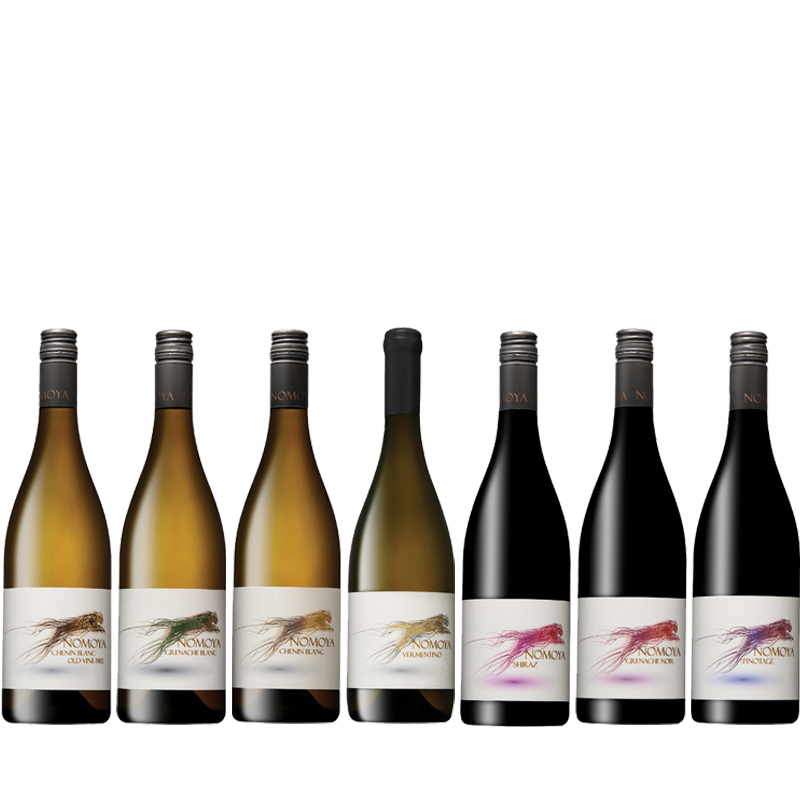
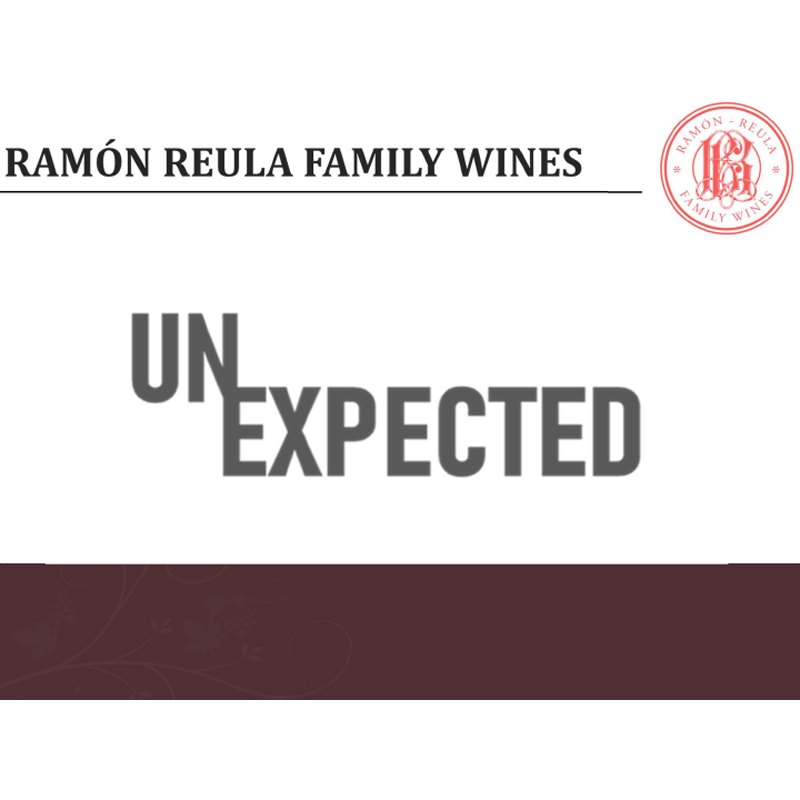
UNexpected - Spain - Aragon
Finca Aylés – UNexpected is located in northeastern Spain, near Zaragoza and southeast of La Rioja. The Ramón Reula family launched this ambitious wine project in the 1980s, acquiring small estates and vineyards to restore the historic Finca Aylés, which dates back to the Middle Ages, to its former glory. Finca Aylés holds the highest classification achievable in Spain. While it is not protected under traditional appellations such as Rioja or Ribera del Duero, it is recognized as a “Viños de Pago”, in this case Pago Aylés—one of only 15 such designations across Spain. It is the largest historic family-owned winery in Aragon, with all vineyards cultivated according to eco- or organic standards. The estate benefits from a unique and extreme continental climate, with temperatures that can fluctuate dramatically. Combined with the exceptional soil diversity and the estate’s historic identity, these factors make Finca Aylés an appellation in its own right. The wines are of extraordinary quality, making them a must-try for every enthusiastic wine lover.
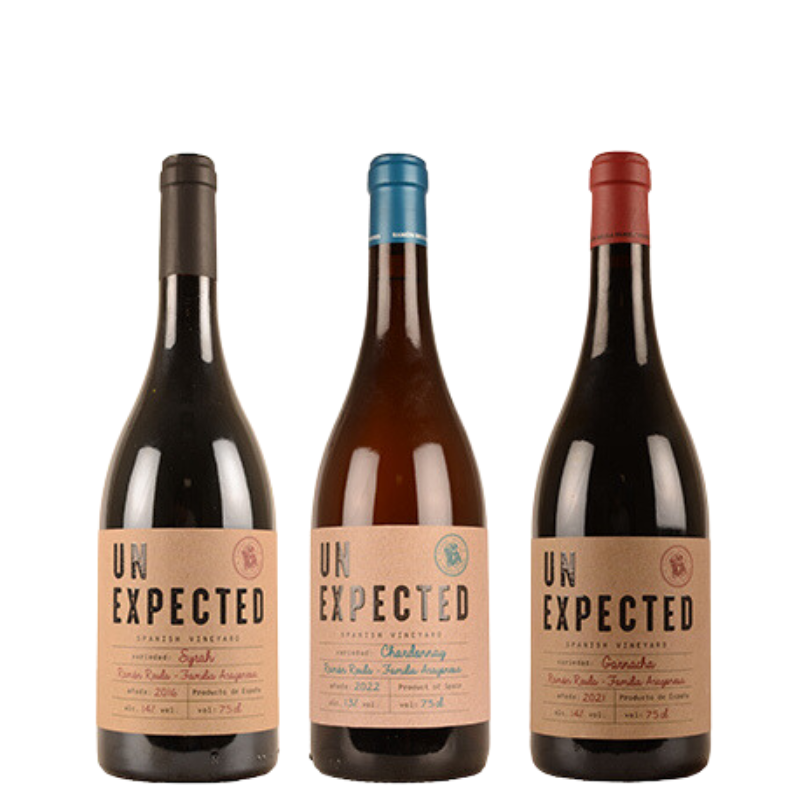
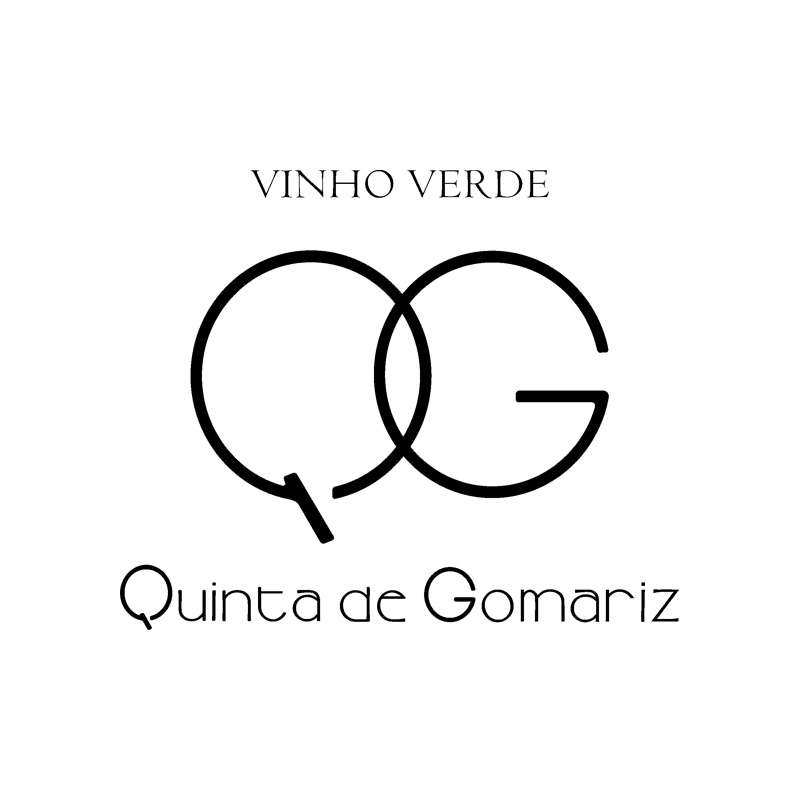
Quinta de Gomariz - Portugal - Vinho Verde's
In the Vinho Verde region, António Sousa stands out as a true master. The winemaker at Gomariz crafts his wines using traditional methods, with a delicate touch of natural carbonation that gives his Vinho Verdes extra liveliness and tension. His track record is nothing short of impressive. At the latest annual competition for the best Vinho Verdes, organized by the Vinho Verde wine commission, António Sousa managed to win 5 out of 13 gold medals in a blind tasting—out of 250 participating winemakers!
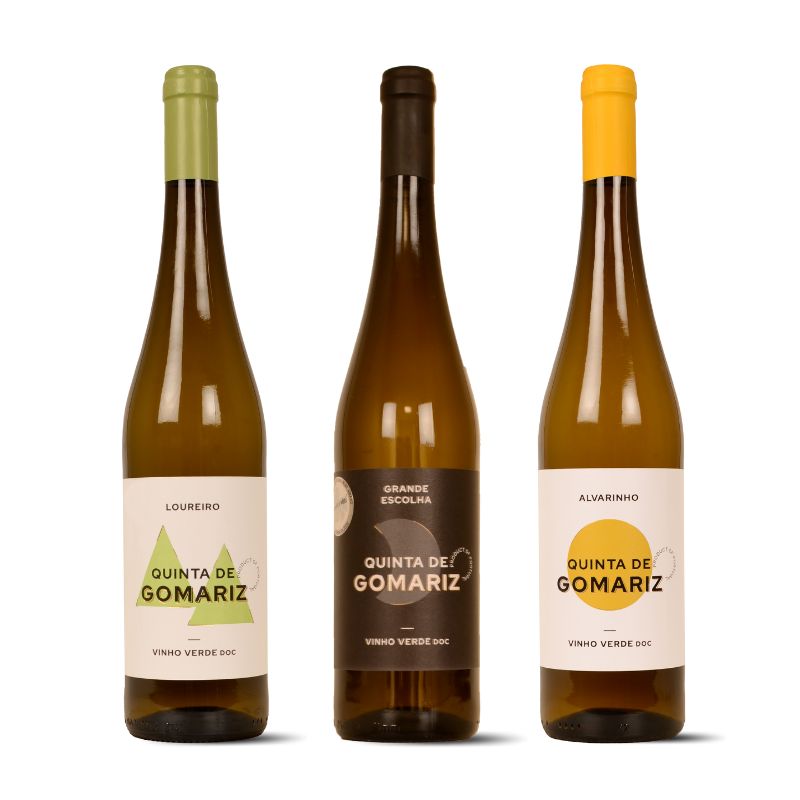
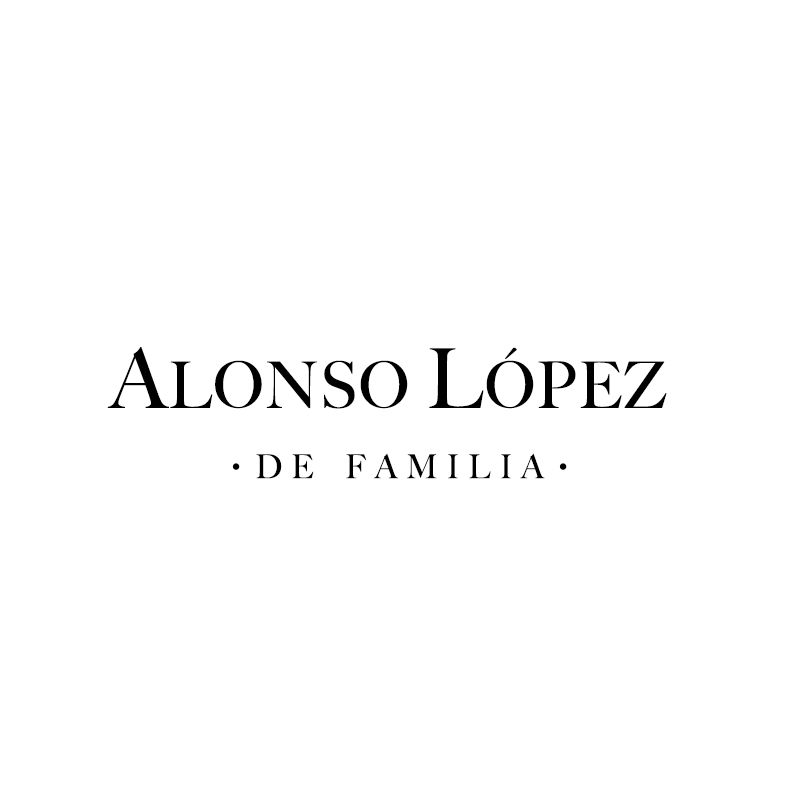
Alonso Lópe - Spain: A True Enrichment for the Spanish Wine Map
Since the winery was founded in 1925, it is now the third generation of the family that has the privilege of showcasing their winemaking skills in one of the most privileged locations of La Rioja. La Puebla de Labarca, located in Rioja Alavesa, one of the three sub-regions of the appellation, is known for producing some of the very best Rioja wines. Being the northernmost region, its vineyards benefit from a higher altitude and the influence of three distinct climate types. These exceptional conditions, combined with the family’s unbridled passion for wine, make Alonso López one of the most distinguished family-owned wineries in the region.
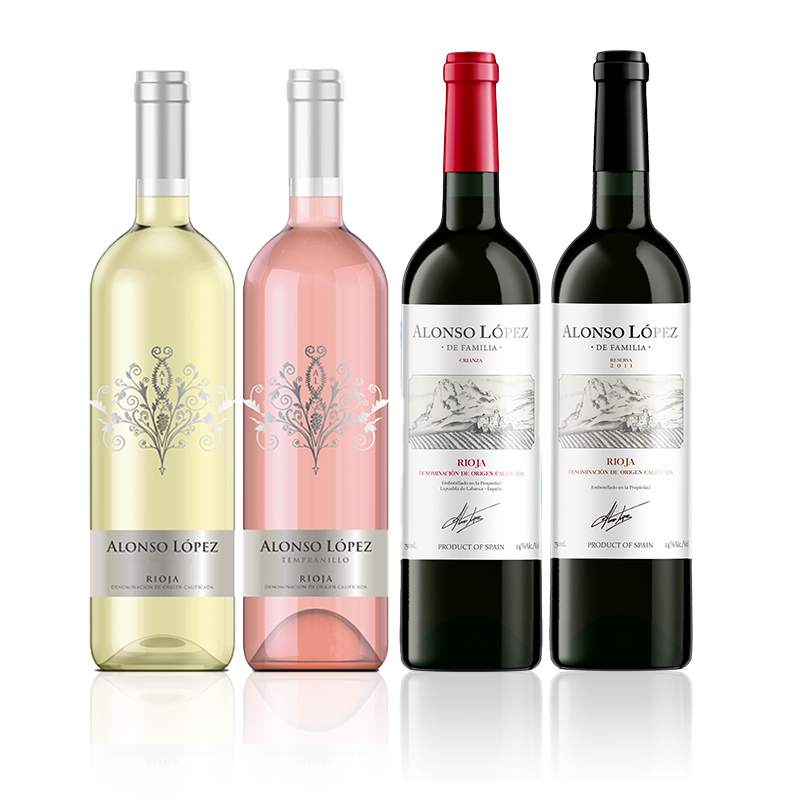

Château Planères - France: Wines with Great Personality
The estate boasts four generations of winemakers and is a family collaboration between the Jaubert and Nourry families. Nestled between the Pyrenees and the Mediterranean, the climate here can be extremely challenging. The constant interplay of winds and temperature fluctuations results in wines with remarkable finesse, concentration, structure, and balance. Every wine from Planères is an individual expression of these conditions, with each vintage requiring its own unique approach. Don’t expect overripe or jammy styles—here you’ll find delicate, mineral, terroir-driven gems brimming with personality, guaranteed to make the heart of any true wine lover beat faster.
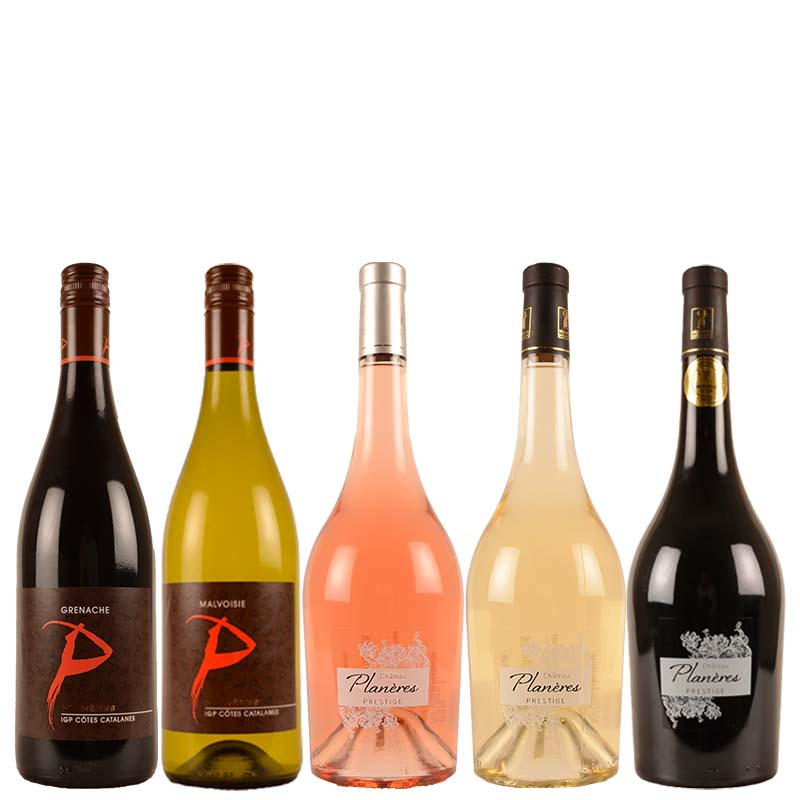

Ciabot - Italy: Elegance at Its Finest
Cantine del Ciabot, located in Farigliano, was founded in 1895. Their white wines are crafted from Favorita (the Piedmontese Vermentino), Arneis, and Chardonnay, while their red wines feature the region’s classic trio: Dolcetto, Barbera, and Nebbiolo.Each wine is a typical and honest expression of one of Italy’s most renowned wine regions, and, by extension, a testament to the broader world of fine winemaking.
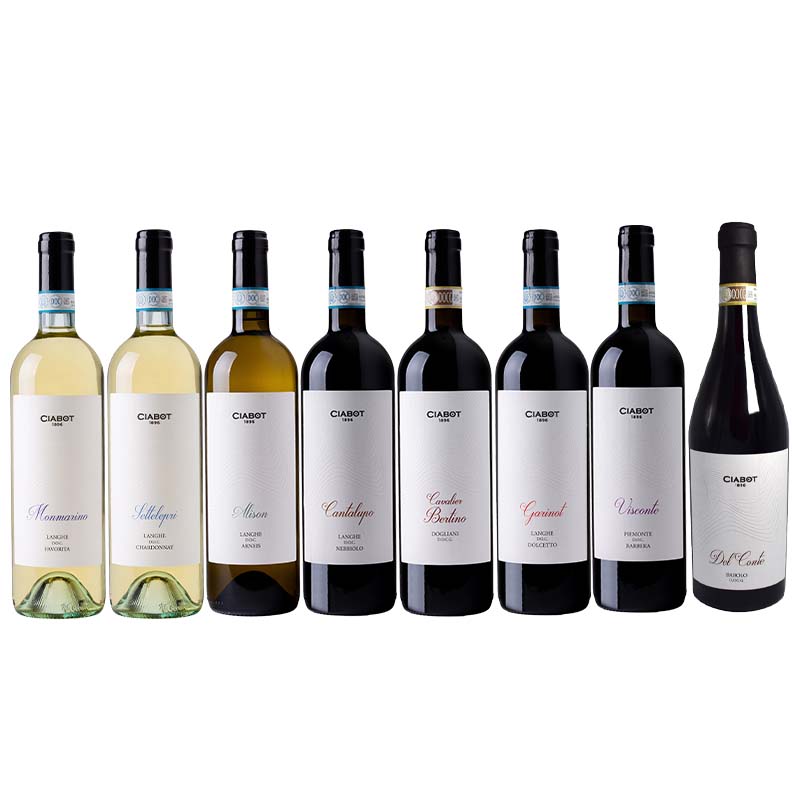
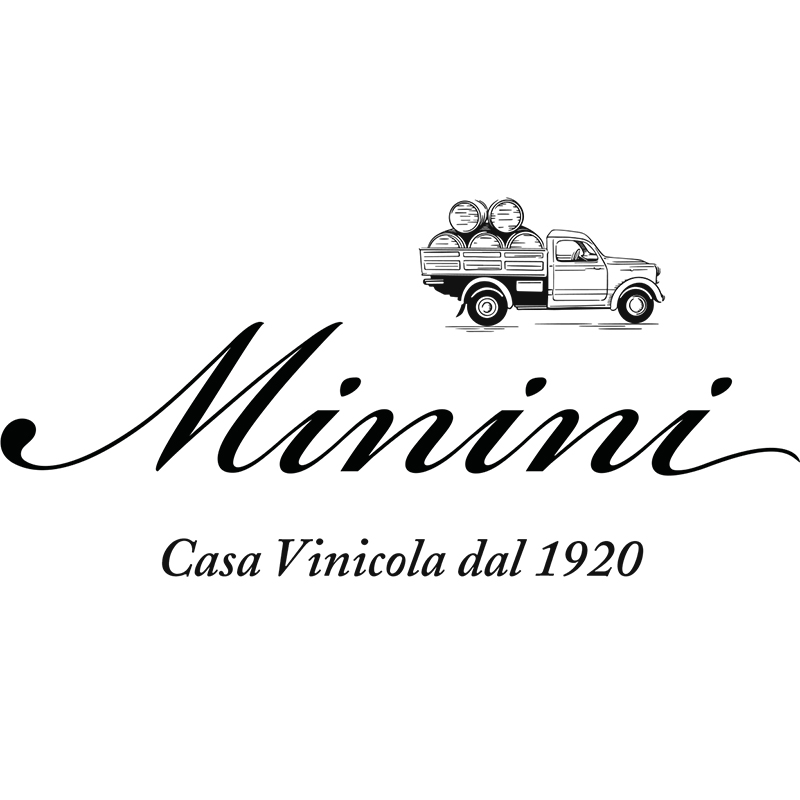
Cantine Minini - Italy: A Broad and High-Quality Range of Italian Wines
Cantine Minini was founded in 1920 in Verolanuova, where Francesco Minini, a young soldier freshly returned from World War I, began his ambitious winemaking journey. Today, the third generation, also represented by a Francesco Minini, continues this legacy and offers a broad and high-quality portfolio of Italian wines at an international standard. These wines are of excellent quality without venturing into exclusivity, allowing everyone to enjoy the richness of Italy without breaking the bank.
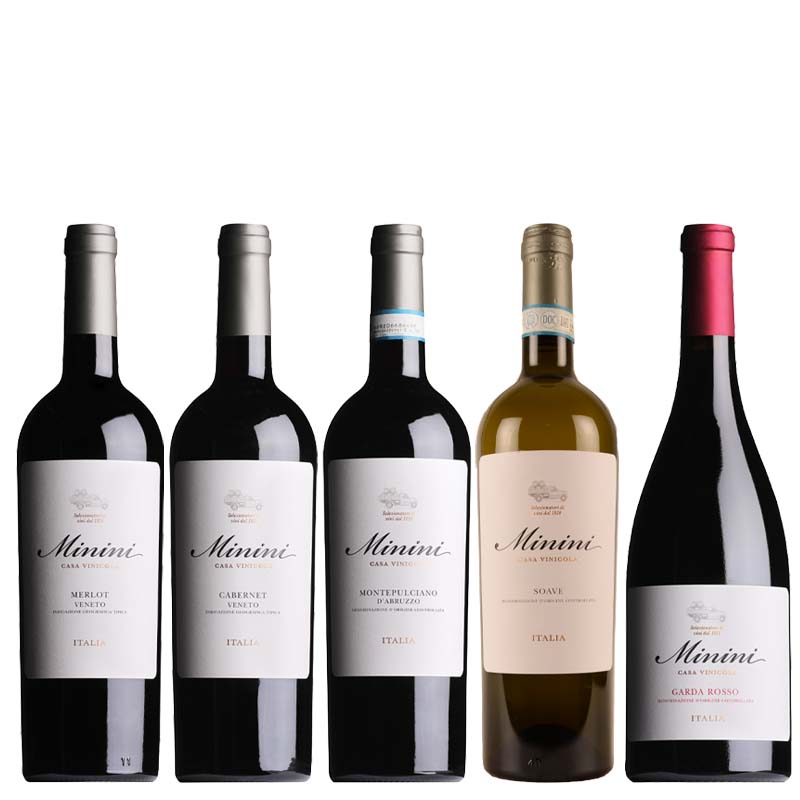
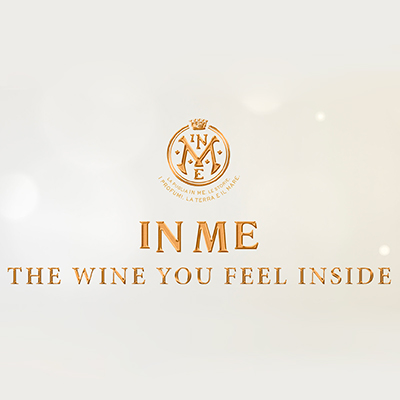
IN ME - Italy: An Irresistible Range of Wines
Following successful estates like Poggio Le Volpi and Masca del Tacco, as well as brands such as Epicuro, Masseria Trajone, and Feudi del Duca, Felice Mergé unveils yet another remarkable label: ‘IN ME’. As always, Felice manages to present us with an irresistible collection of wines. The warm and welcoming character of Southern Italy shines through in every bottle. These are generous, opulent wines with a sunny, seductive personality, capable of captivating both novices and seasoned wine lovers alike. Each wine is also highly acclaimed by critics around the world, earning exceptional scores and recognition. While Puglia was once known for inferior mass-produced wines, where quality was often overlooked, today it offers discoveries that can bring instant joy to every wine enthusiast.
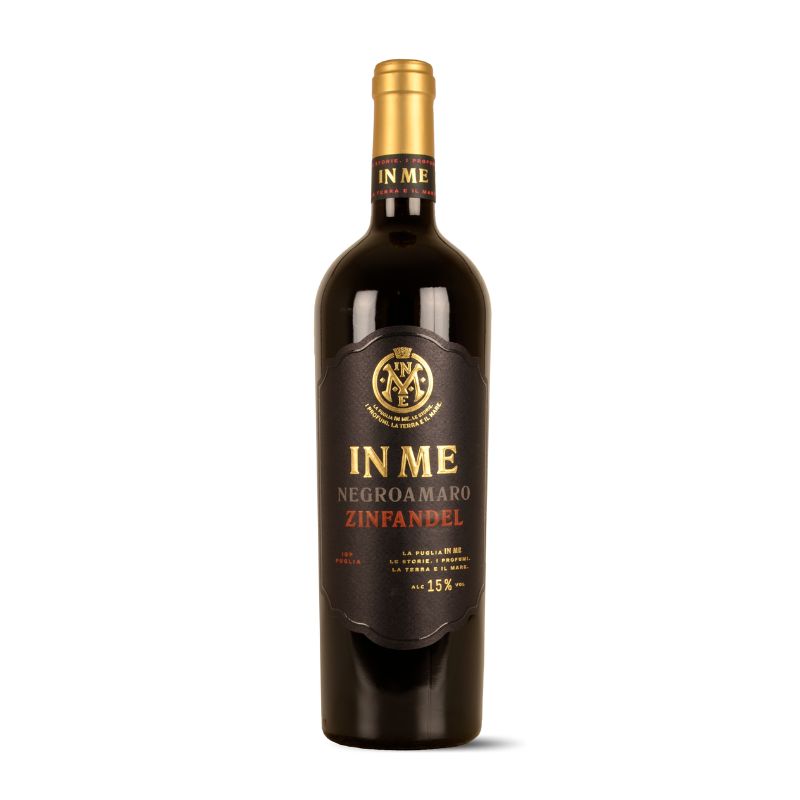

Casina Bric 460 - Italy: Legendary Barolos
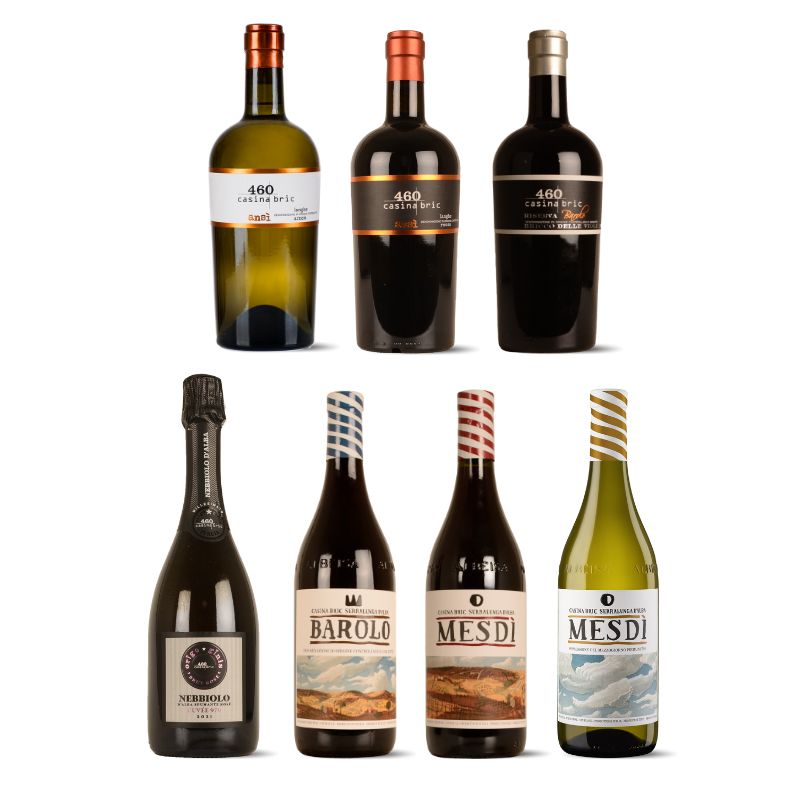
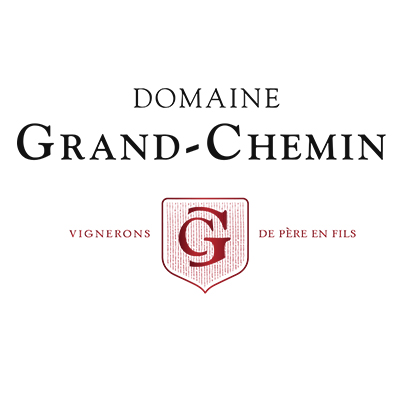
Domaine Grand-Chemin - Frankrijk: zalig lekkere druivencombinaties
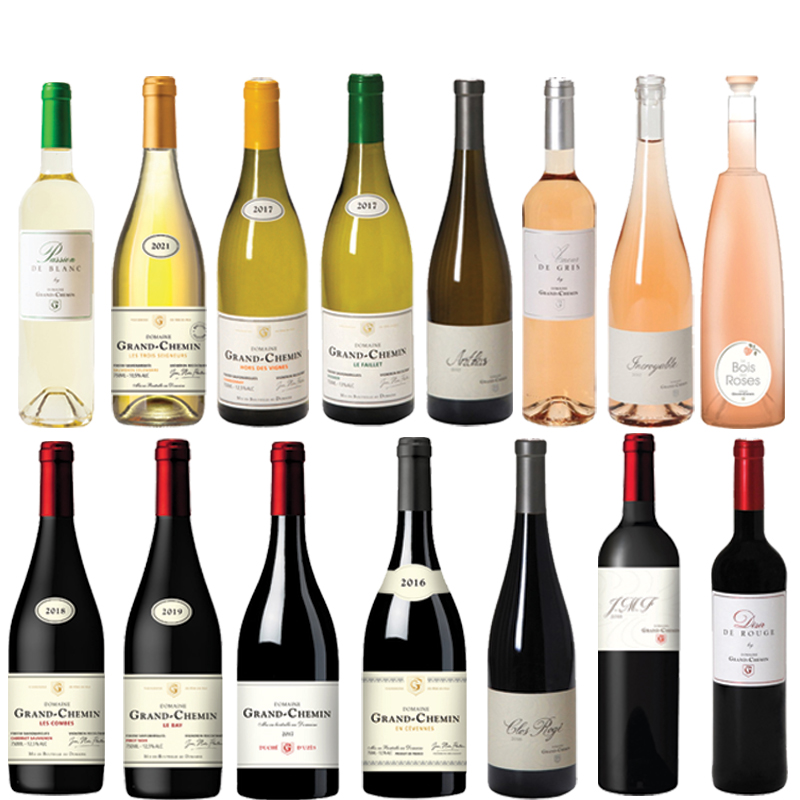
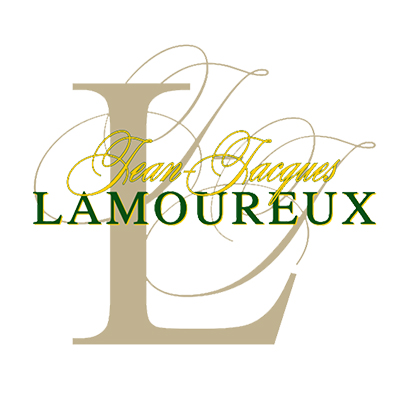
Champagne Lamoureux - Frankrijk: voor elke champagneliefhebber
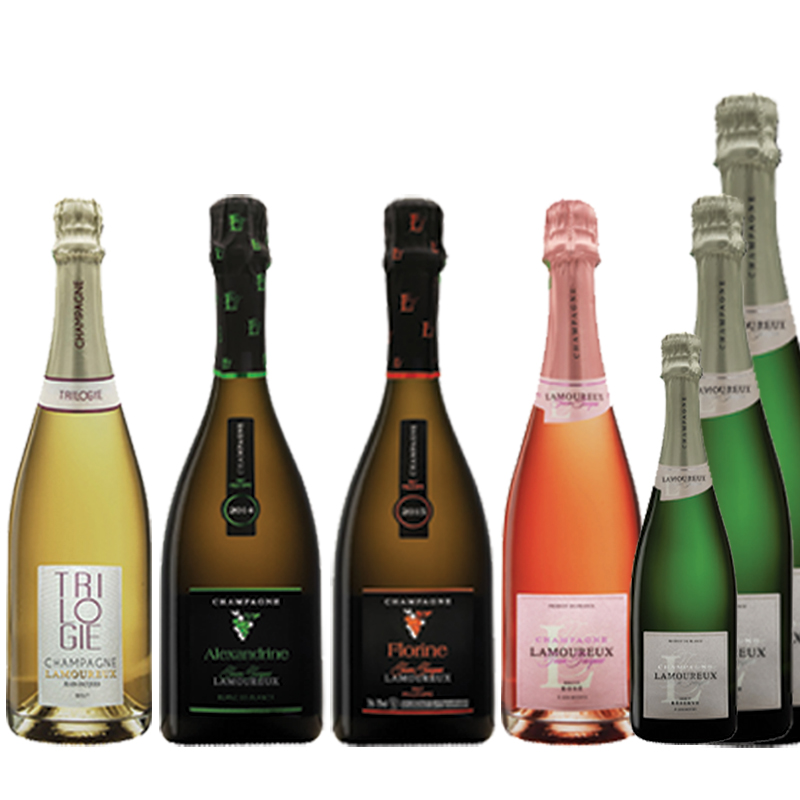
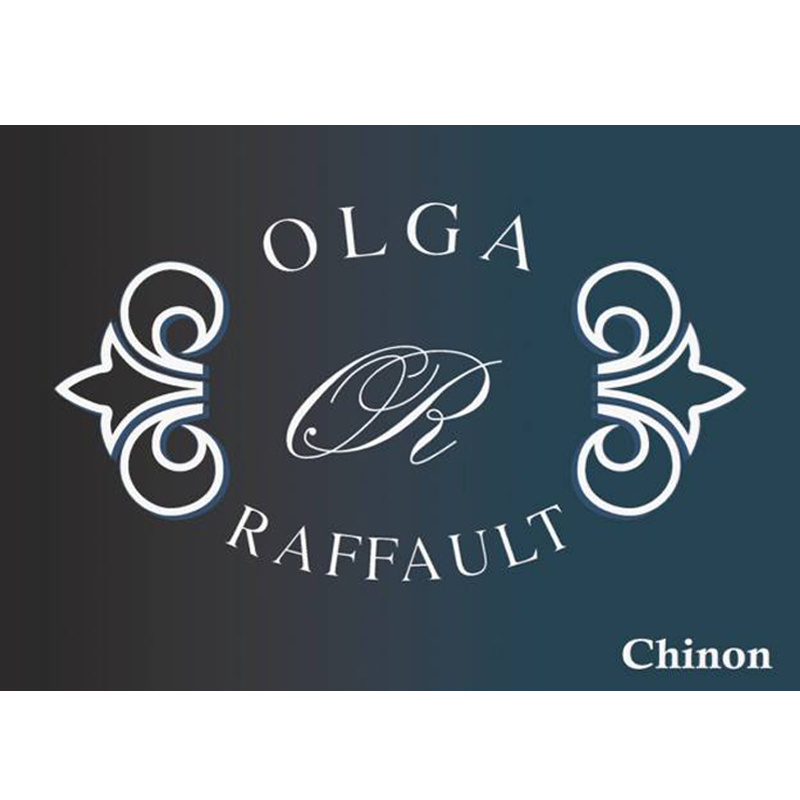
Domaine Olga Raffault, Frankrijk: dé lekkerste Chinons én Bio
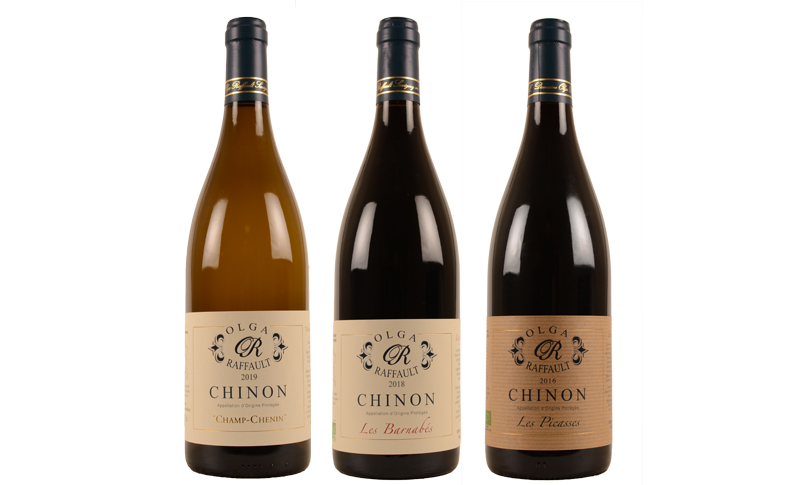
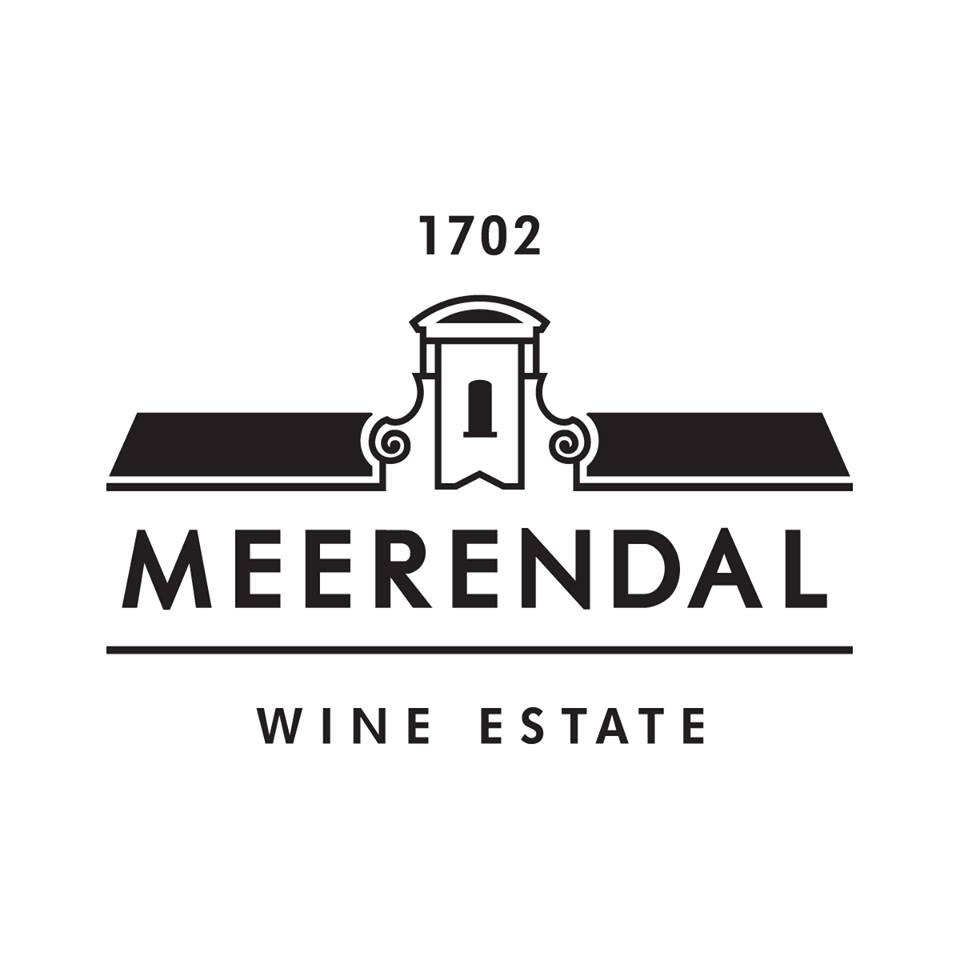
Meerendal Wine Estate - Zuid-Afrika: niet te missen parels
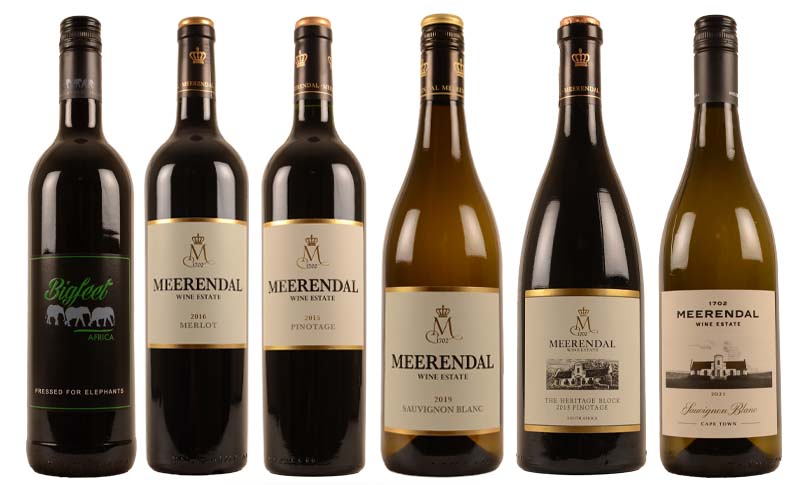
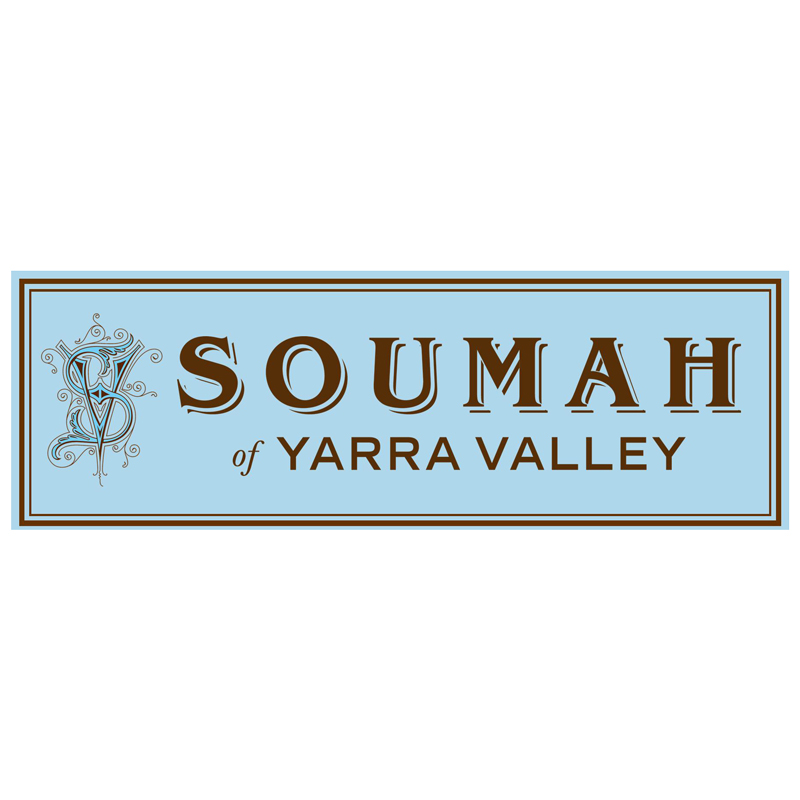
Soumah Winery, Australië: absolute top van Australië
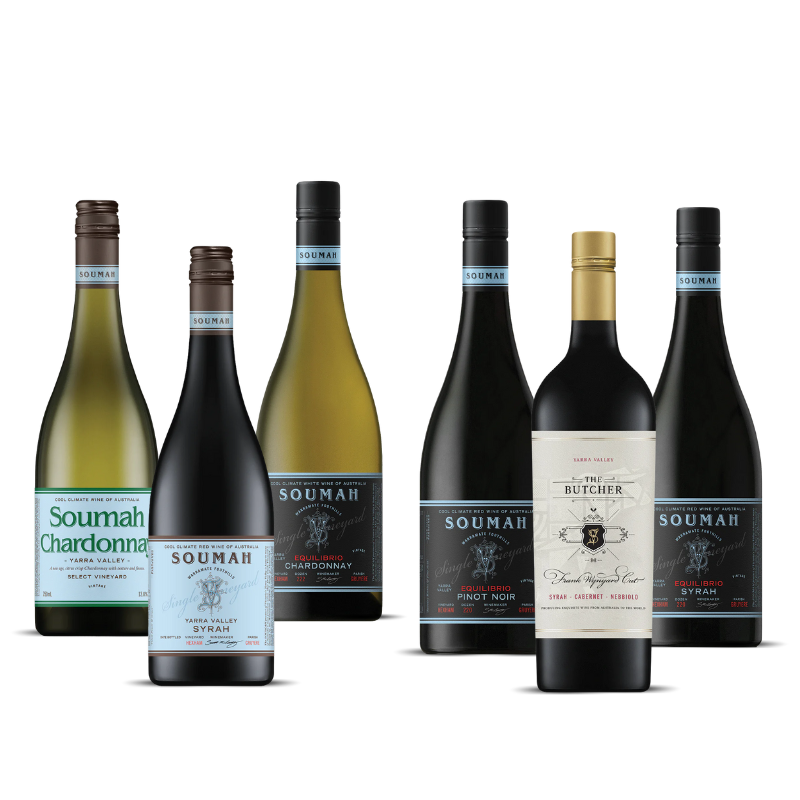
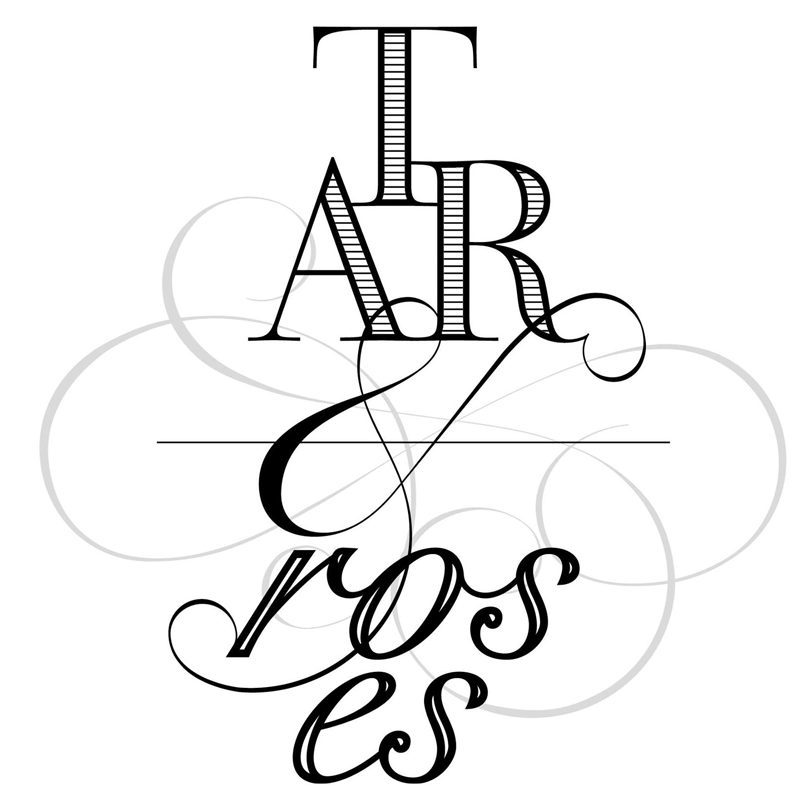
Tar & Roses, Australië: uitgesproken smakelijk karakter
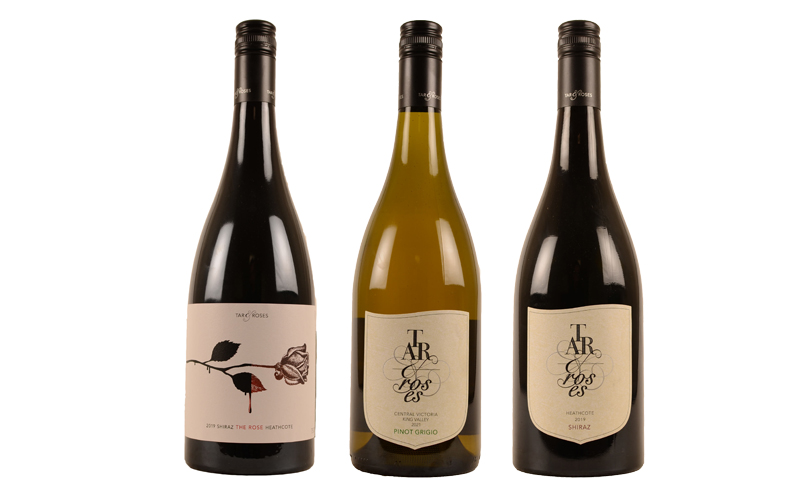
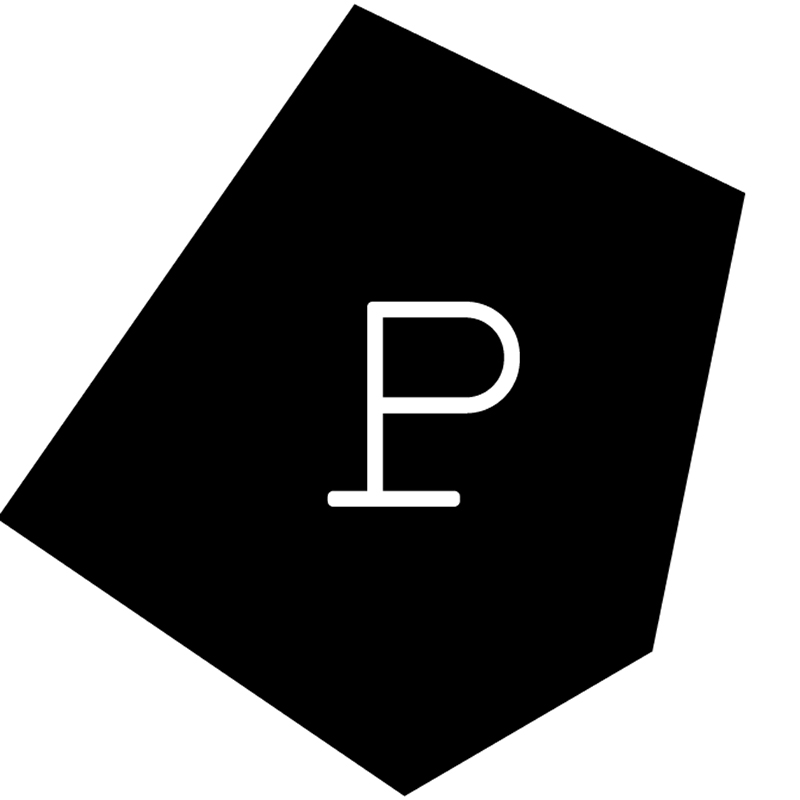
Pyren Vineyards, Australië: met paradepaardje 'Union'
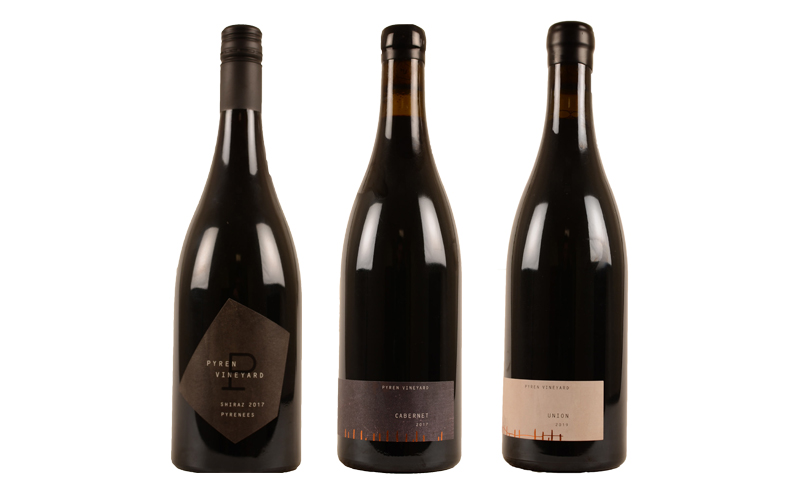
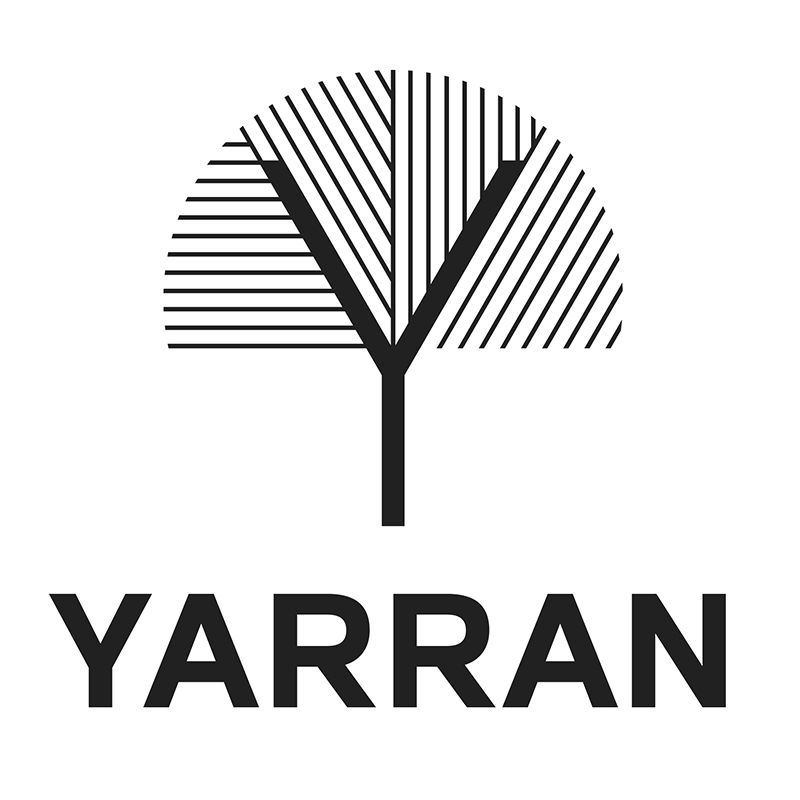
Yarran, Australië: bekroond als Dark Horse Winery of the Year
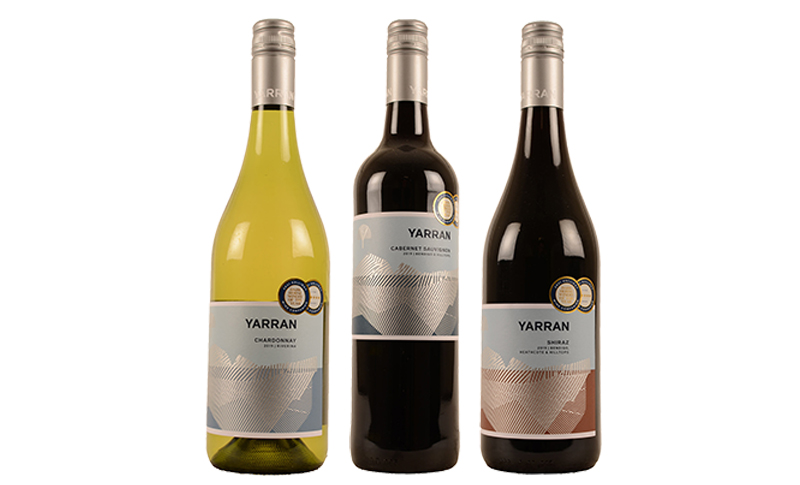
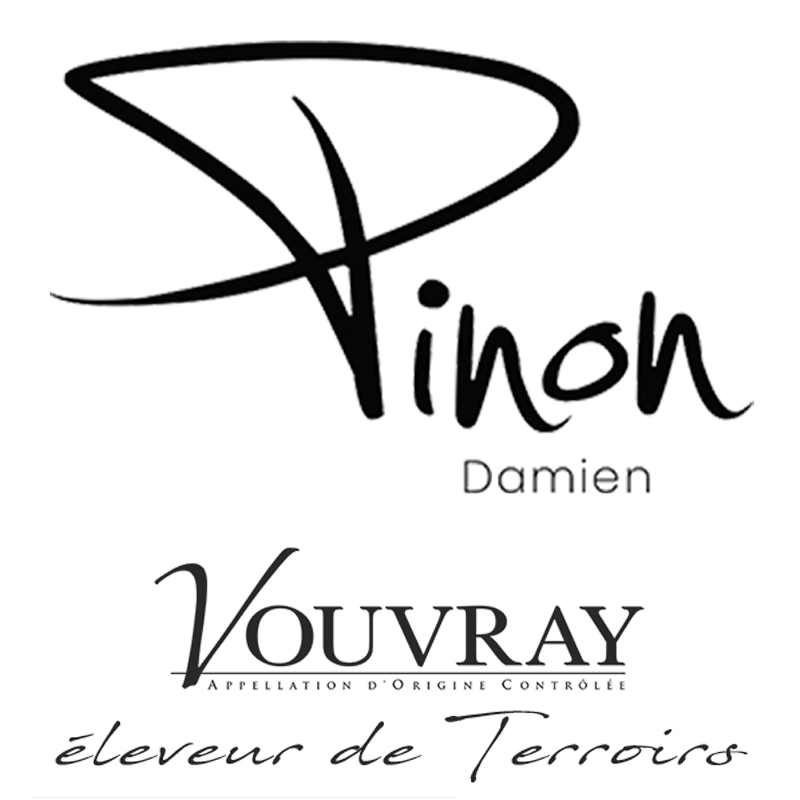
Pinon, Frankrijk: één van de beste expressies van Chenin Blanc
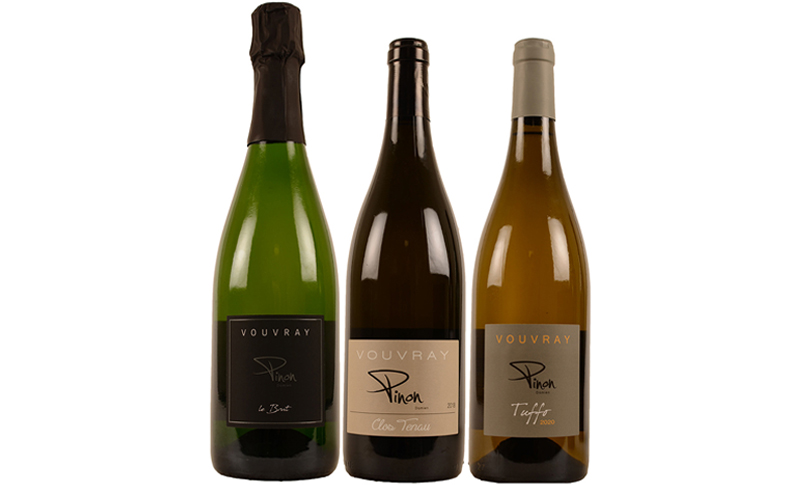

Catalina Sounds, Nieuw-Zeeland: het beste van Marlborough
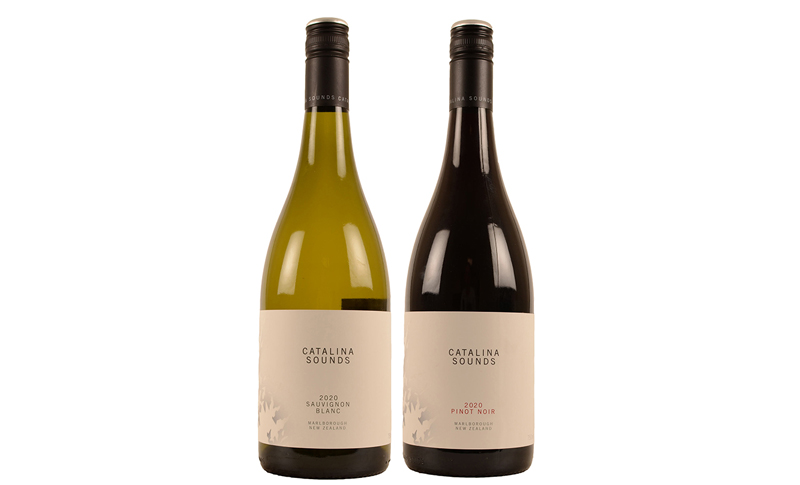
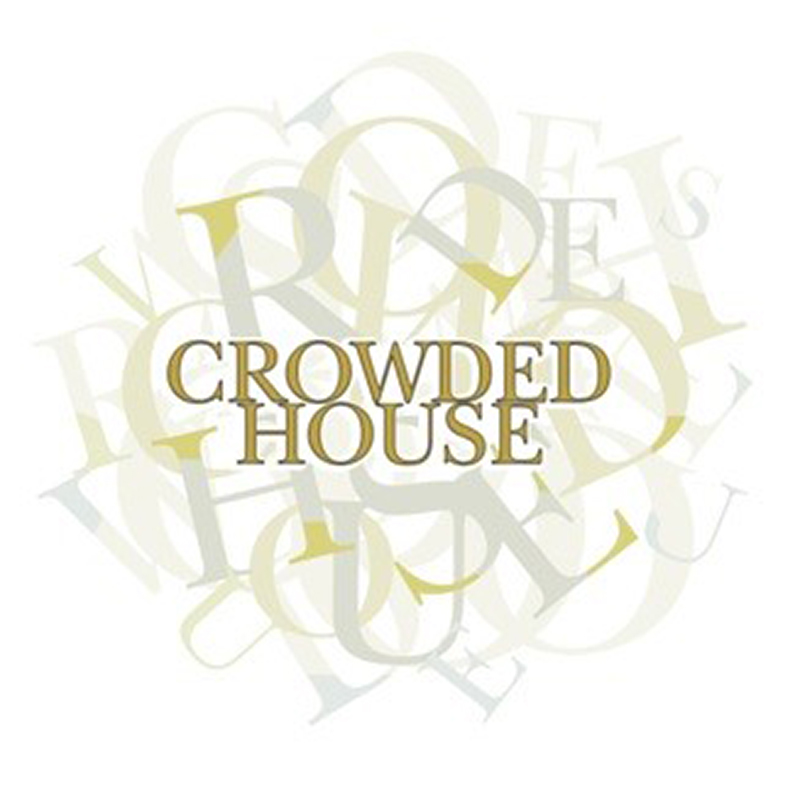
Crowded House, Nieuw-Zeeland: typisch Nieuw-Zeelands
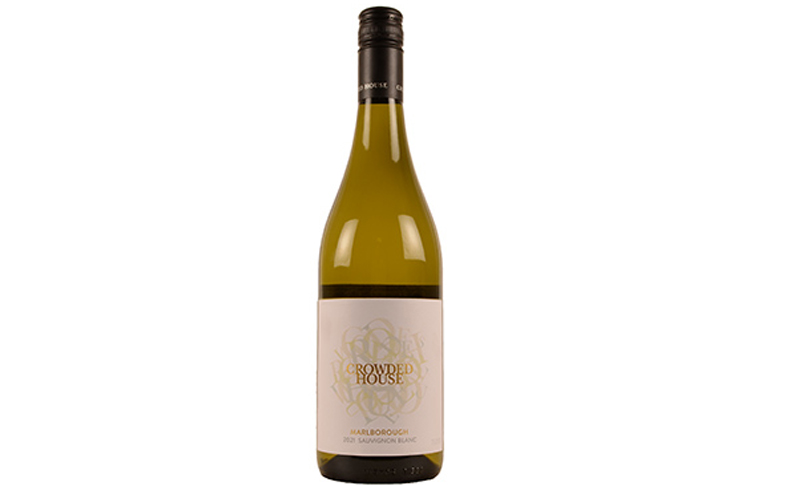
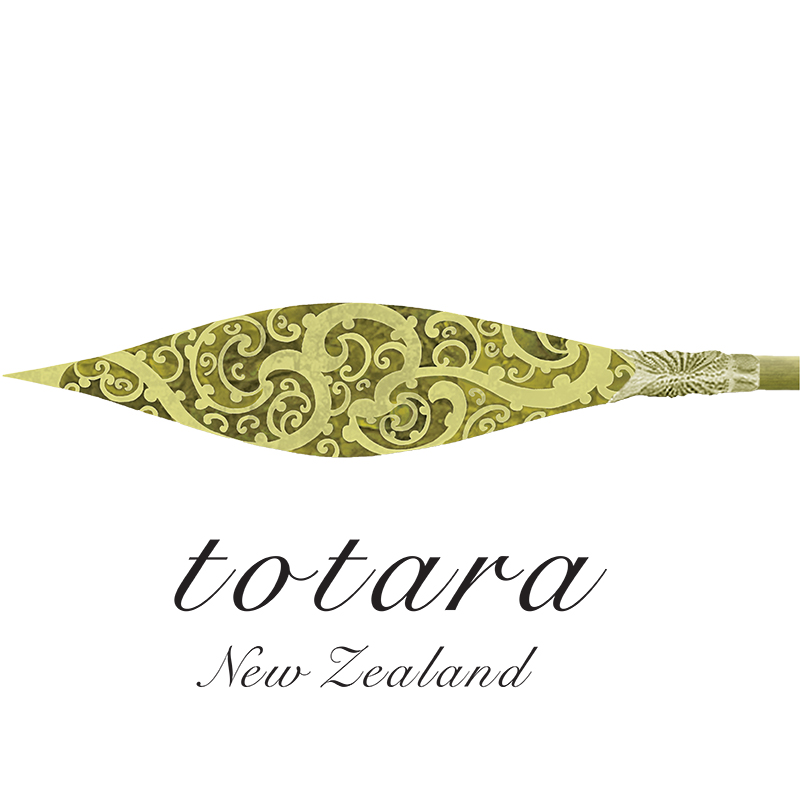
Totara, Nieuw-Zeeland: duurzame wijnbouw
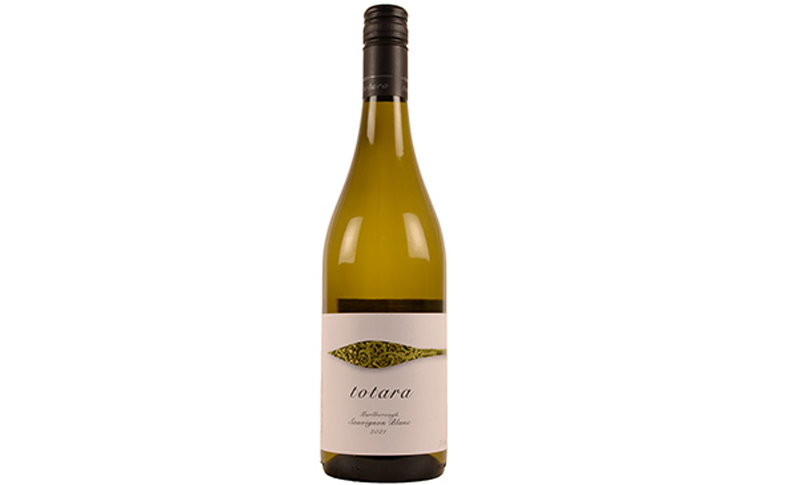
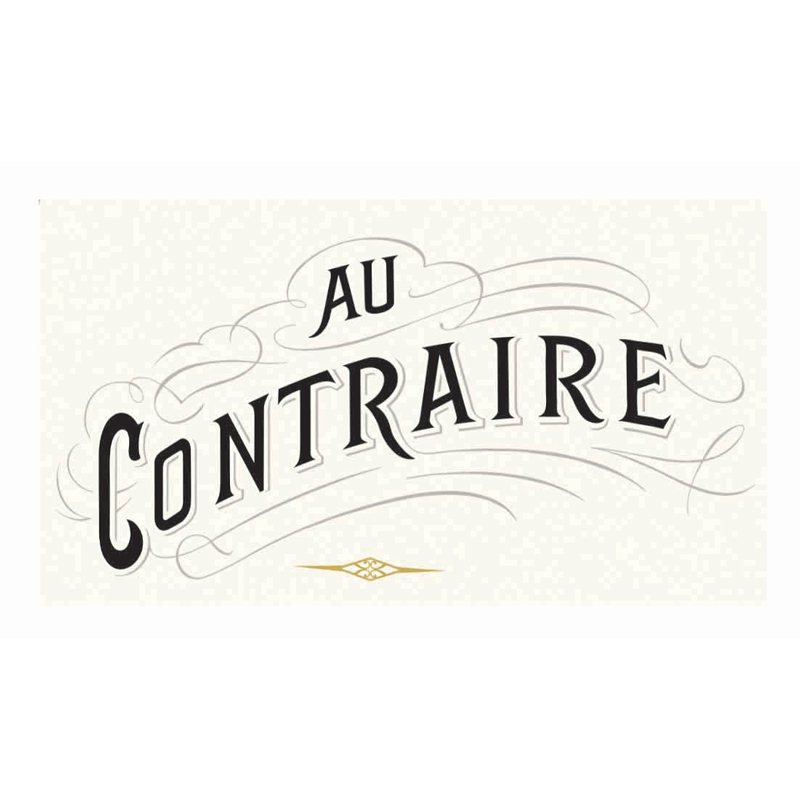
Au Contraire, USA: Cool Climate wijnen
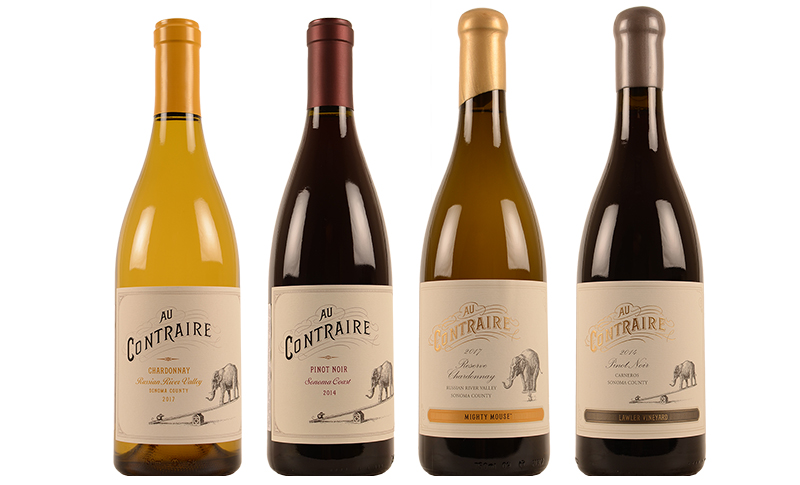
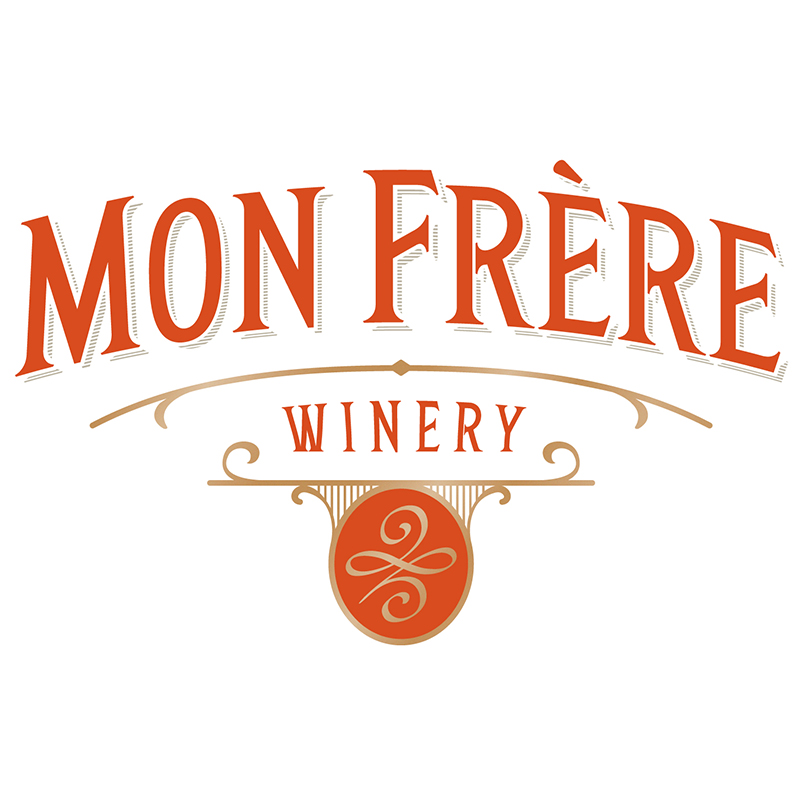
Mon Frère, USA: veelzijdige wijnen
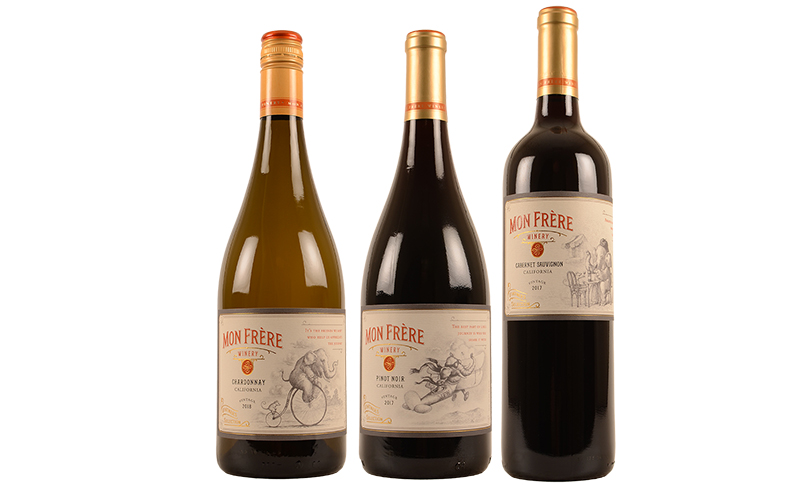
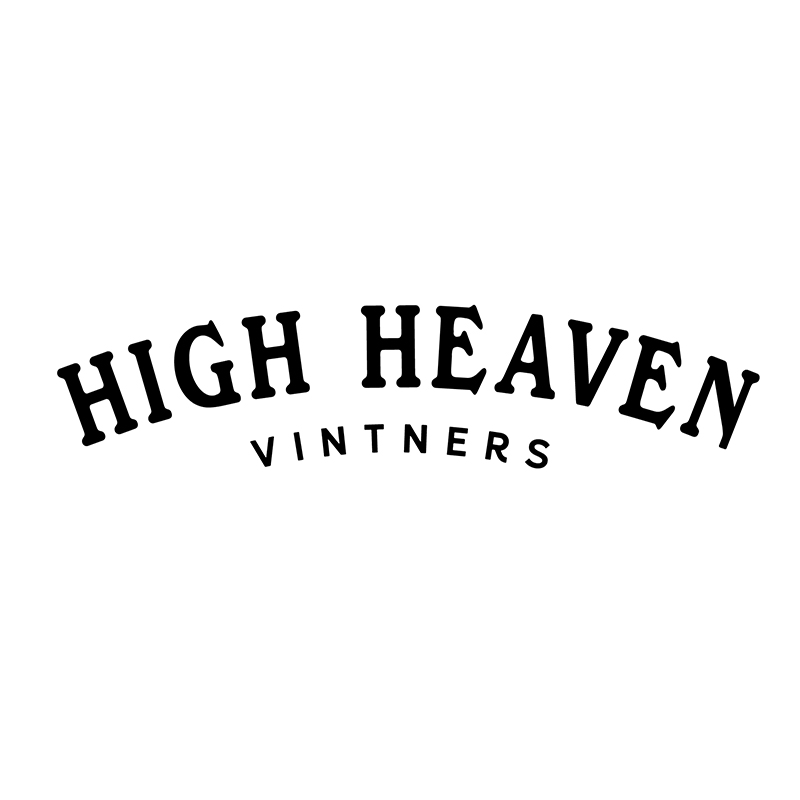
High Heaven Vintners, USA: hemelse wijnen
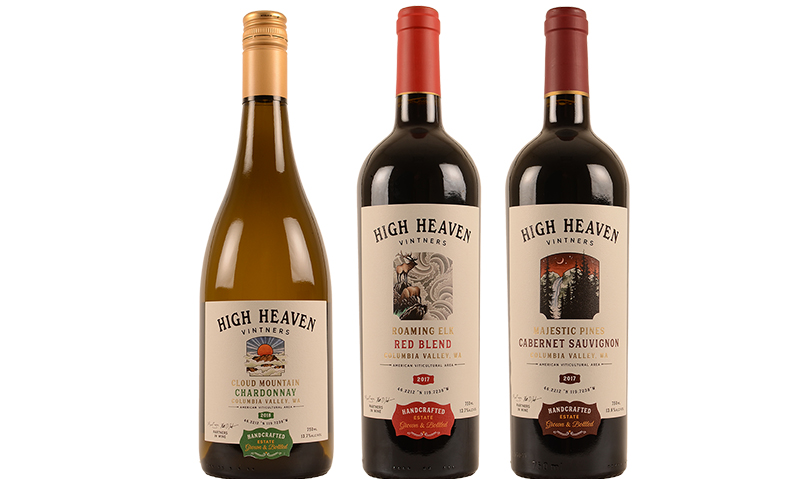
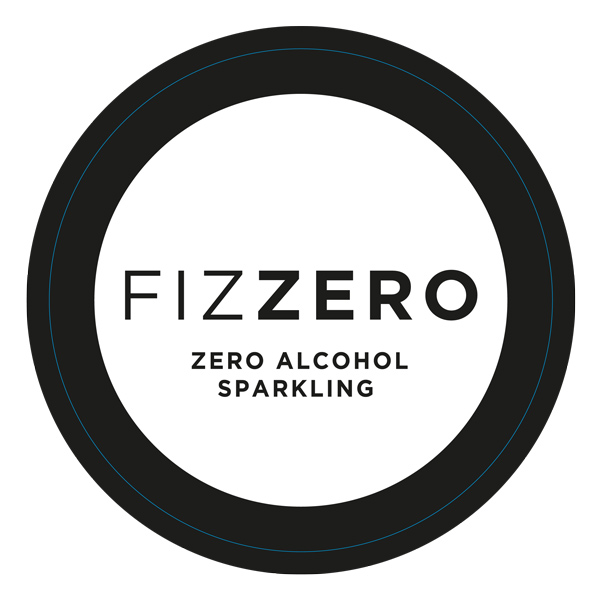
FizZERO, Duitsland: 0,0% Alcohol
FIZZERO, een nieuw project dat mooie alcoholvrije schuimwijnen uit de Moezel produceert met innoverende technieken.
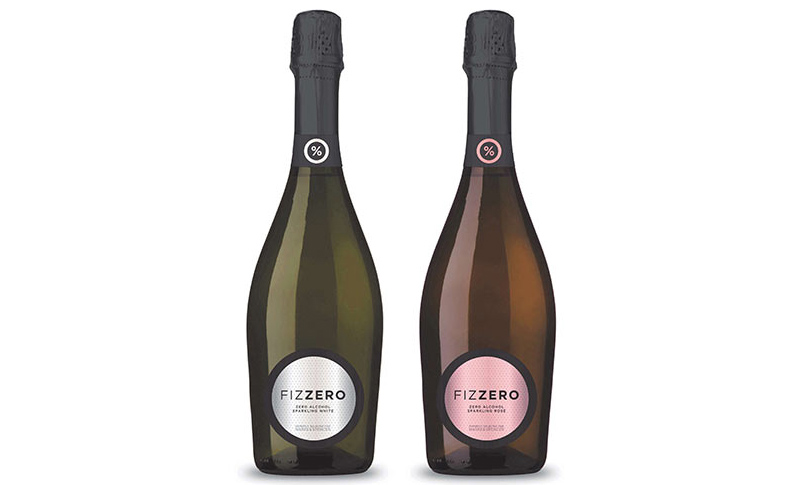
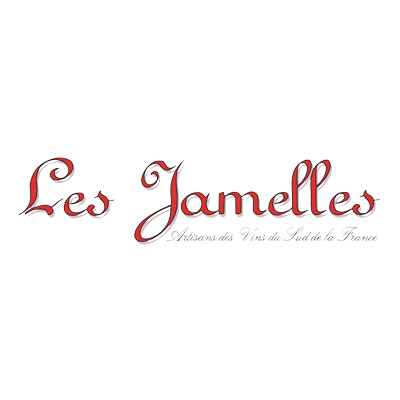
Les Jamelles, Frankrijk: Kwaliteitswijnen aan betaalbare prijzen
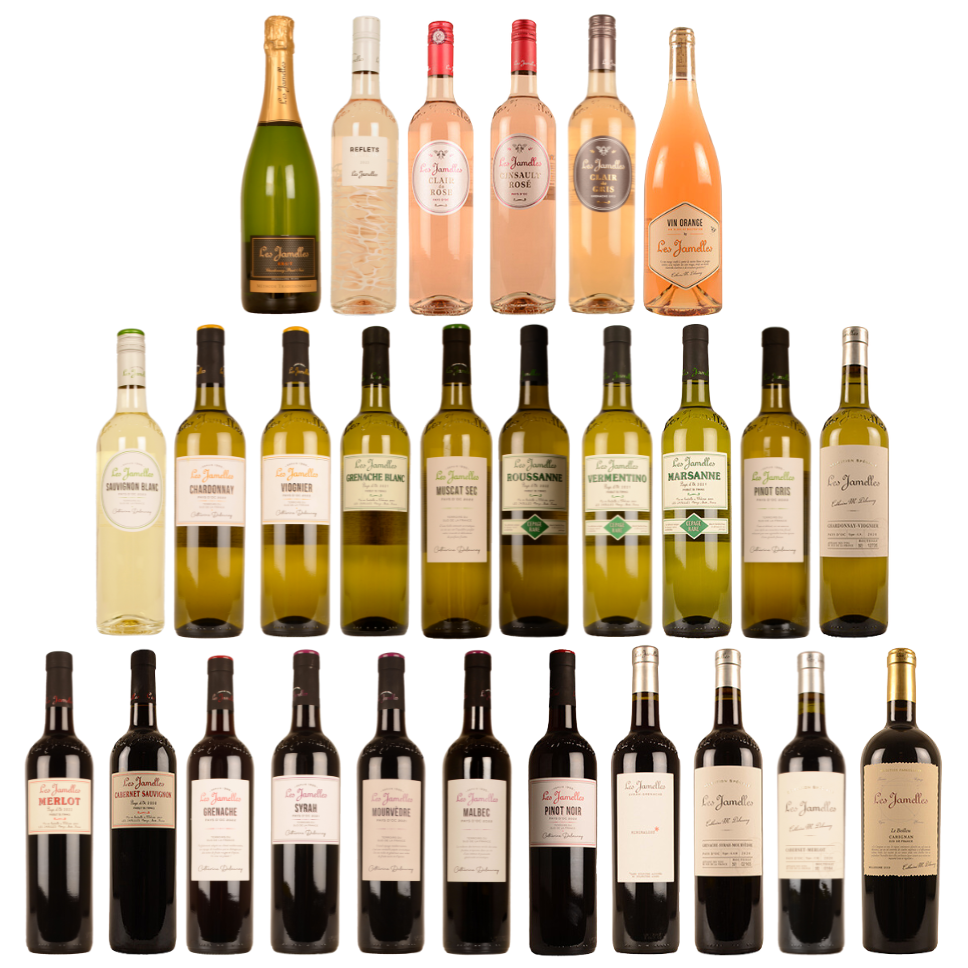
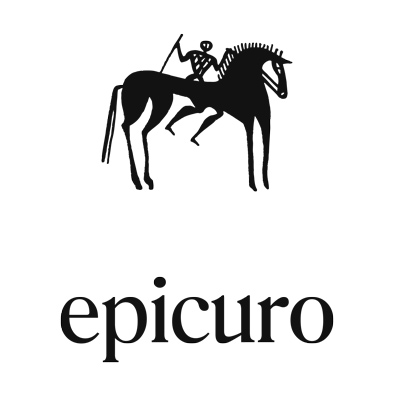
Epicuro, Italië: Kwaliteitswijnen aan betaalbare prijzen
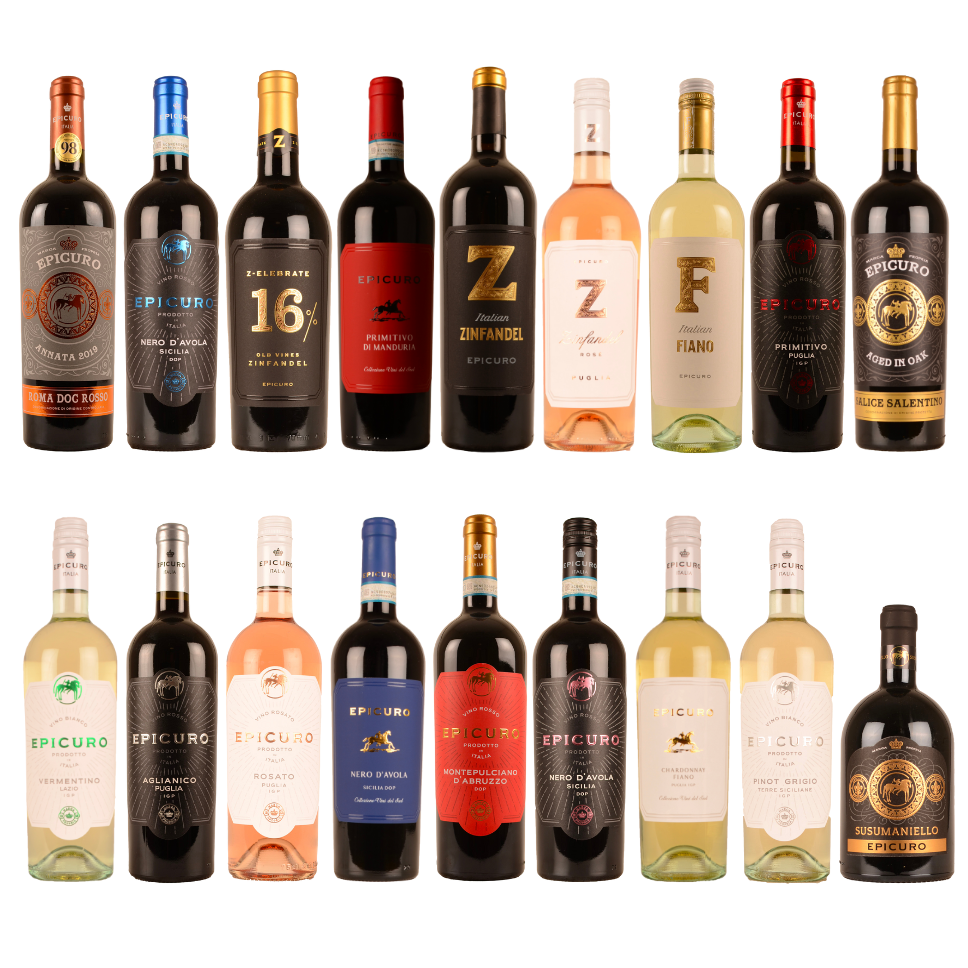
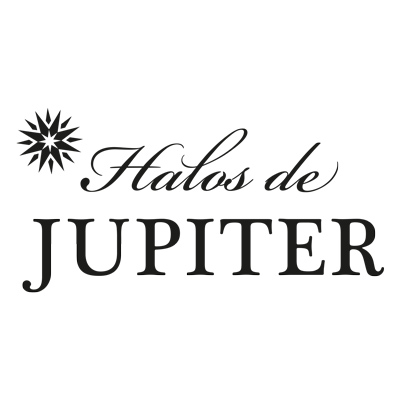
Halos de Jupiter, Frankrijk: Kwaliteitswijnen aan betaalbare prijzen
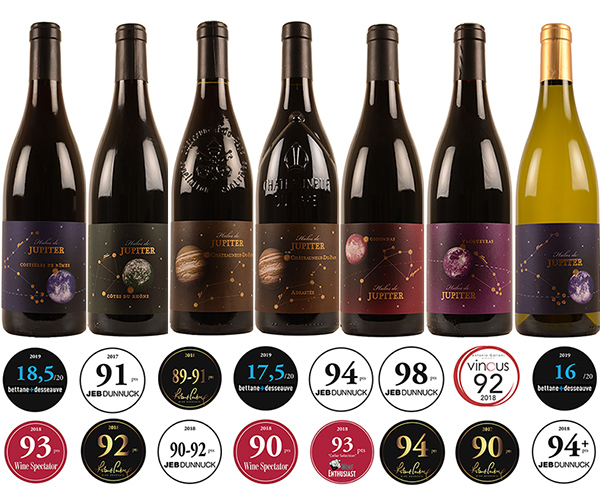
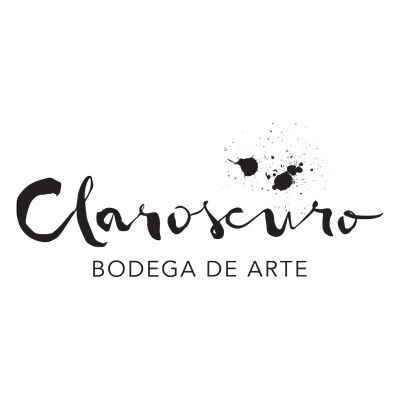
Claroscuro, Argentinië: Kunst in en op de fles
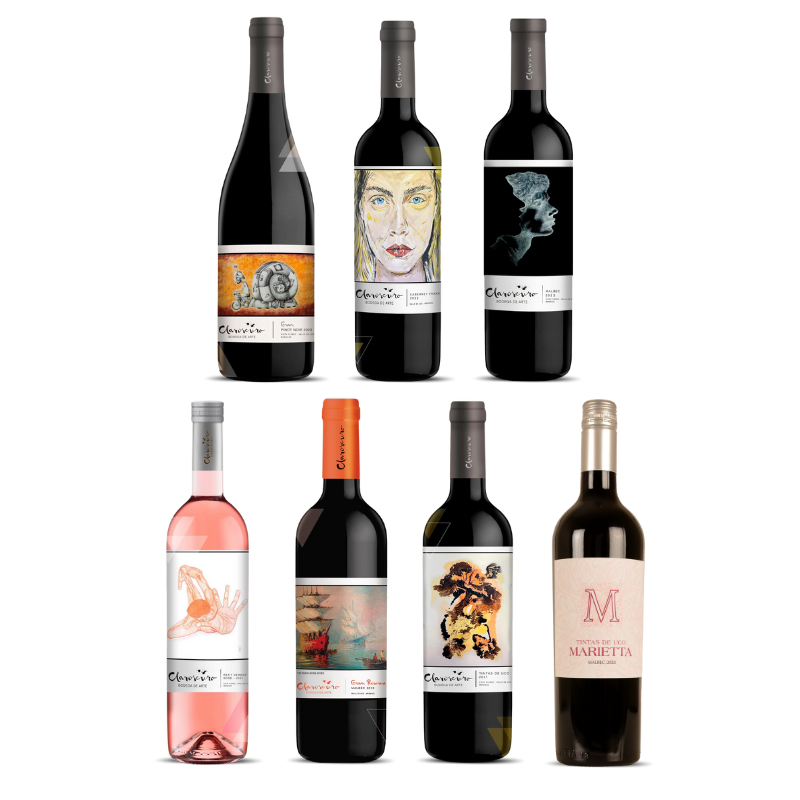
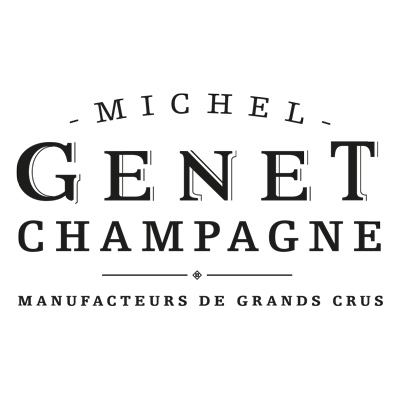
Bekroond: Champagne Michel Genet Grand Cru Spirit
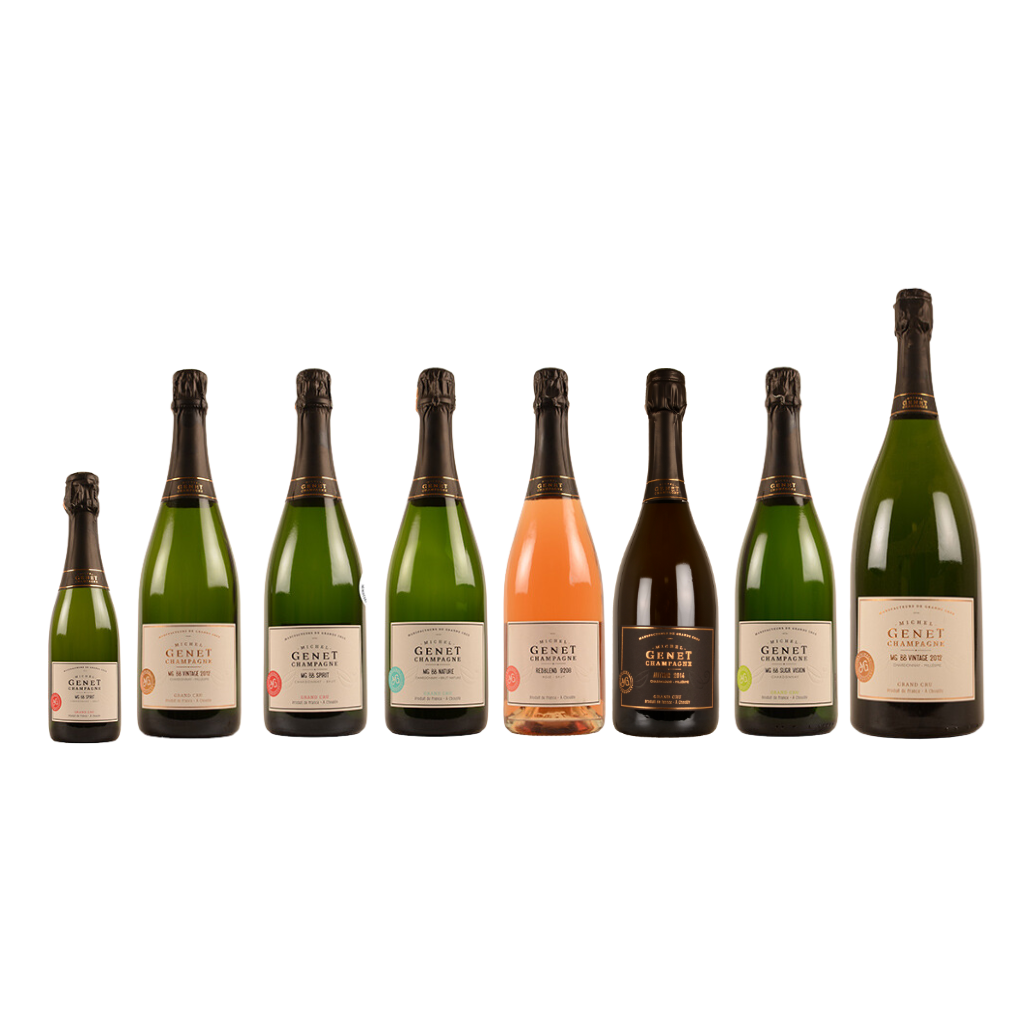
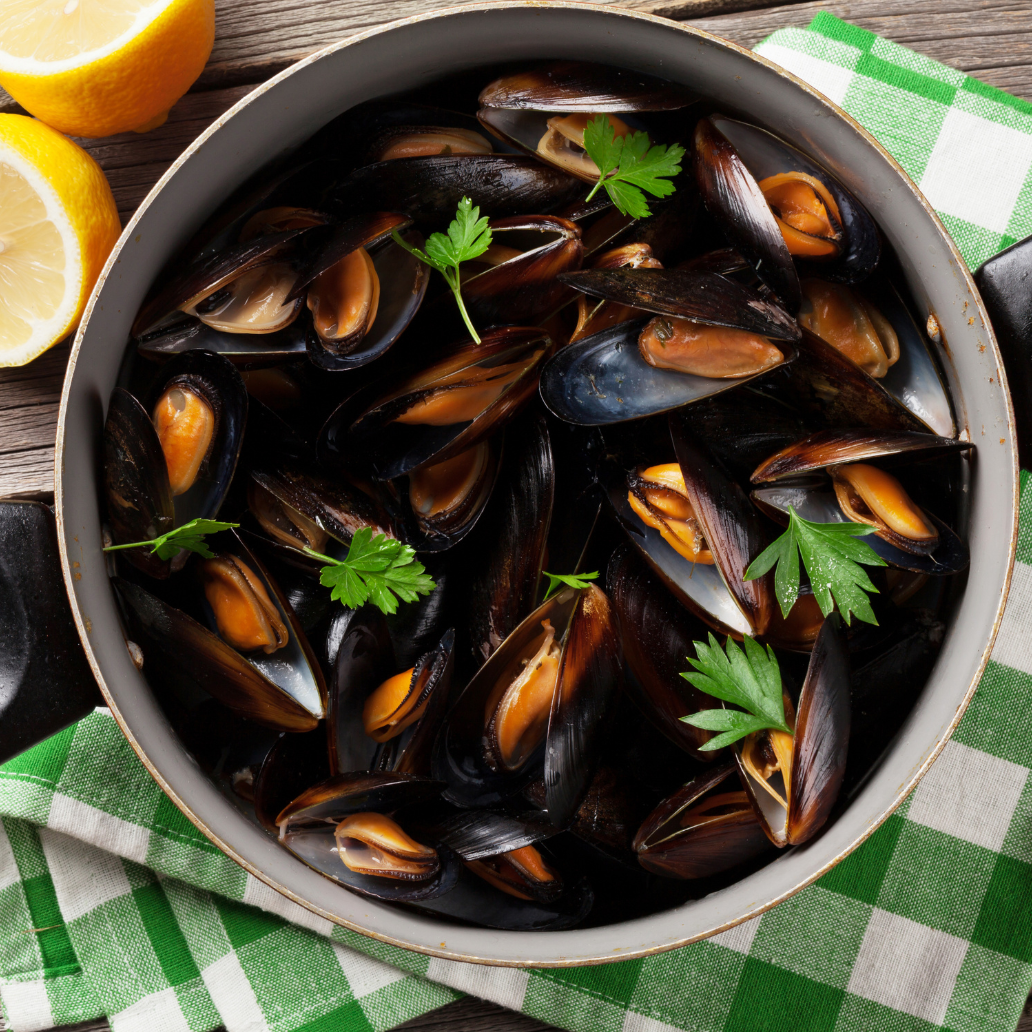
Mosselwijnen: Lekkere droge wijnen
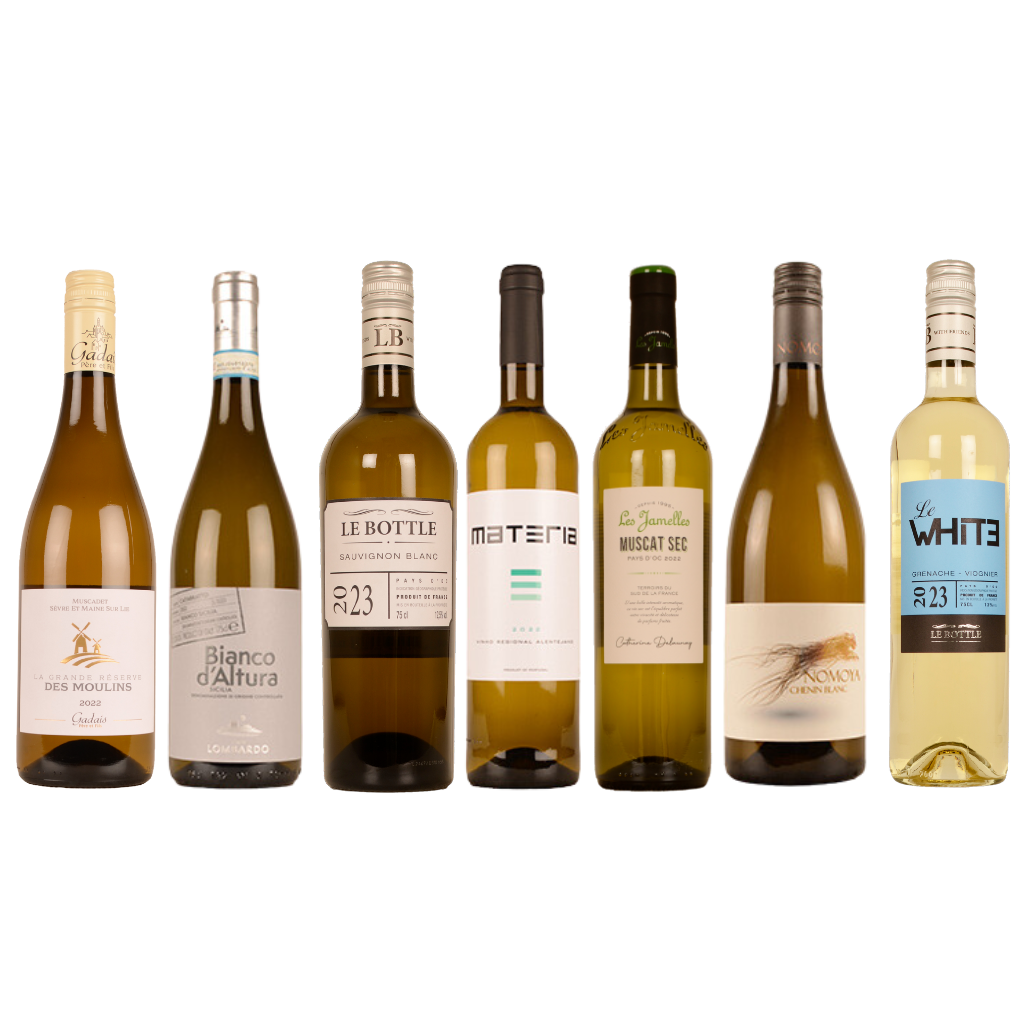
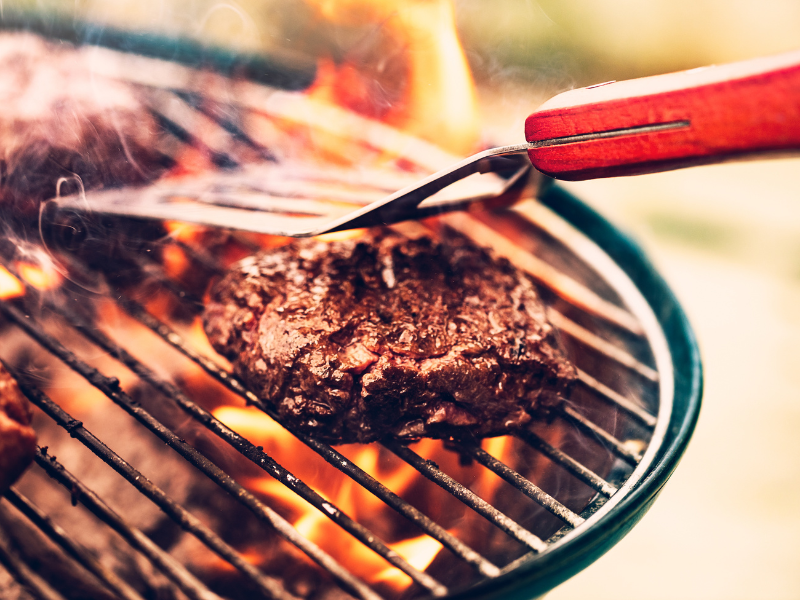
BBQwijnen:
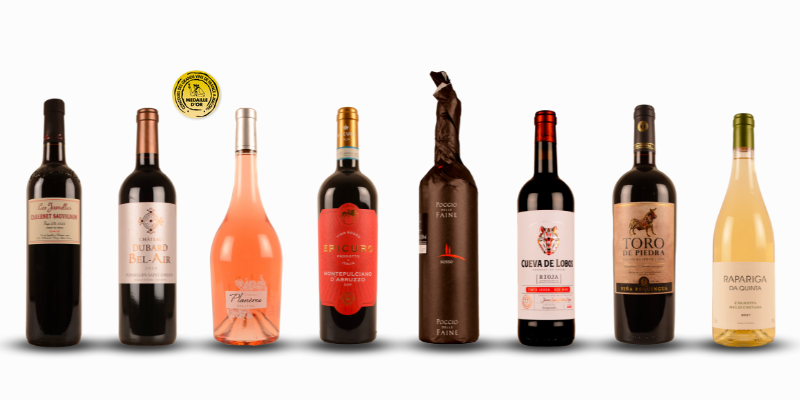

Viswijnen:
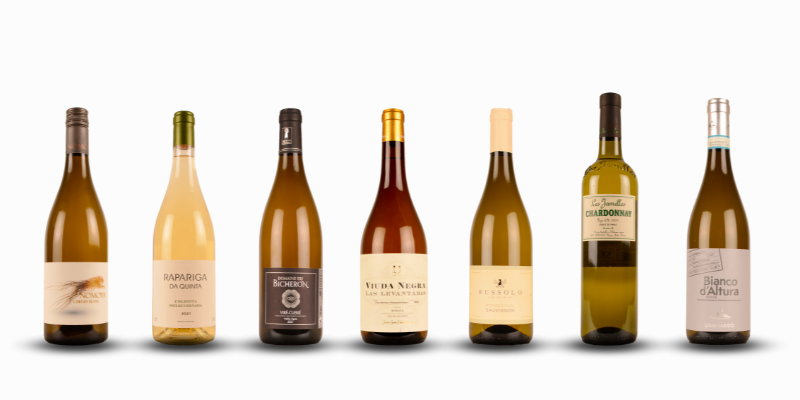
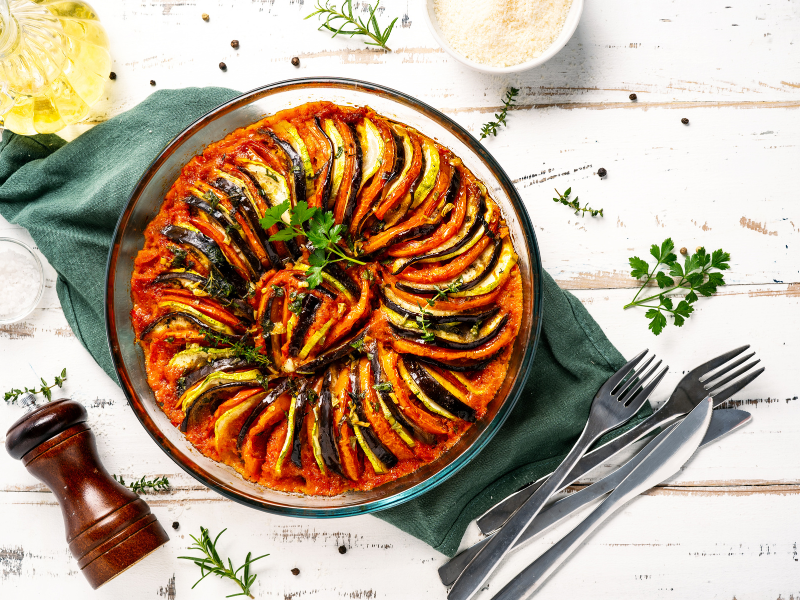
Vegetarisch:
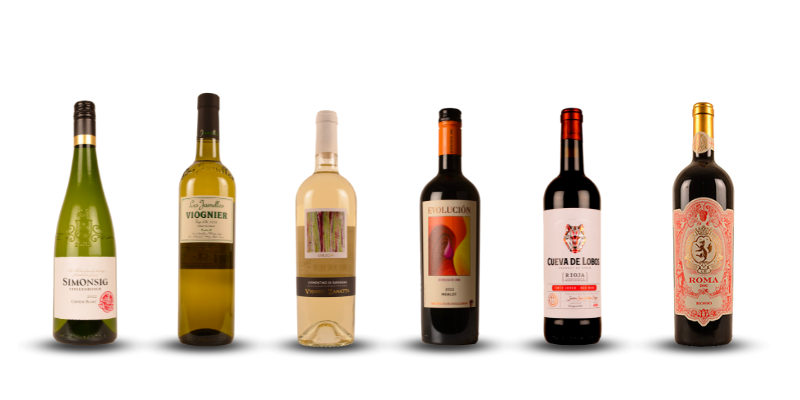
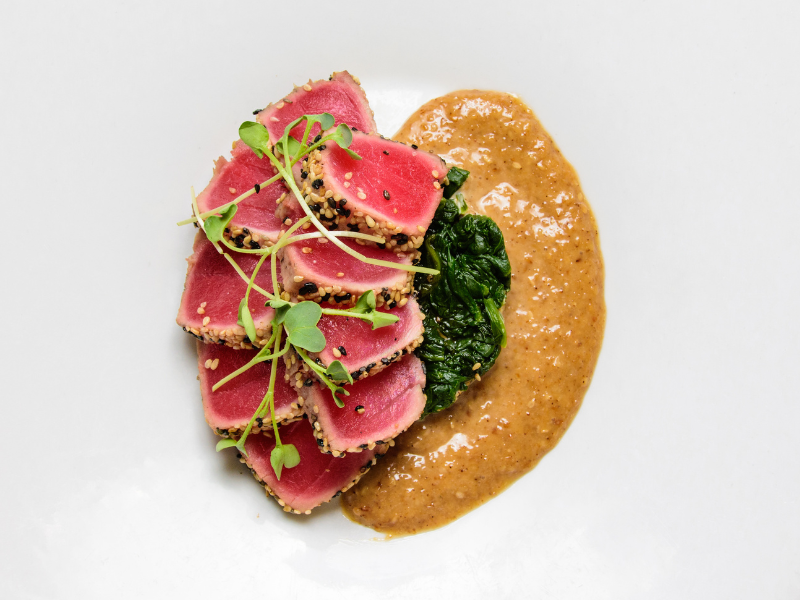
Wijn bij tataki
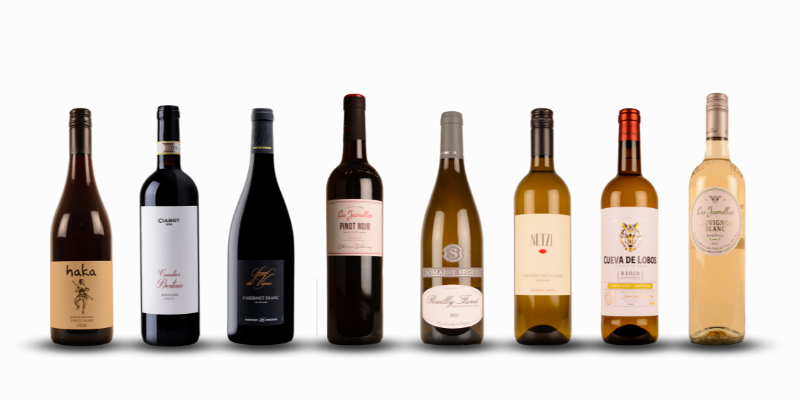
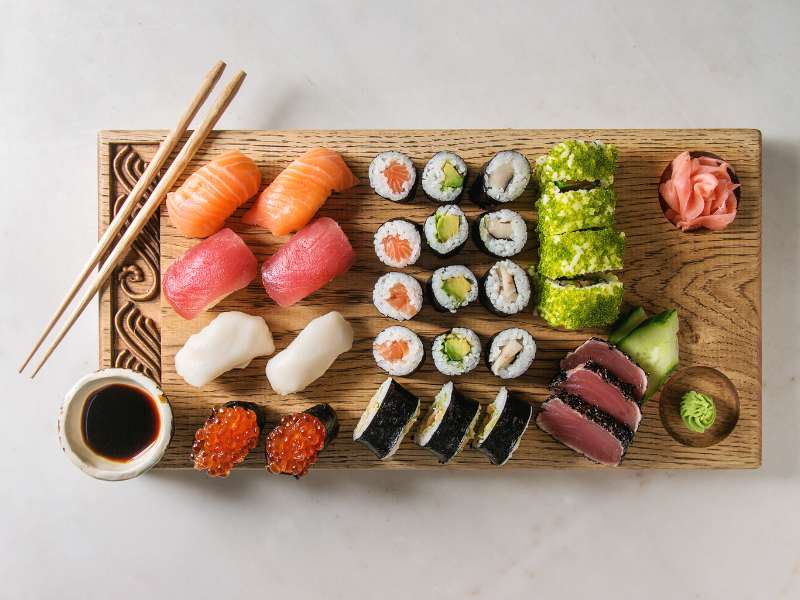
Wijn bij sushi
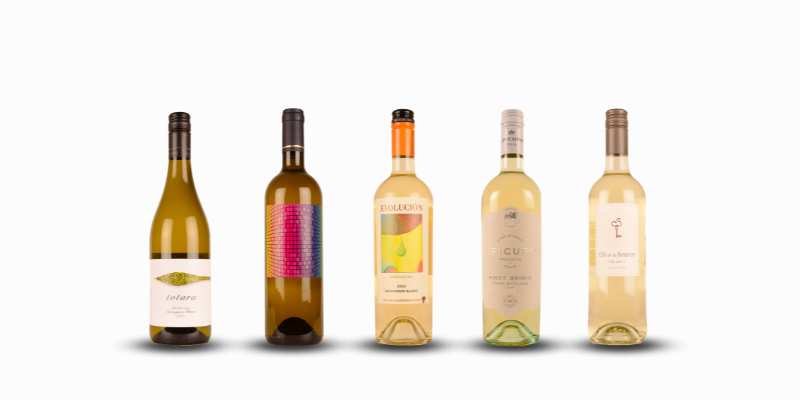
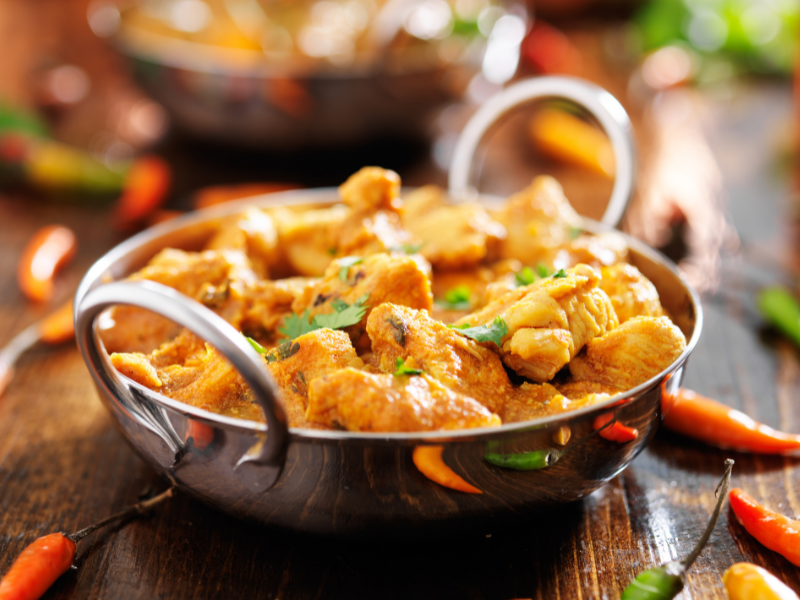
Wijn bij Indische curry
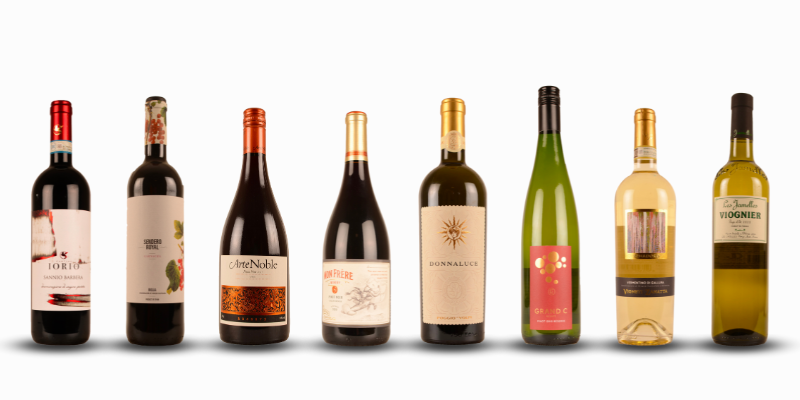
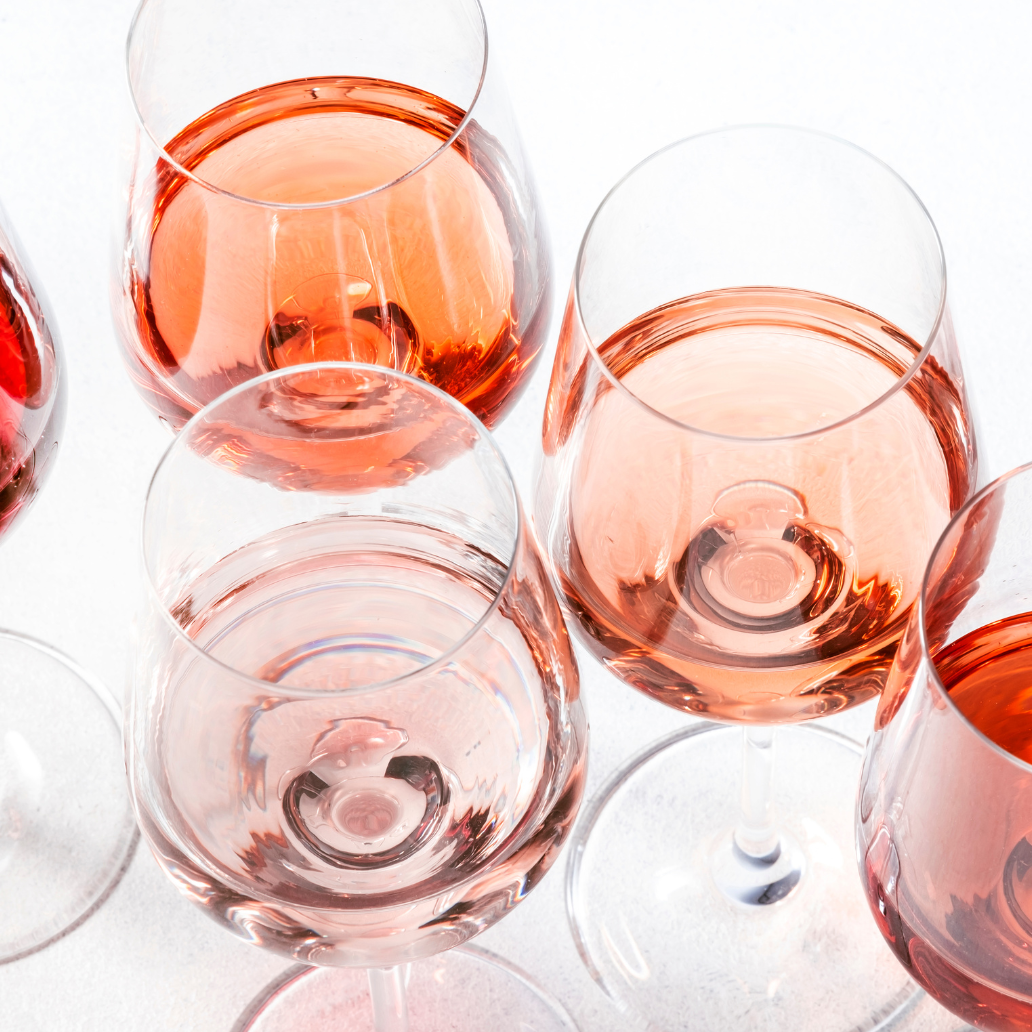
Uitgebreid assortiment rosé wijnen: Heerlijk verfrissend
